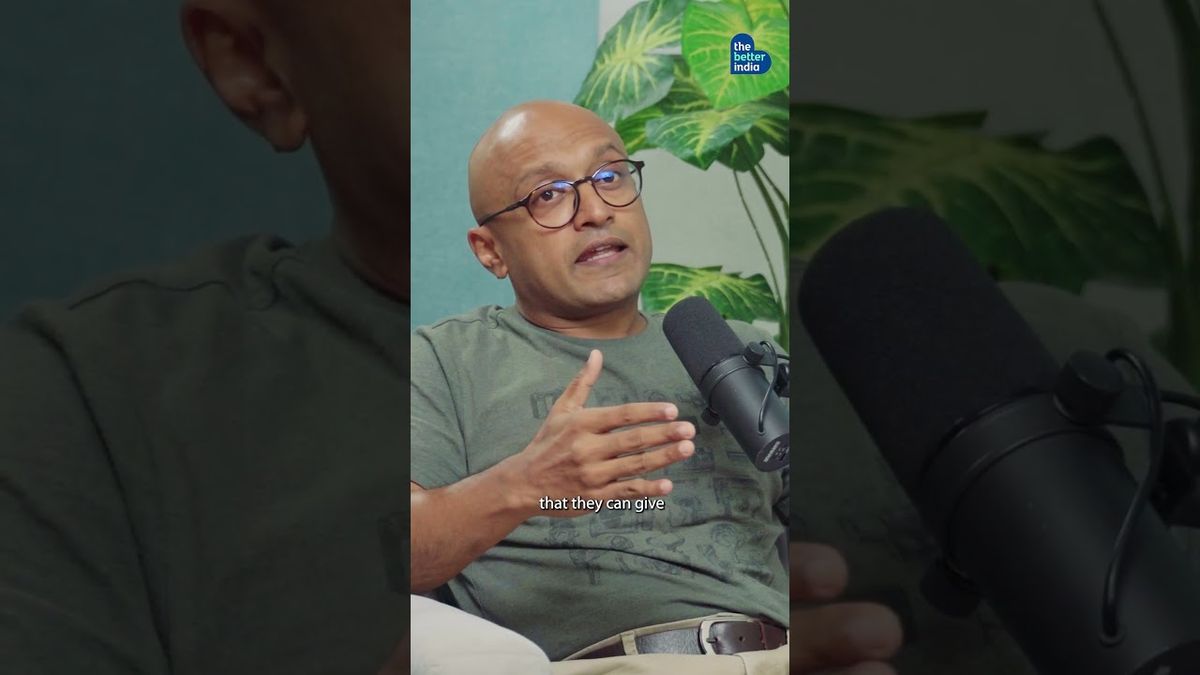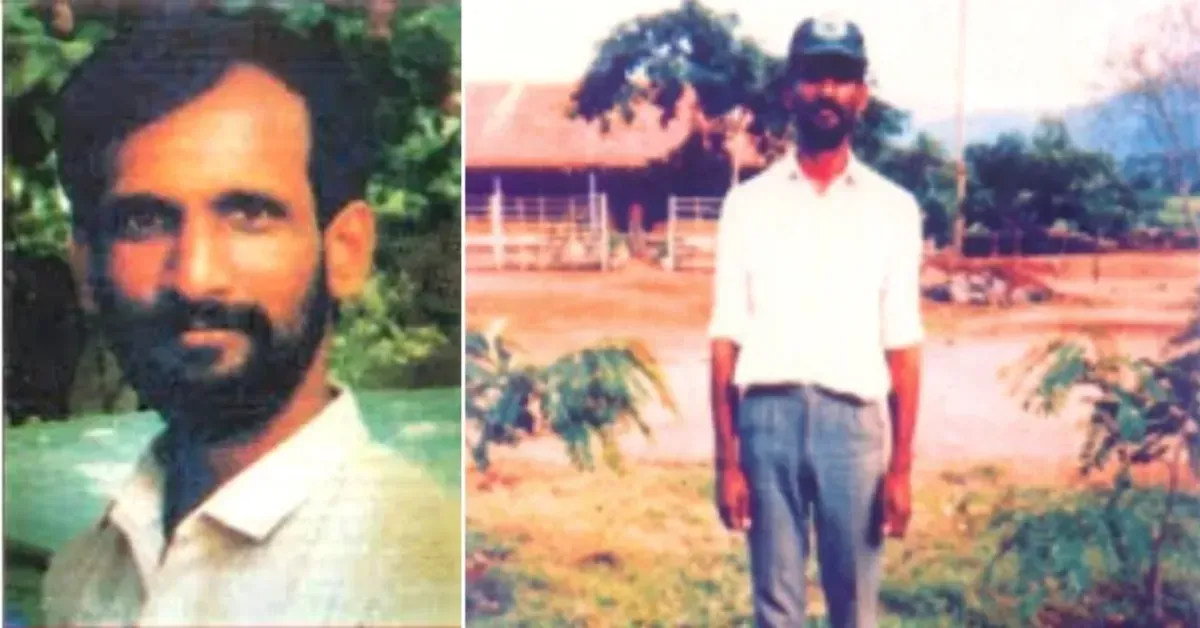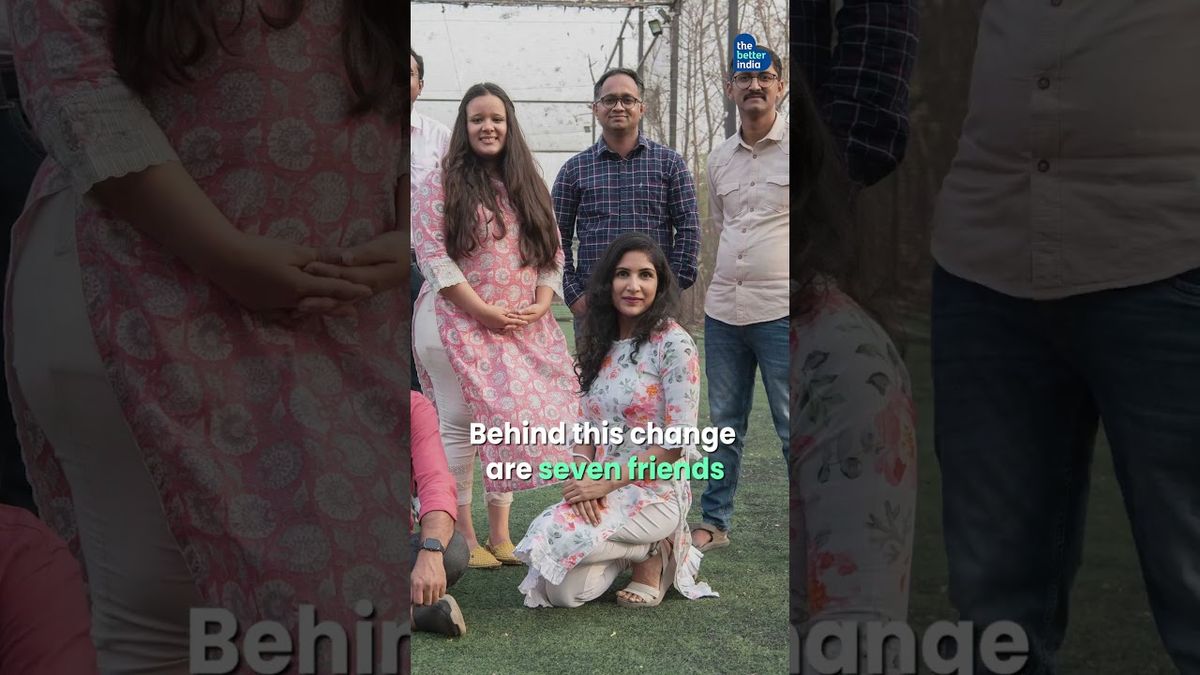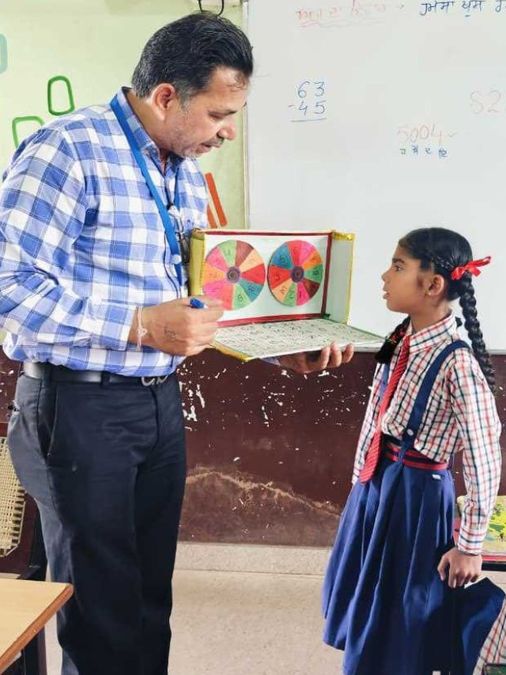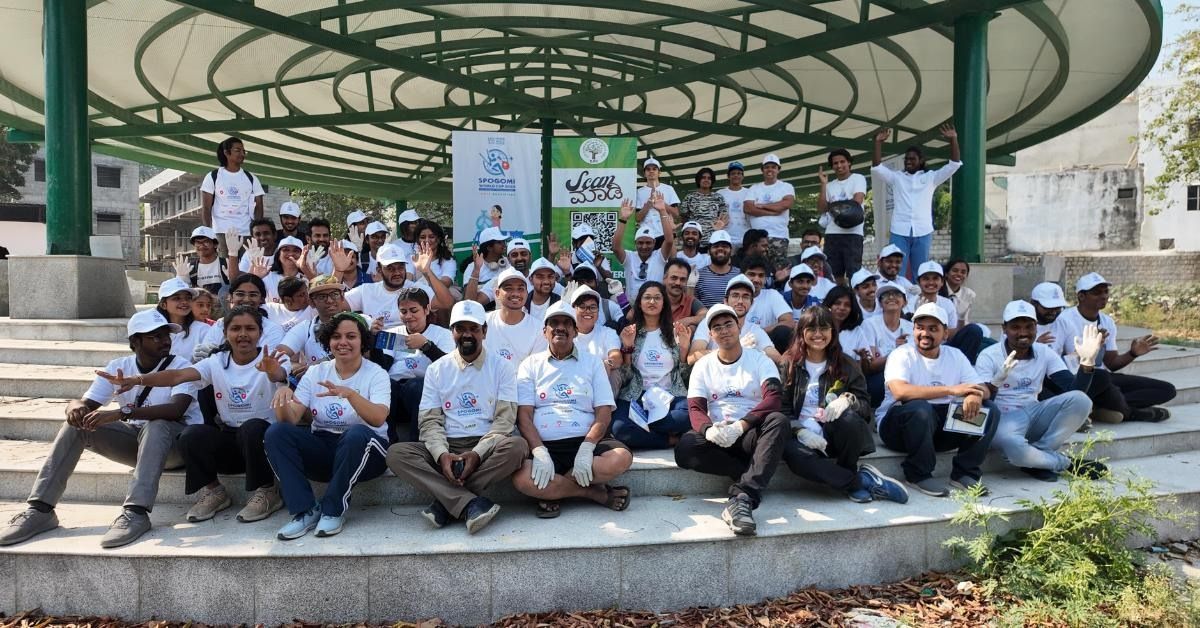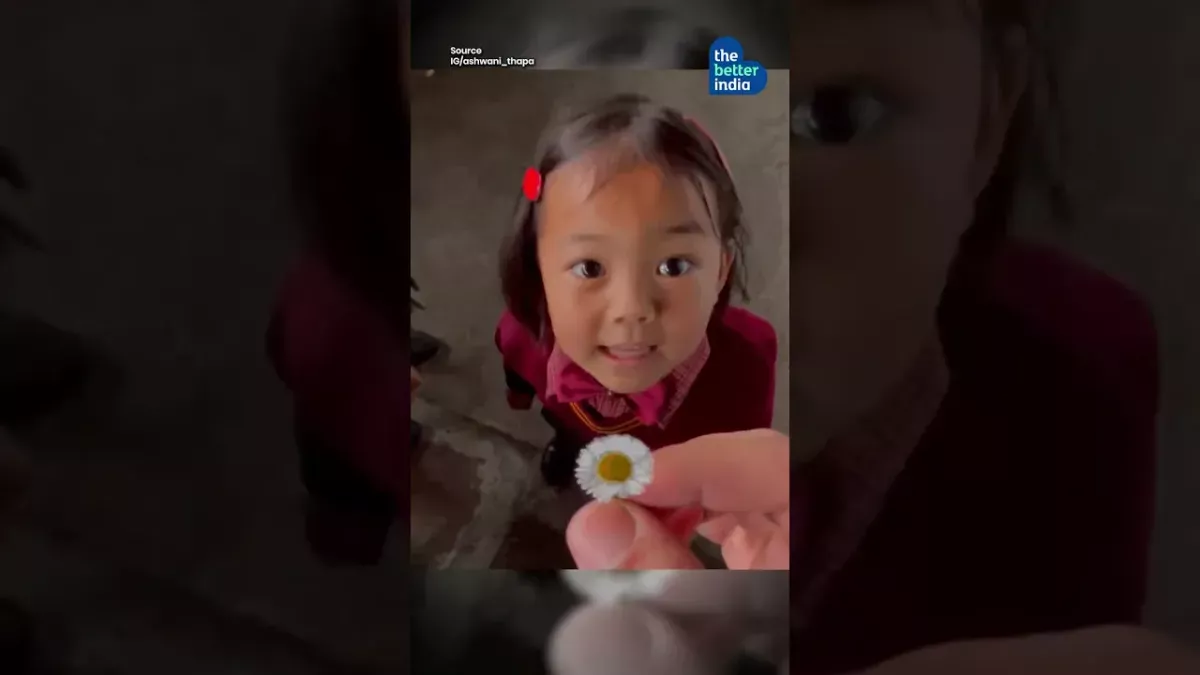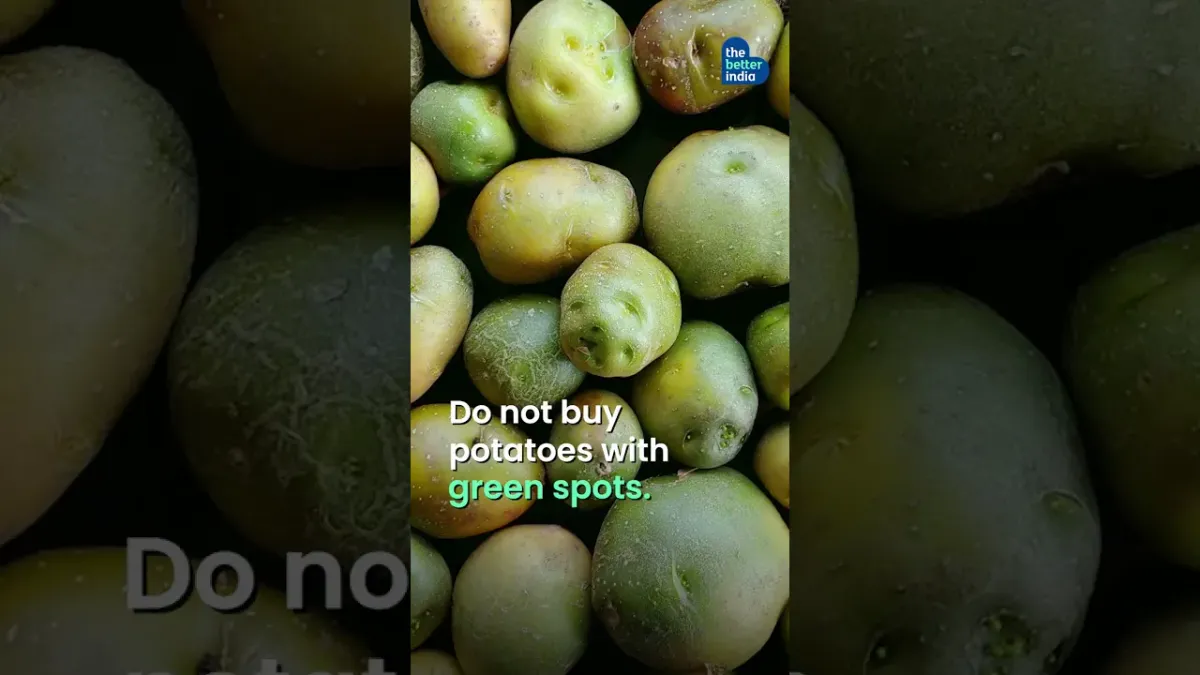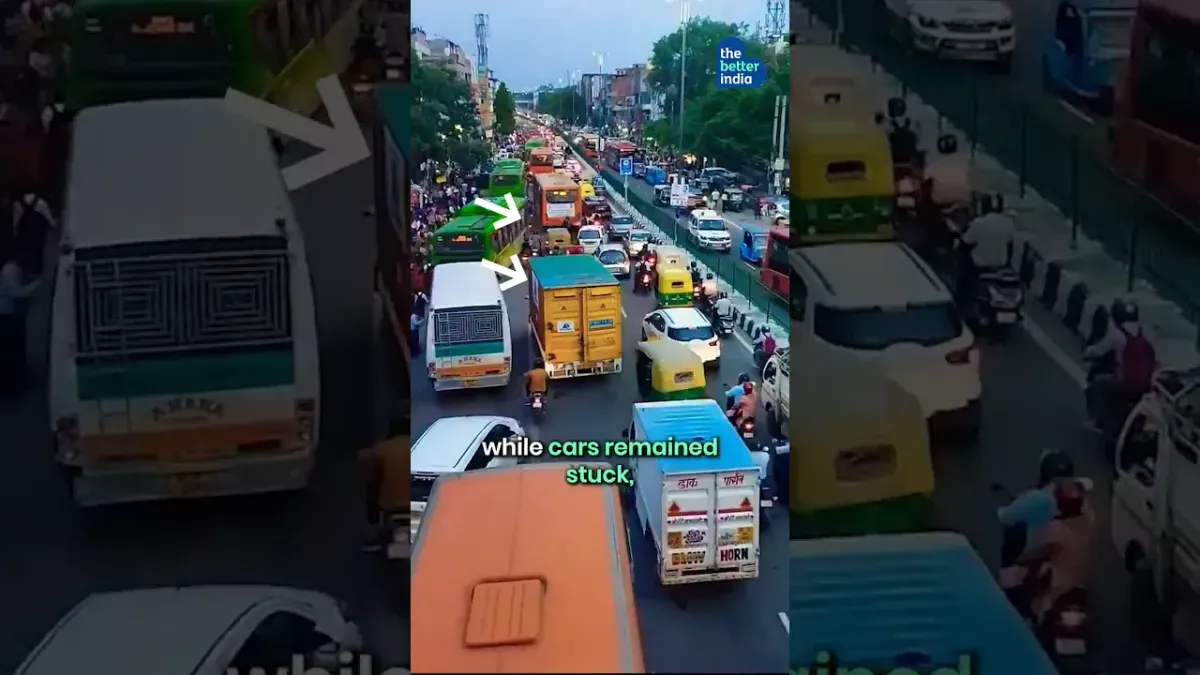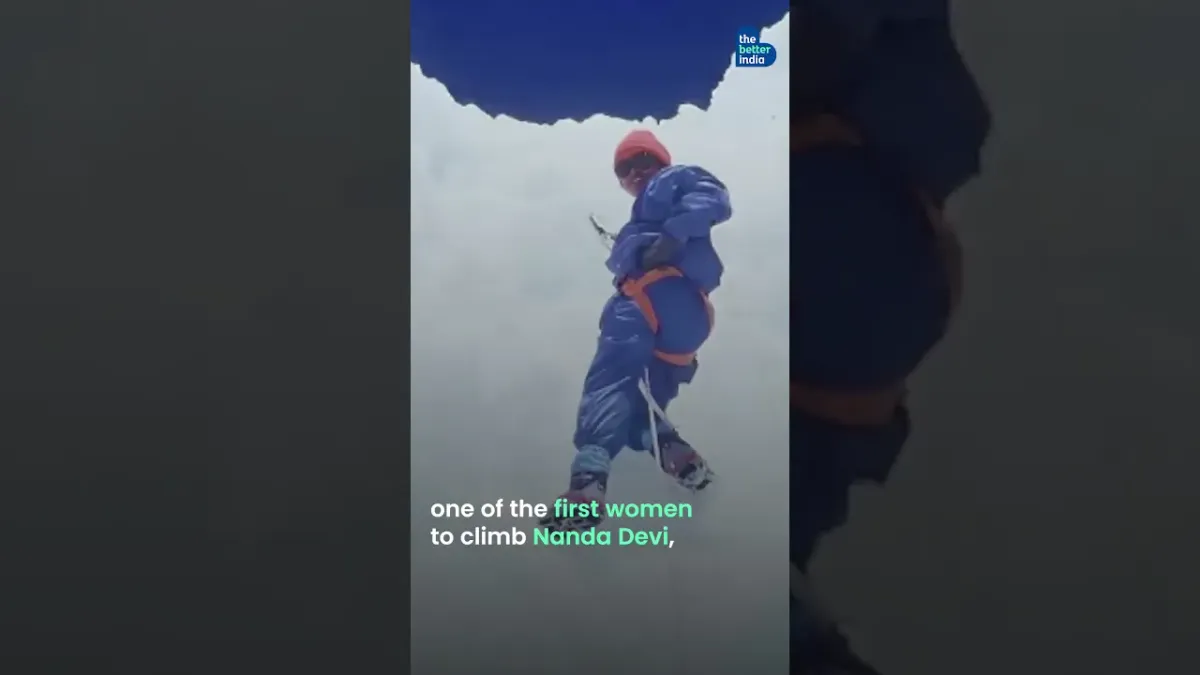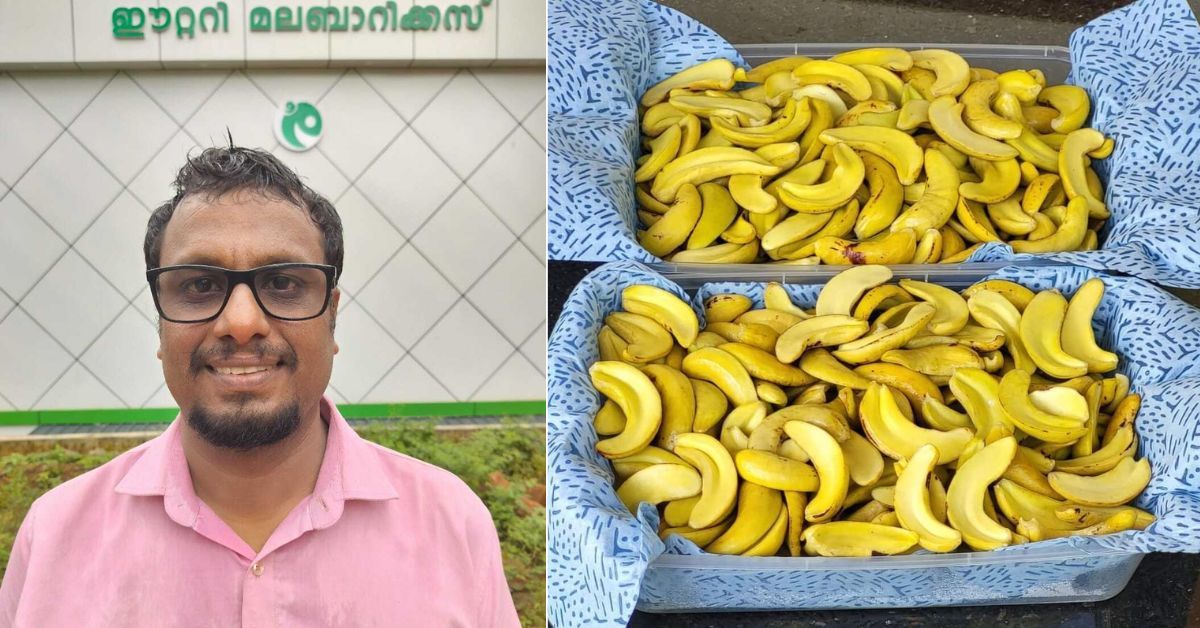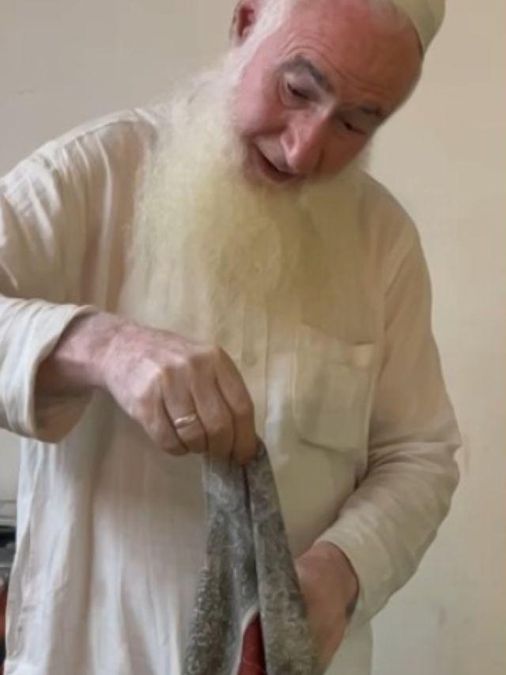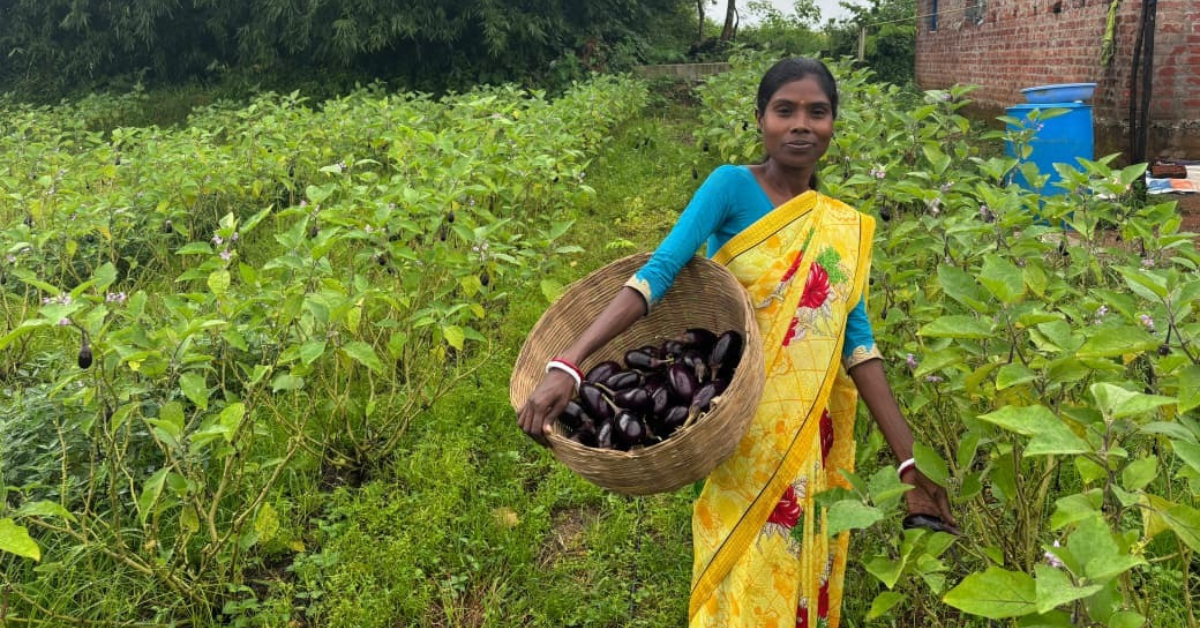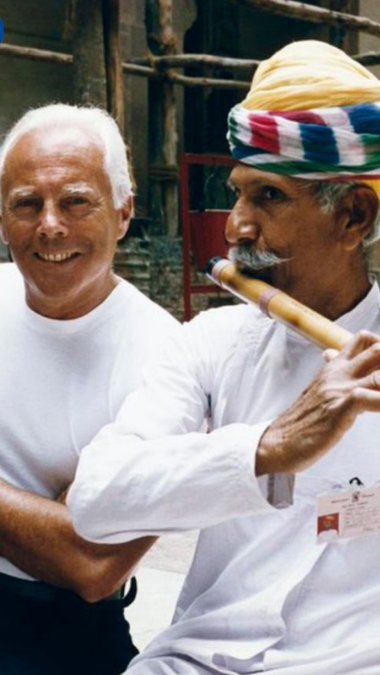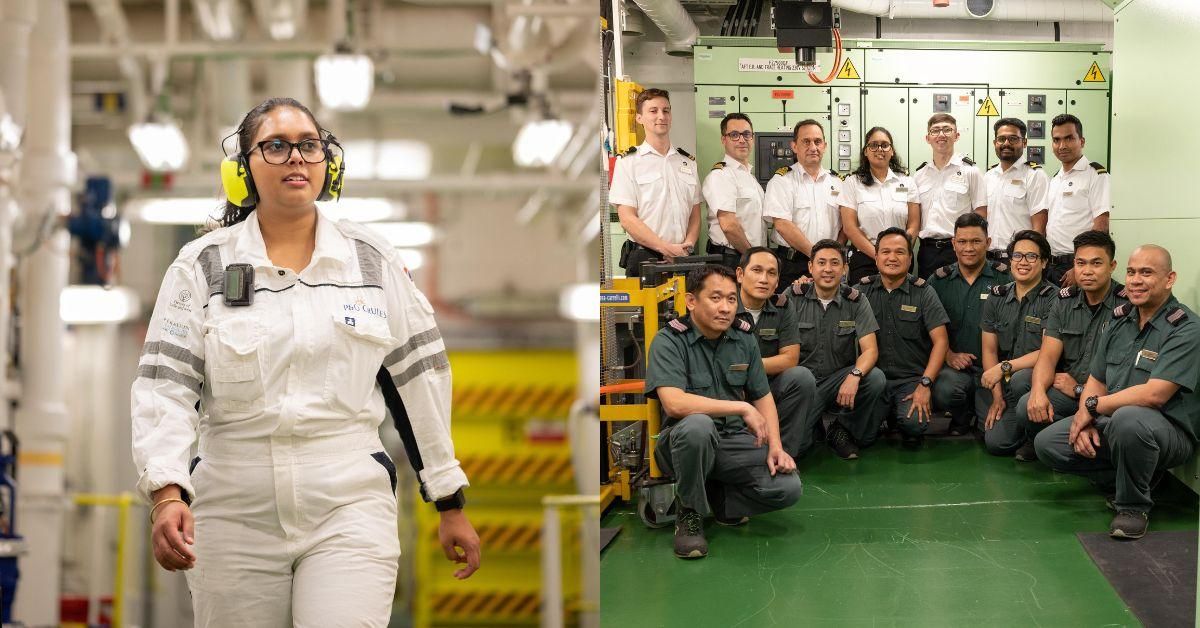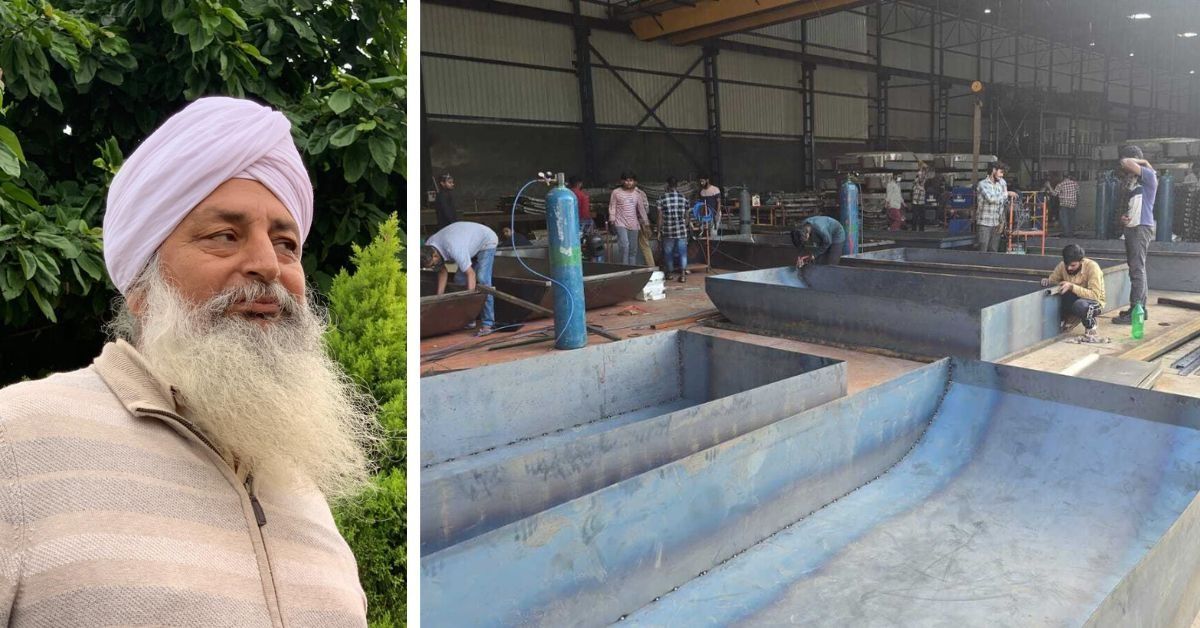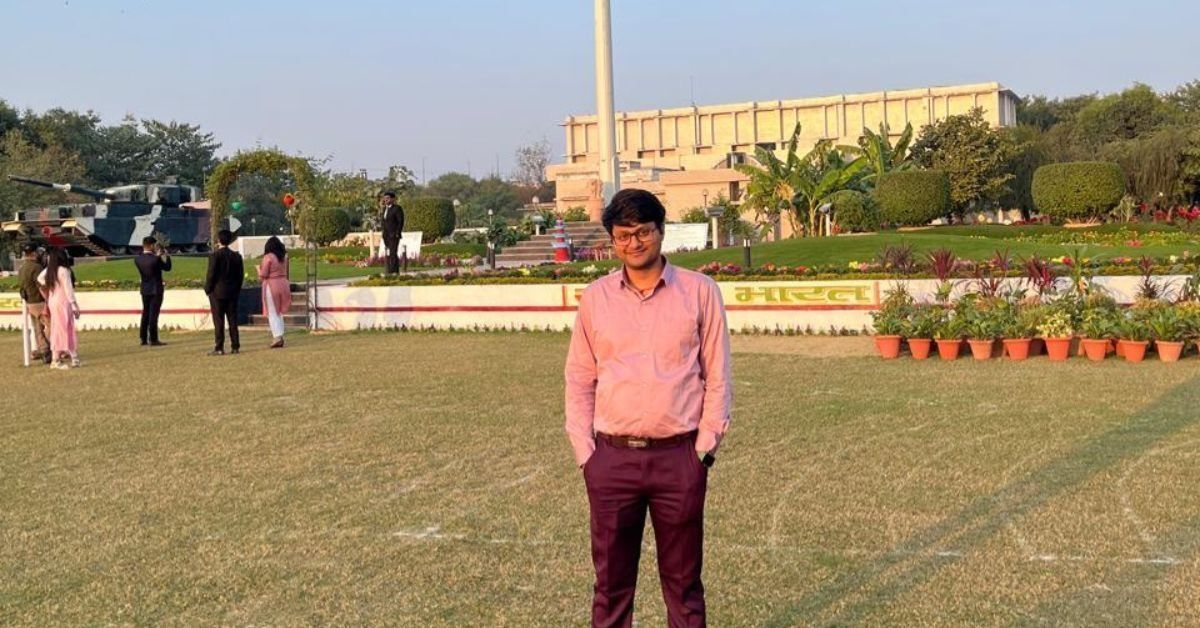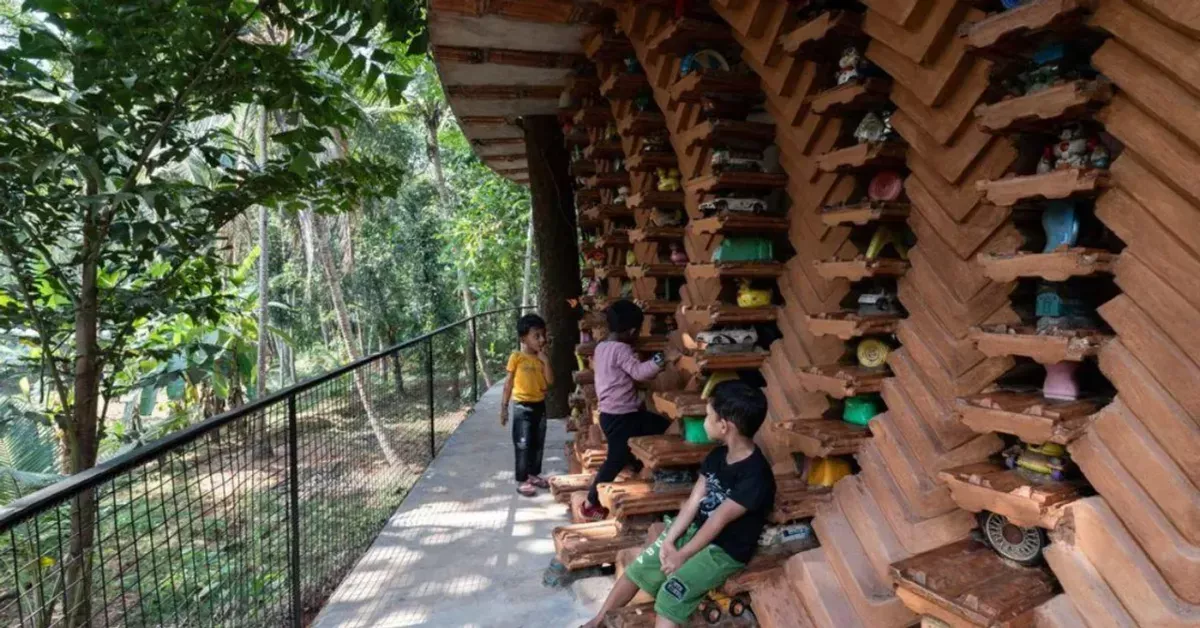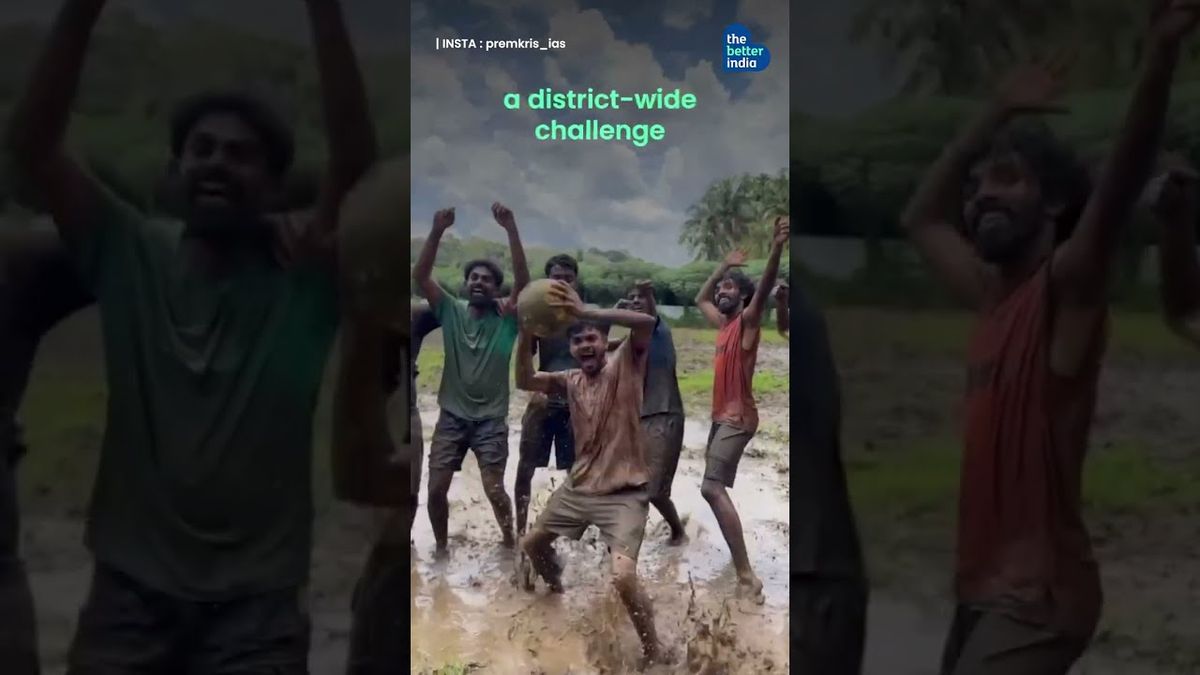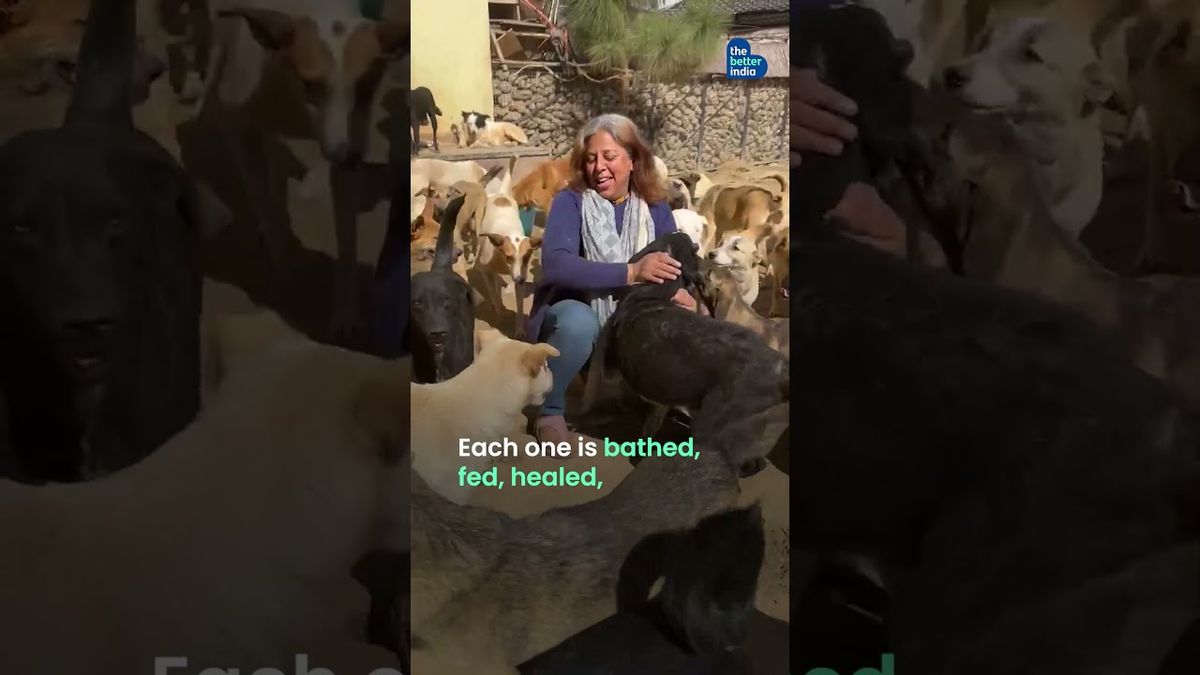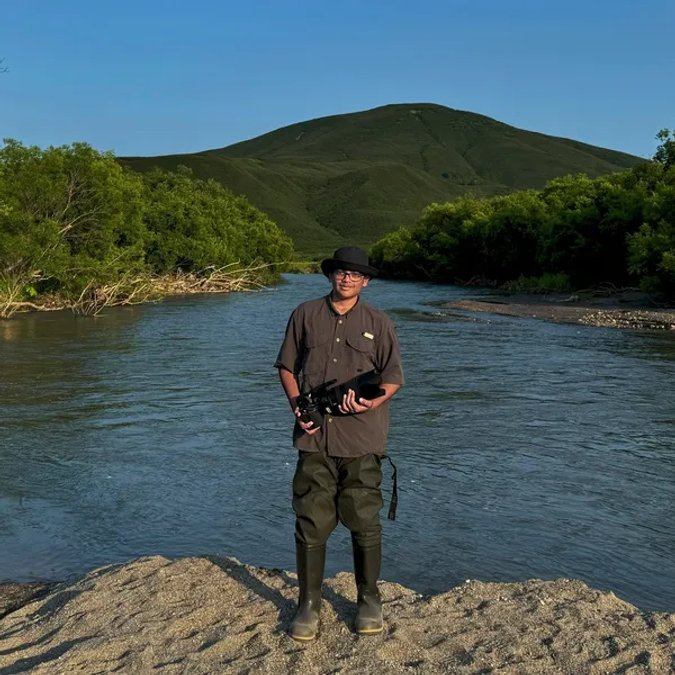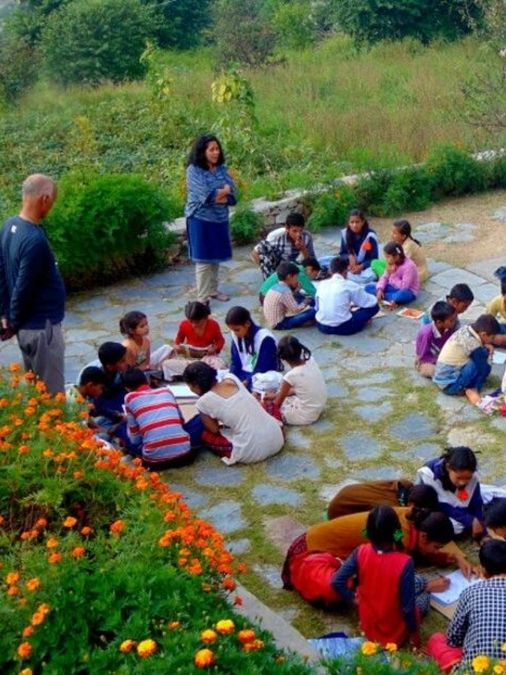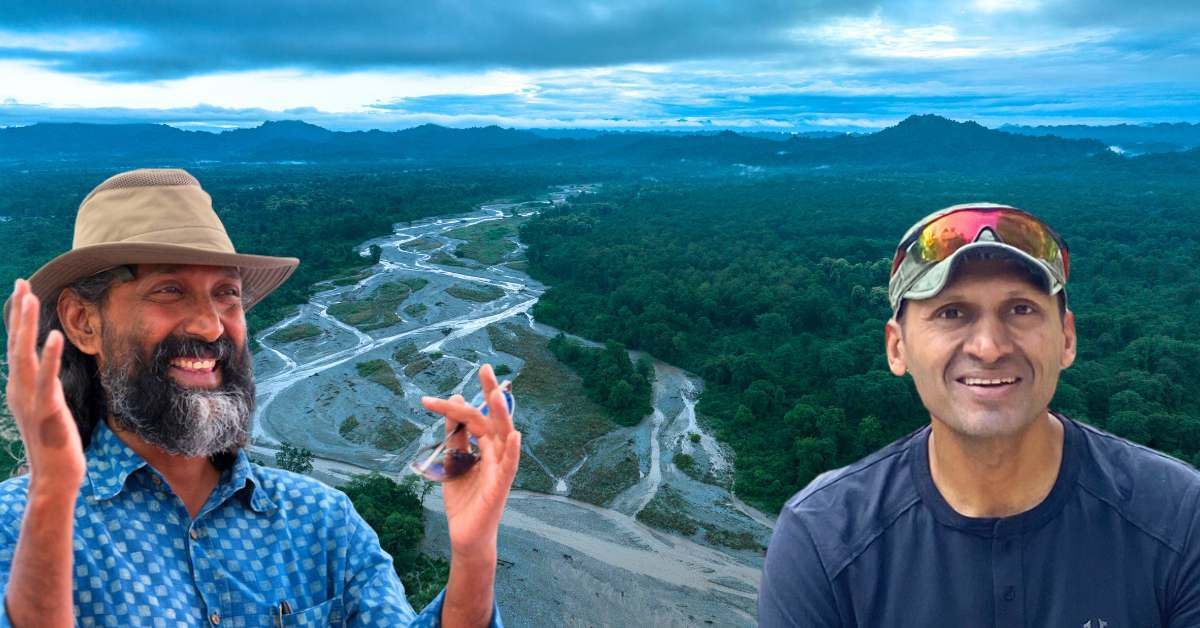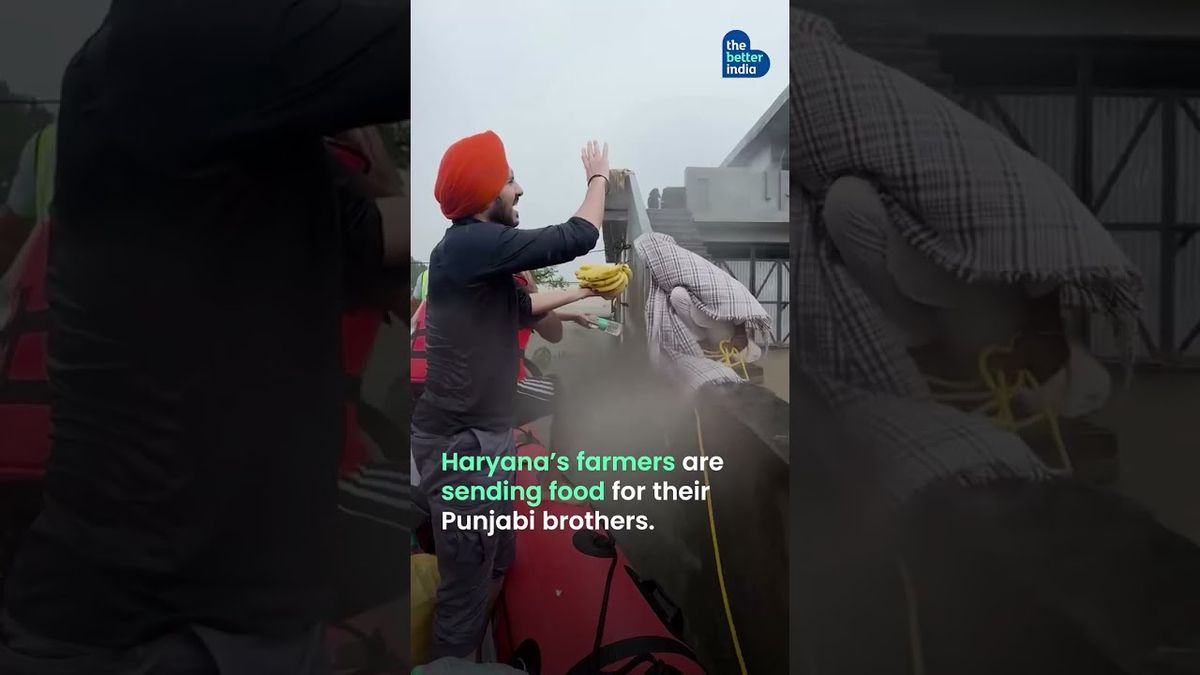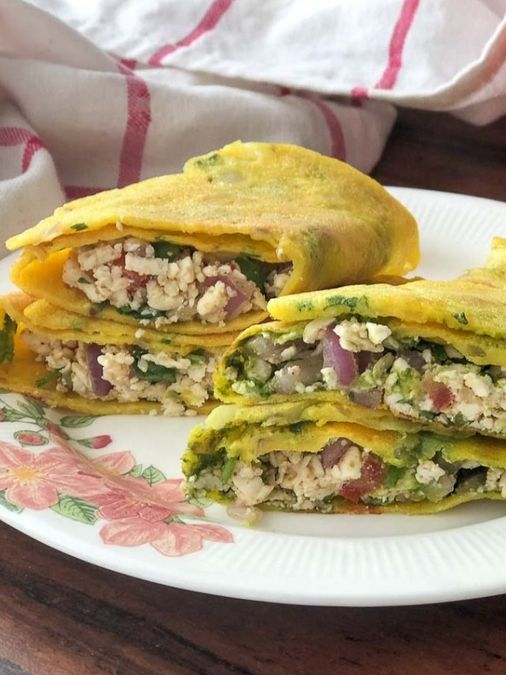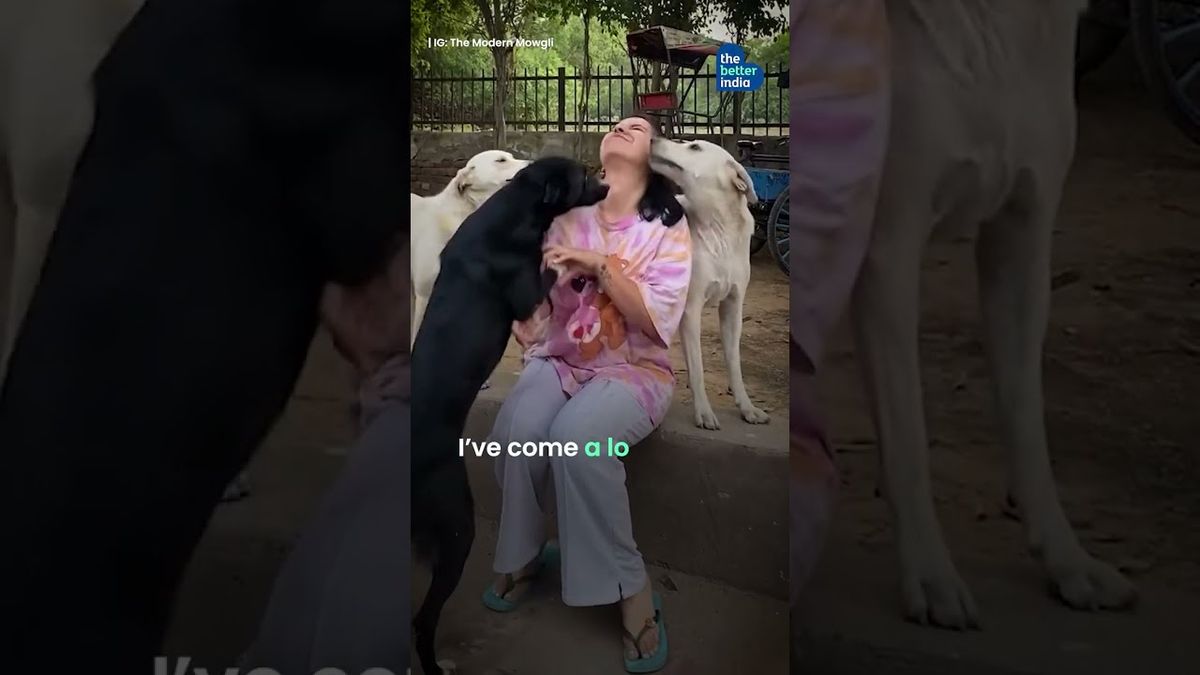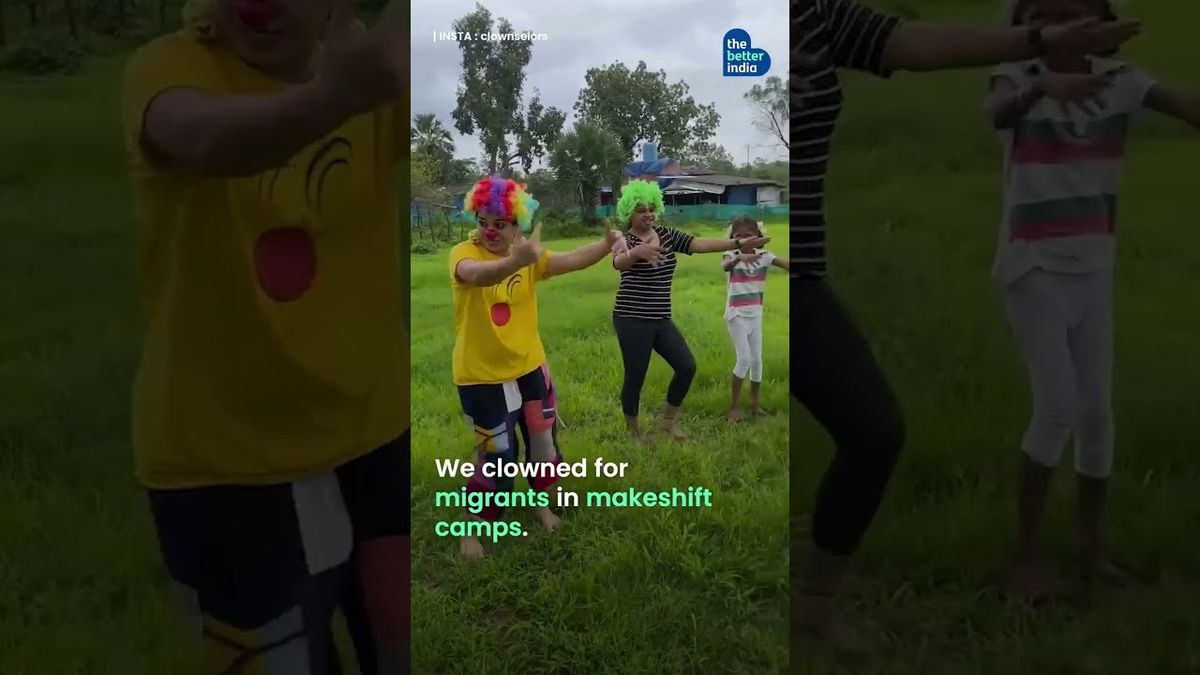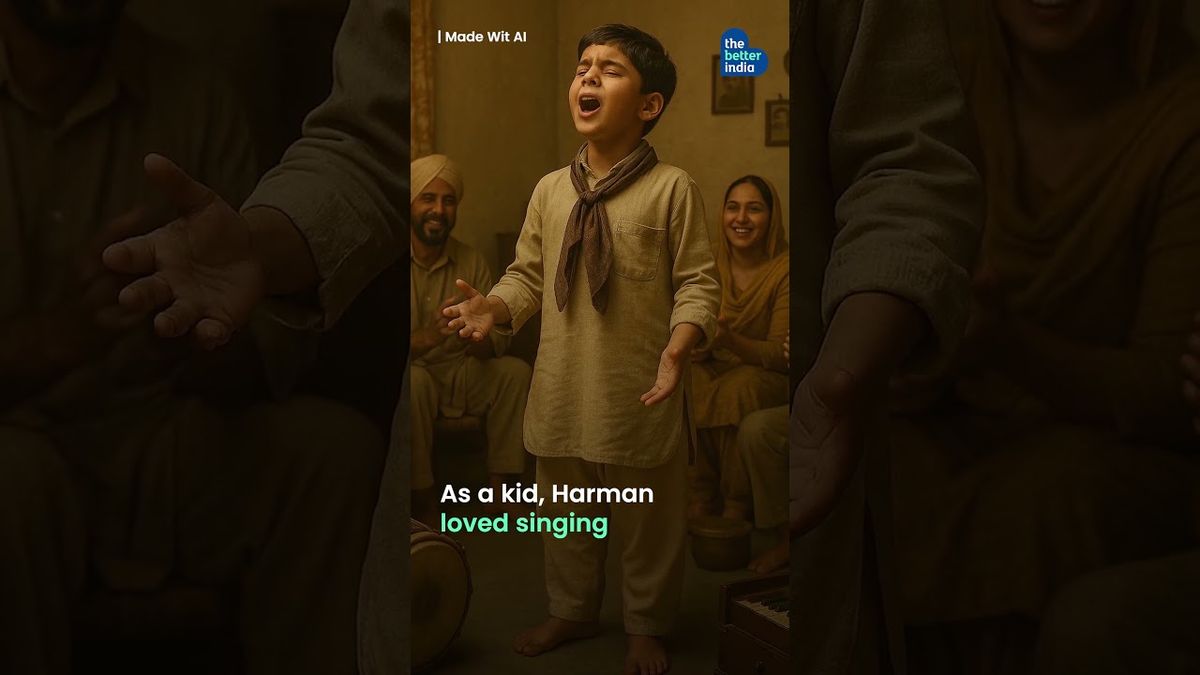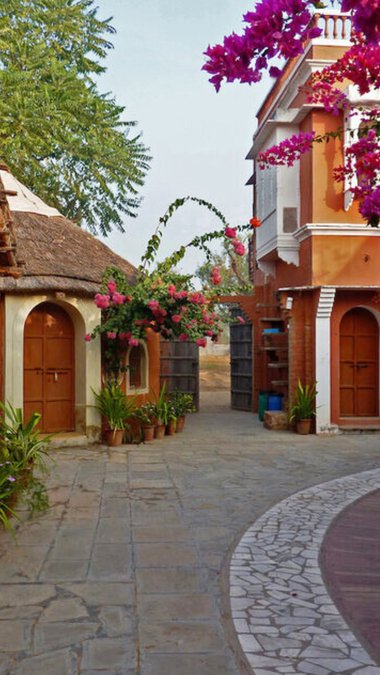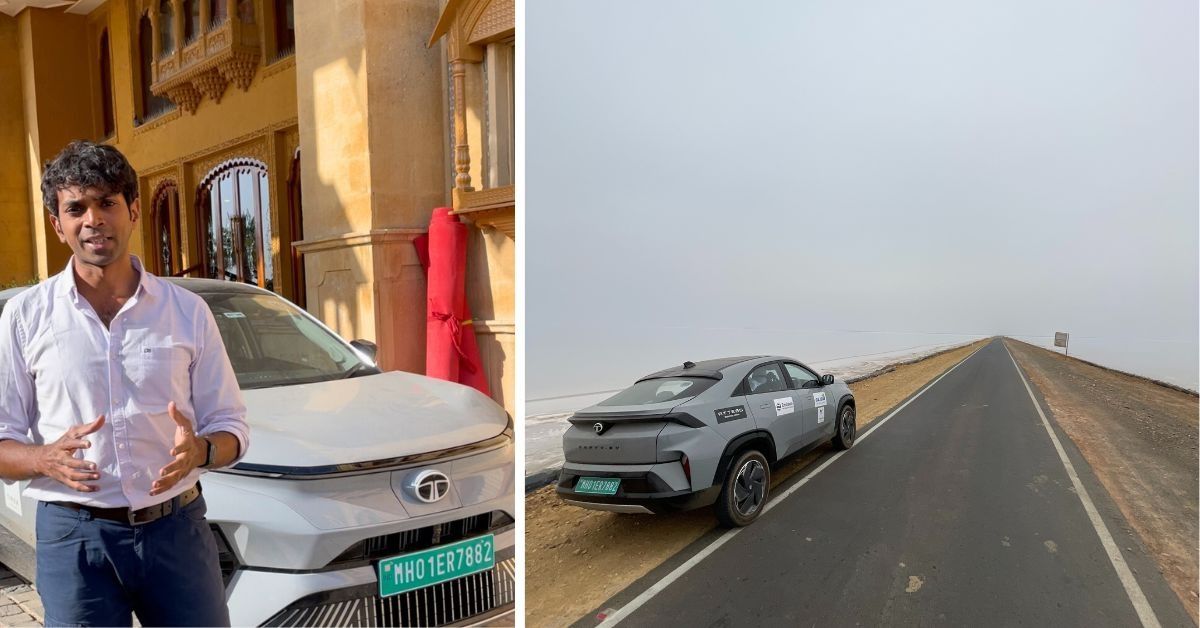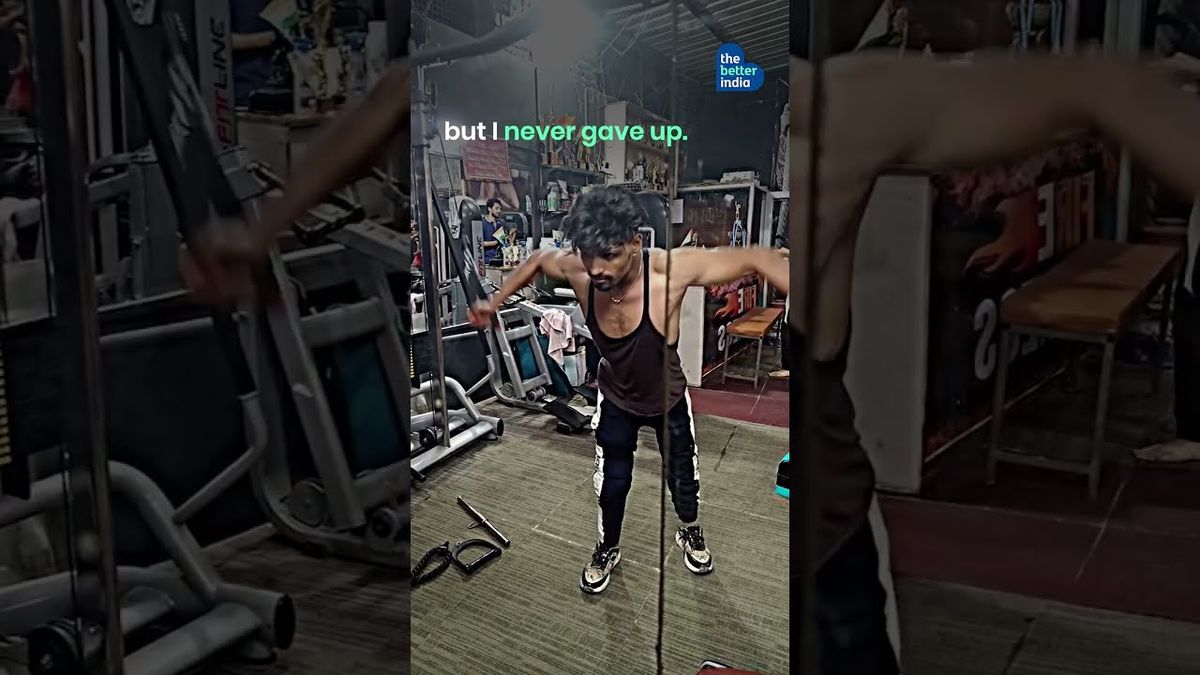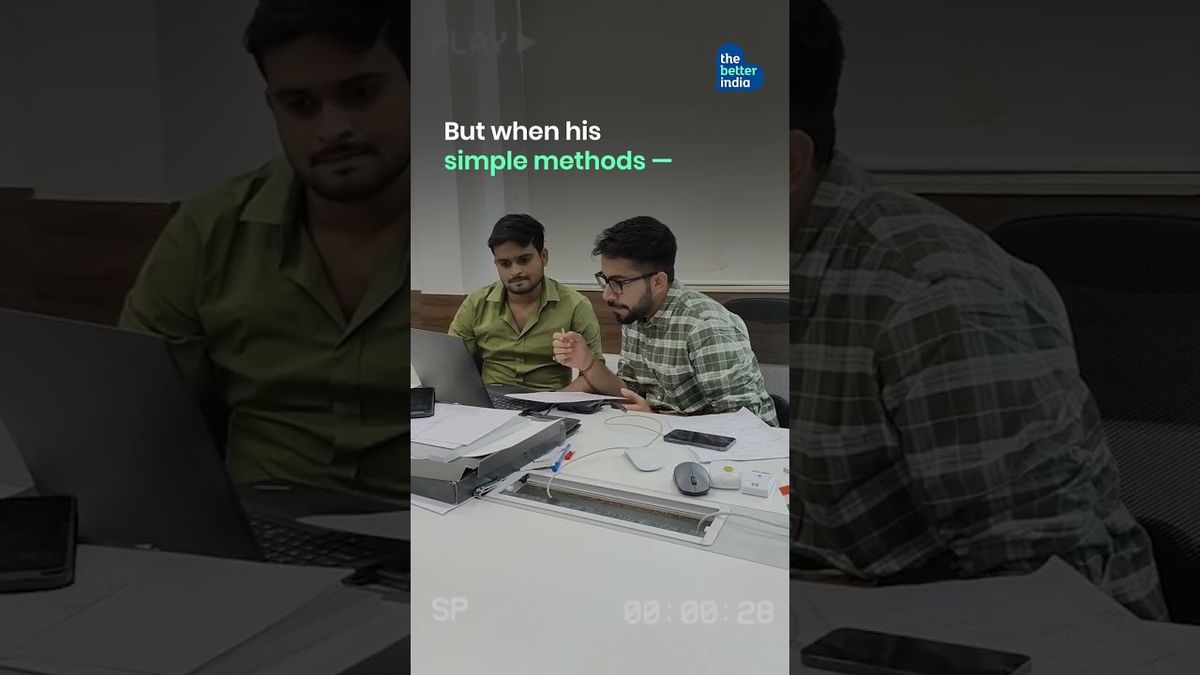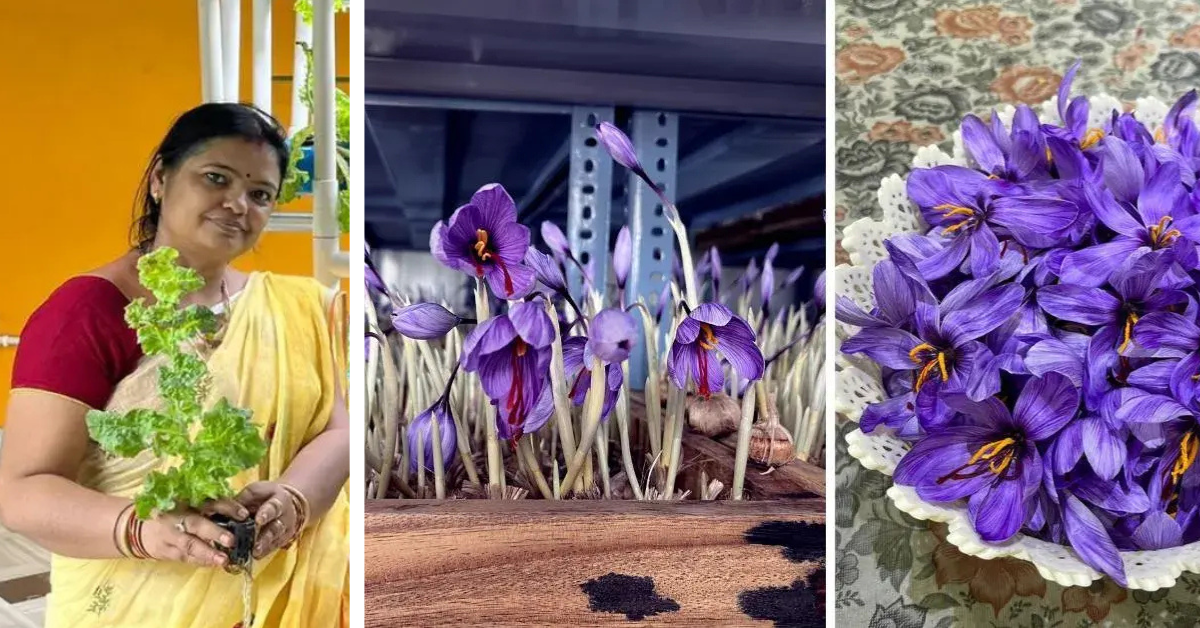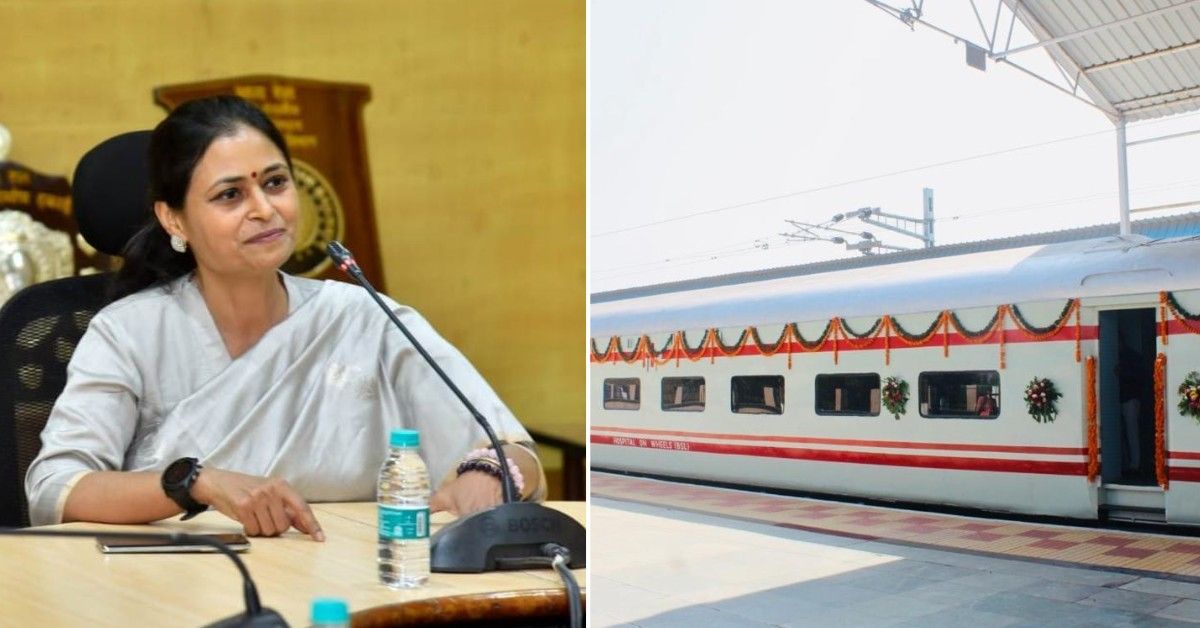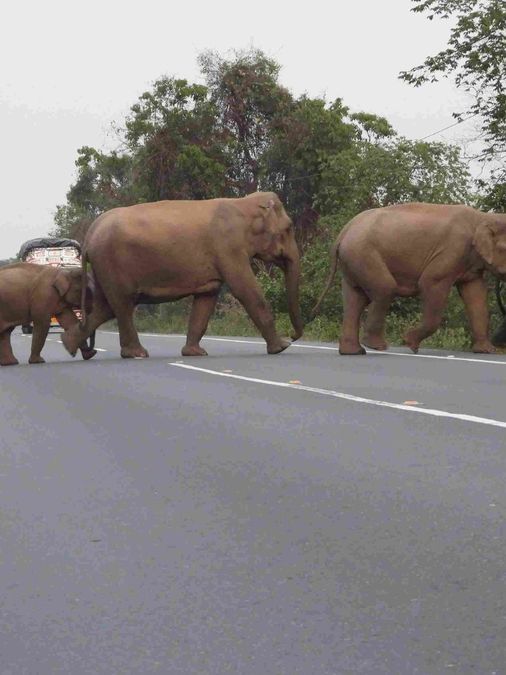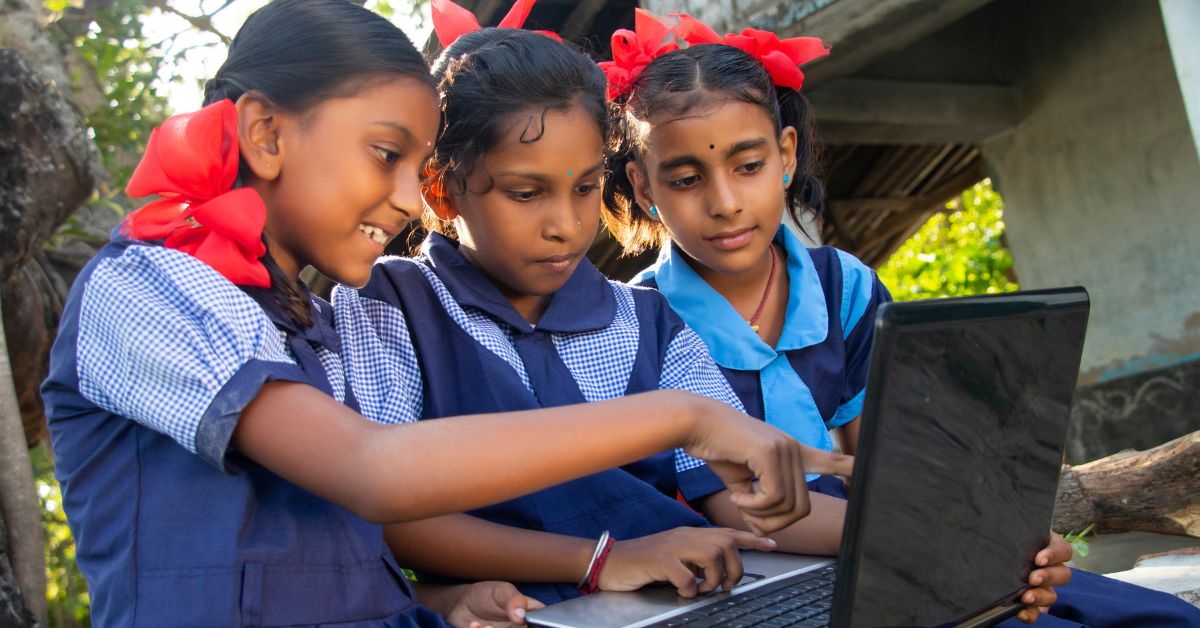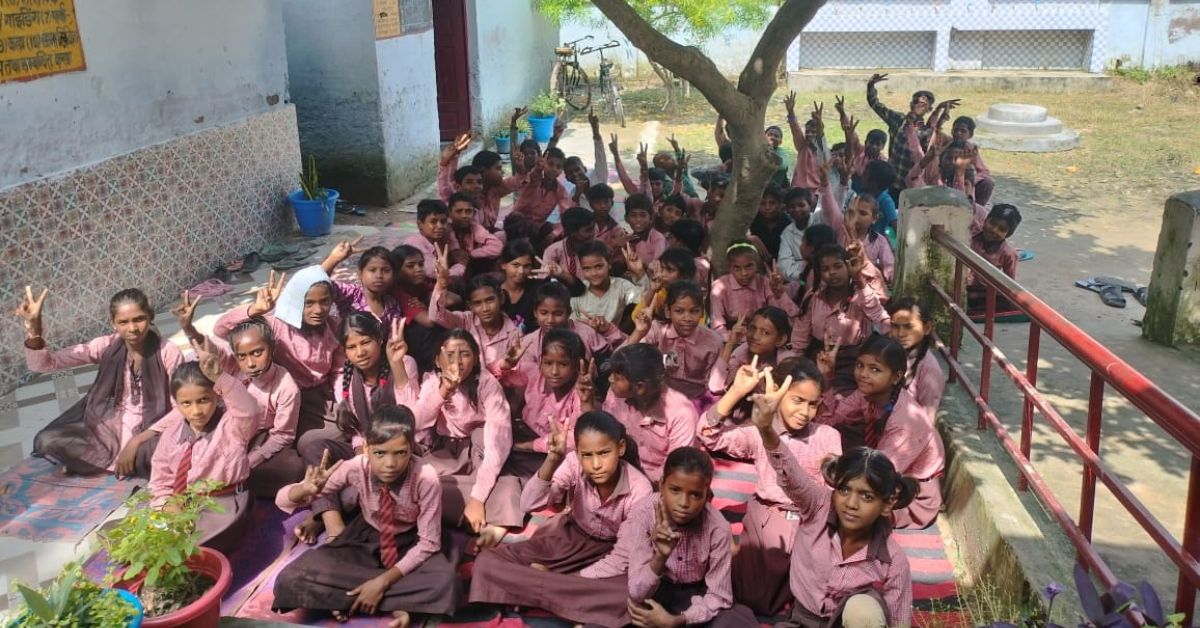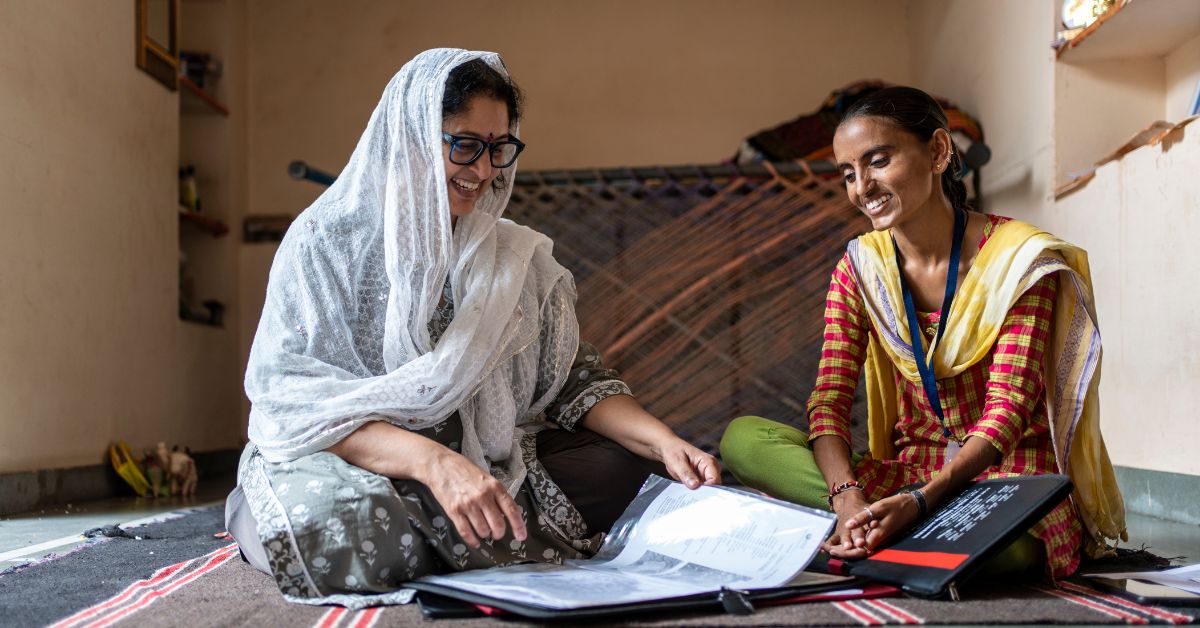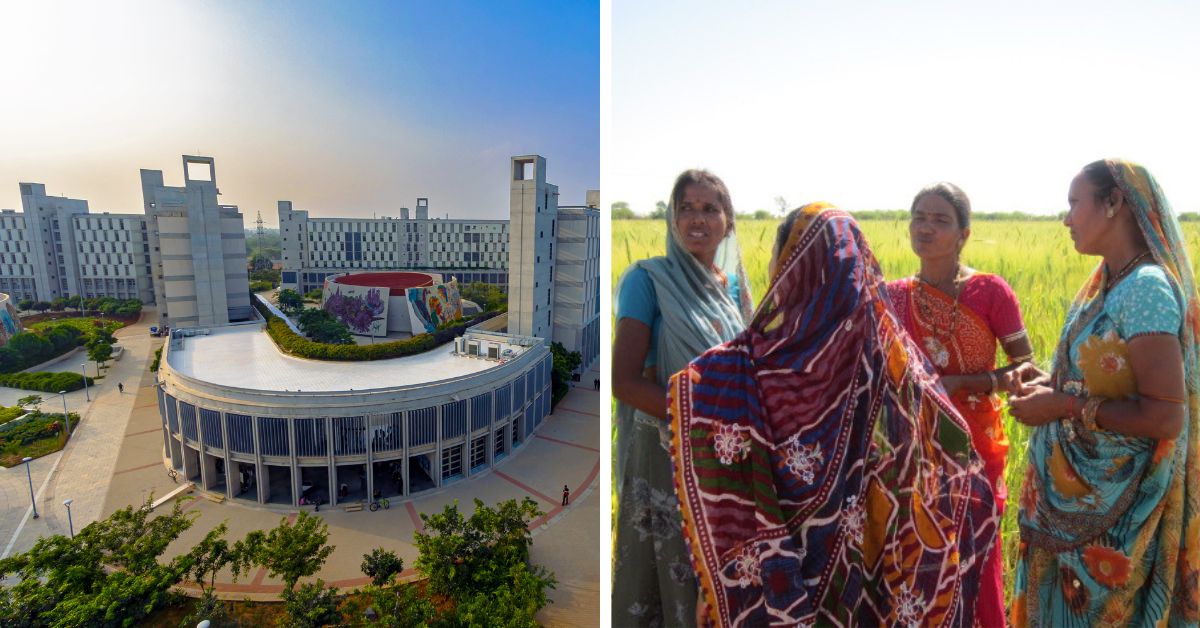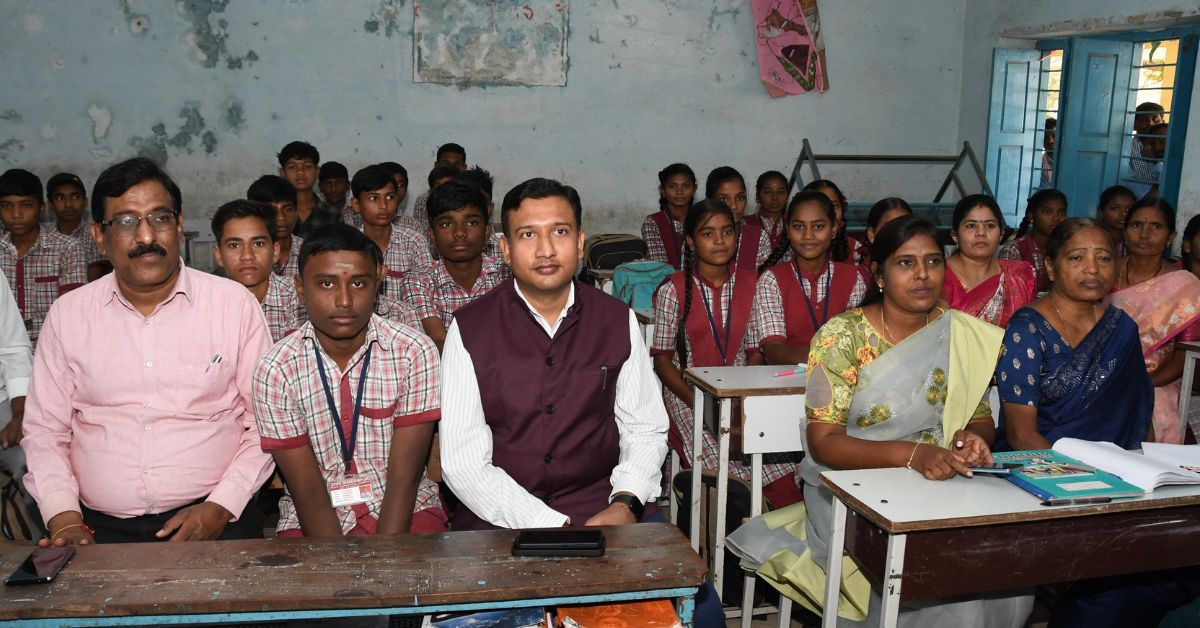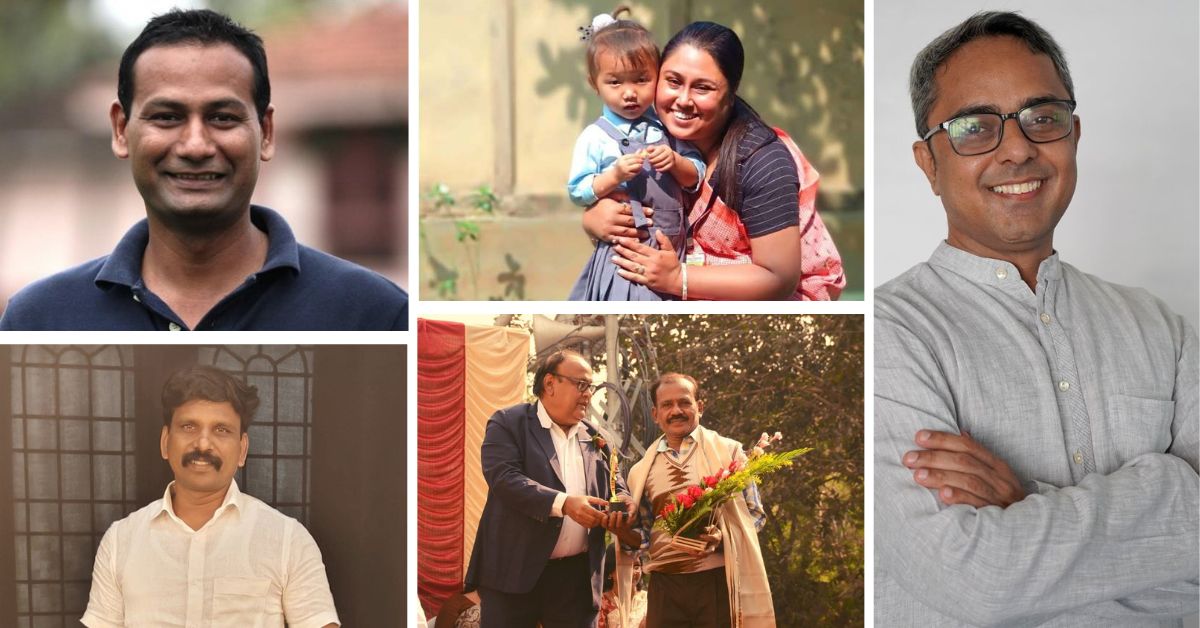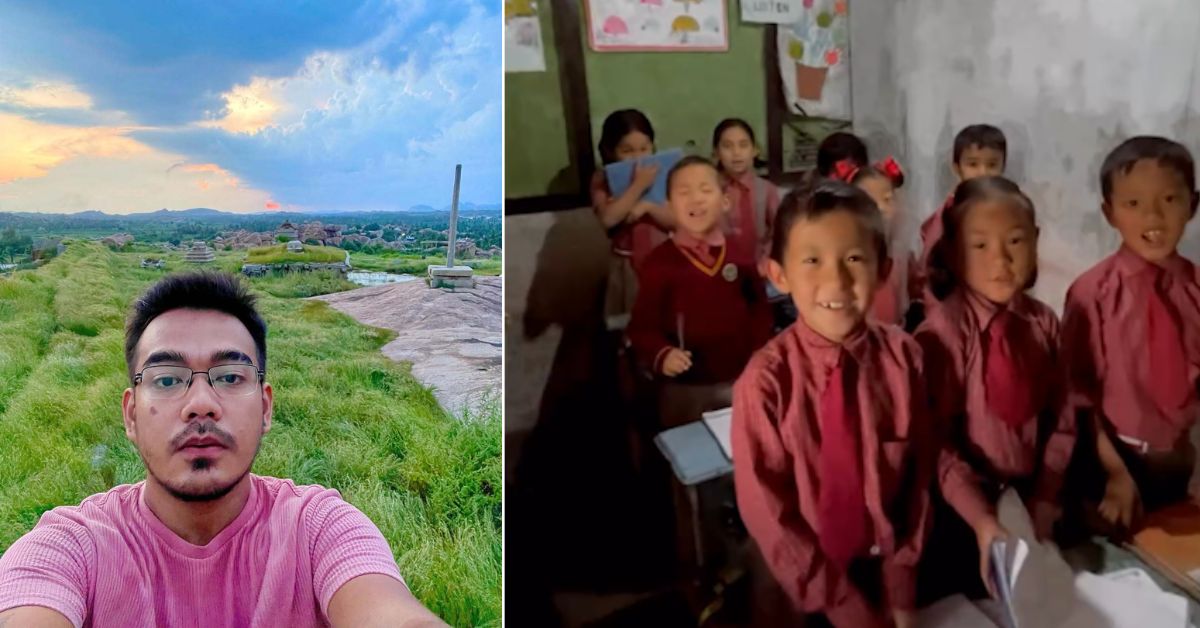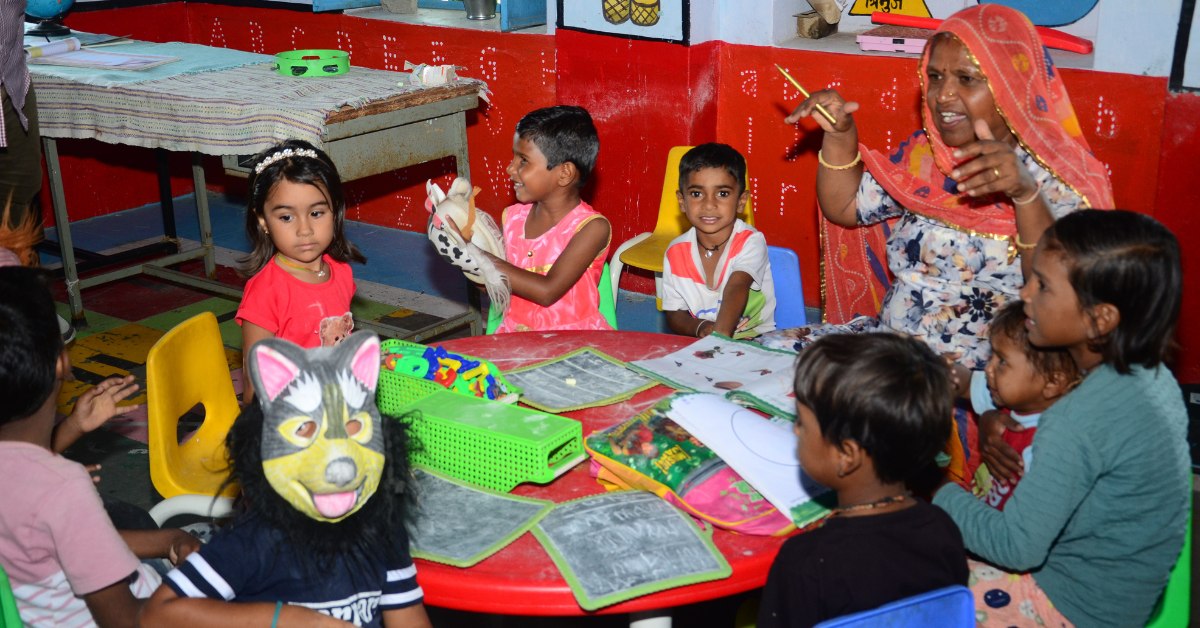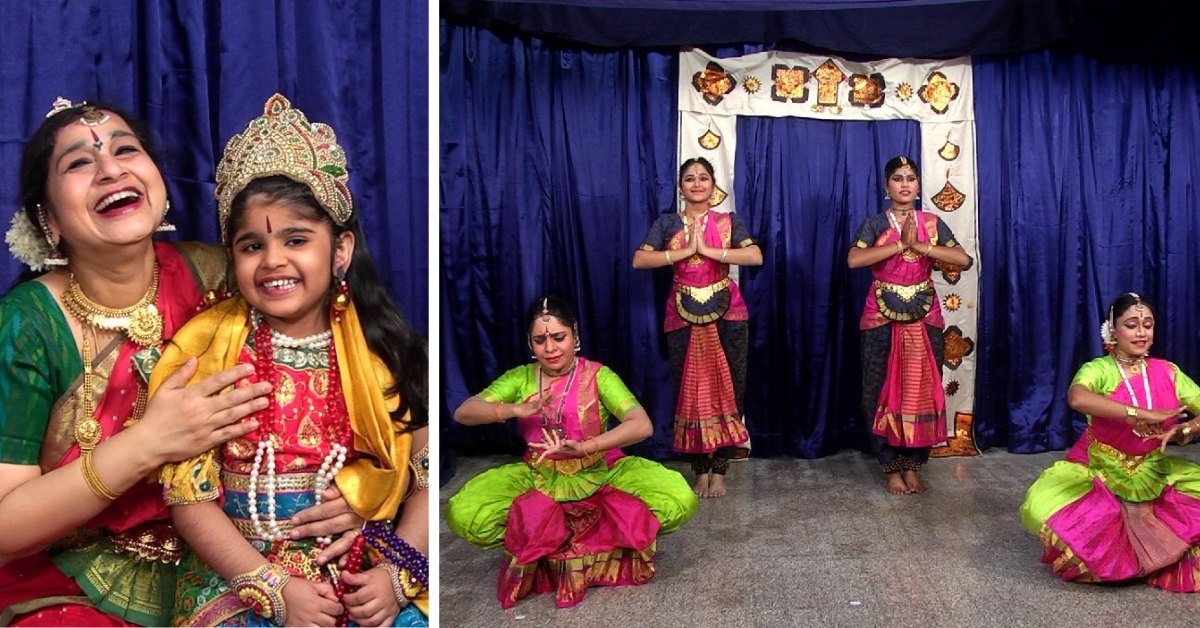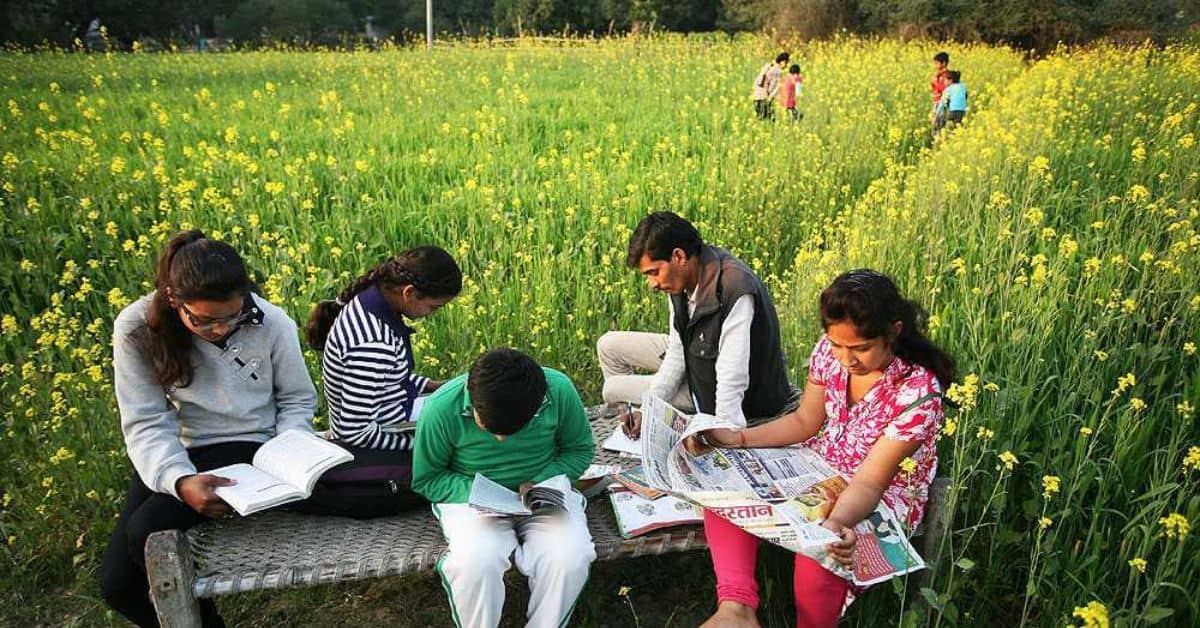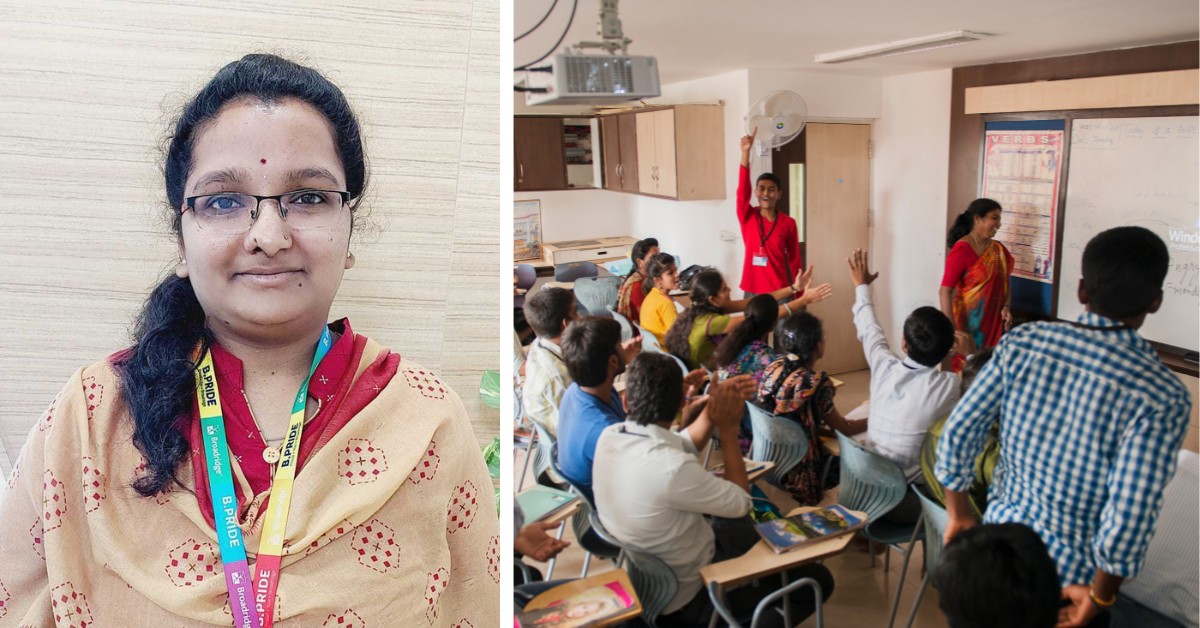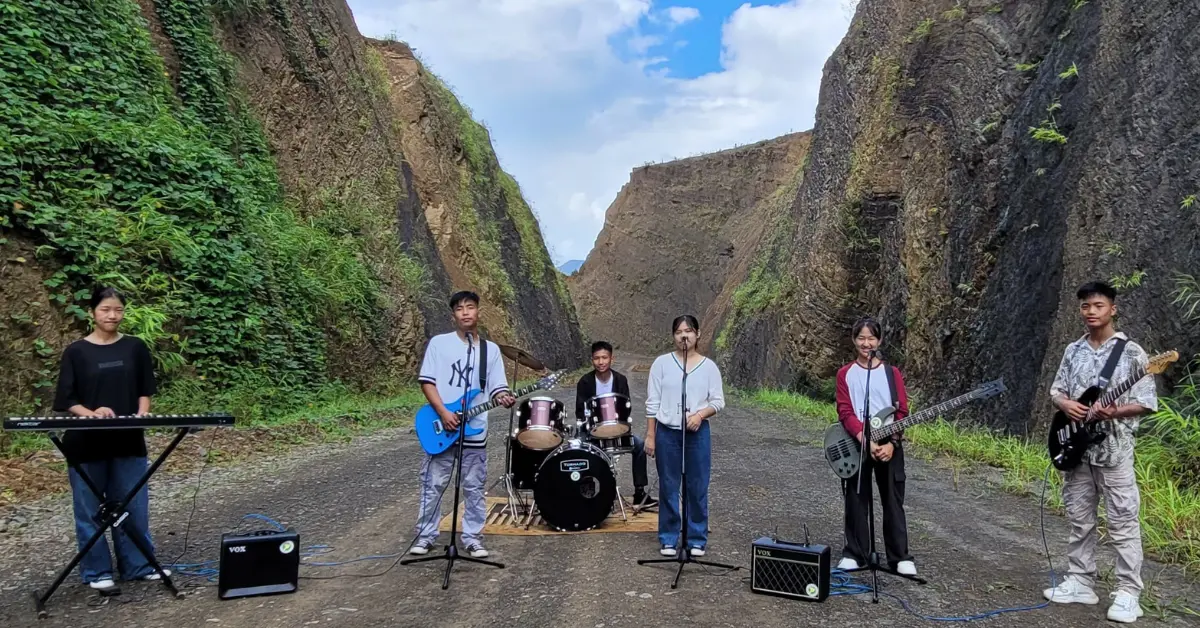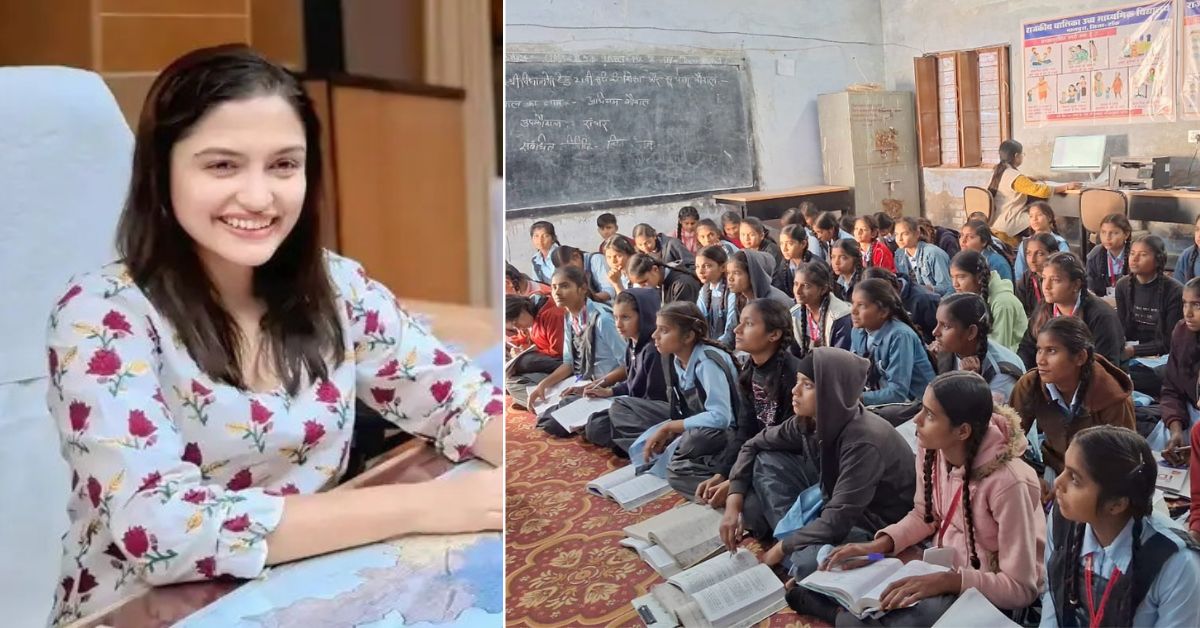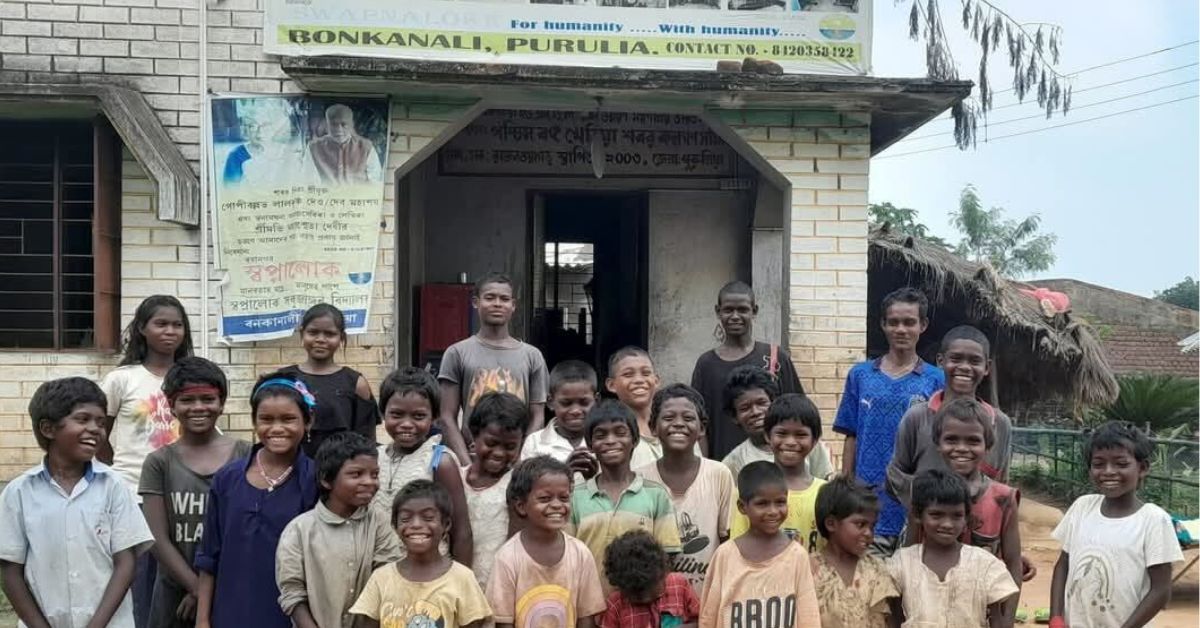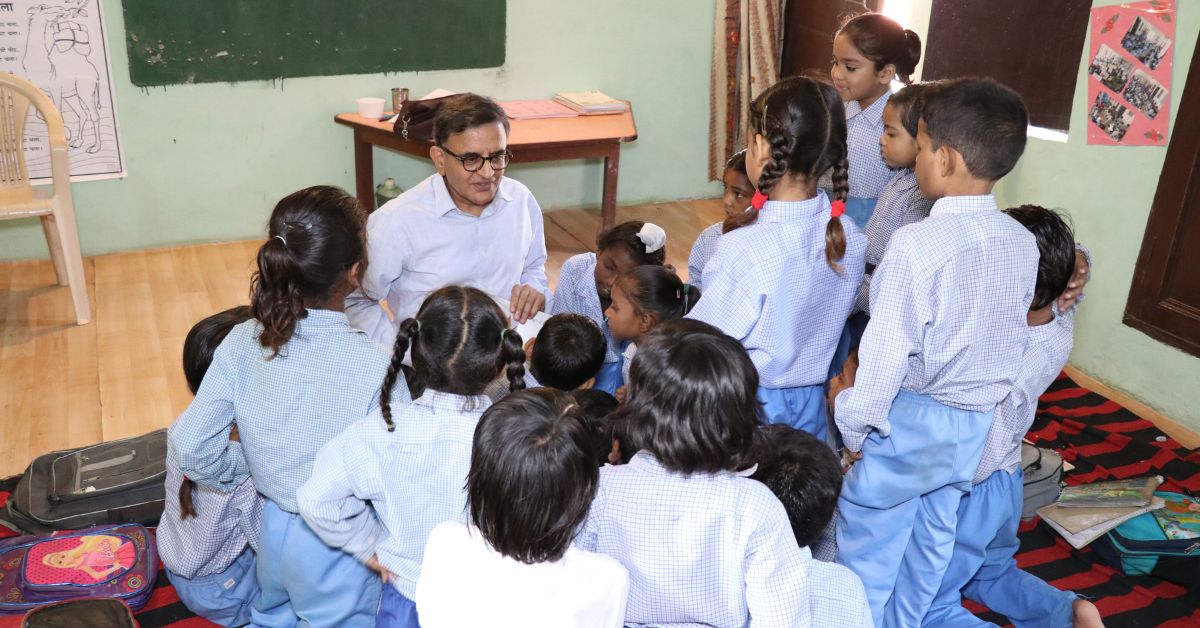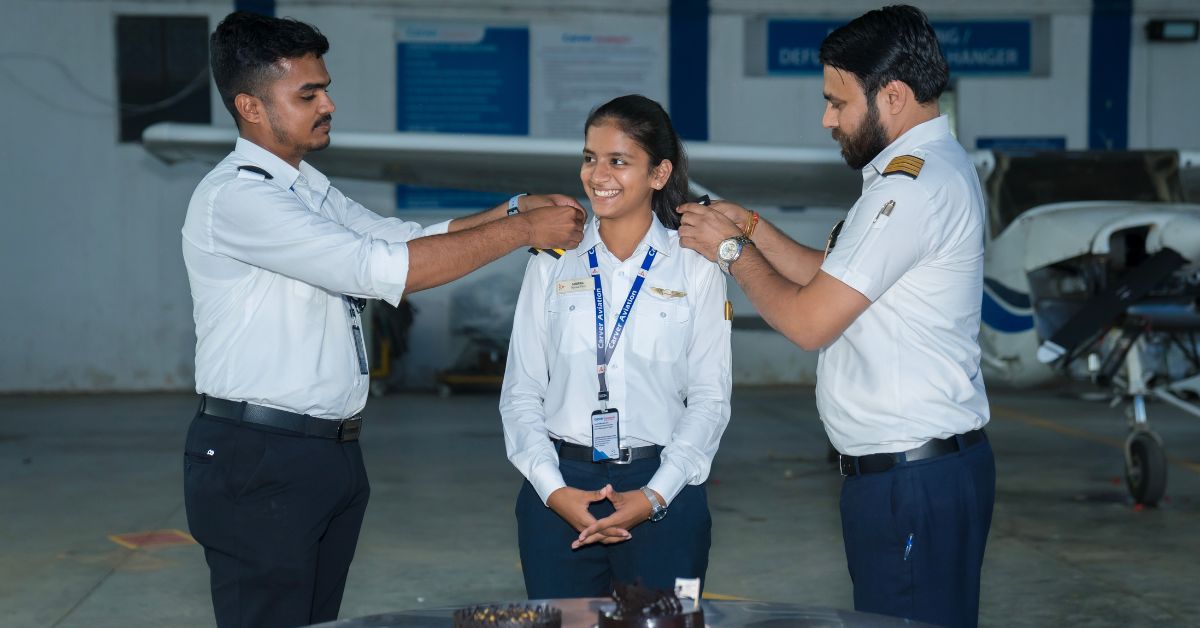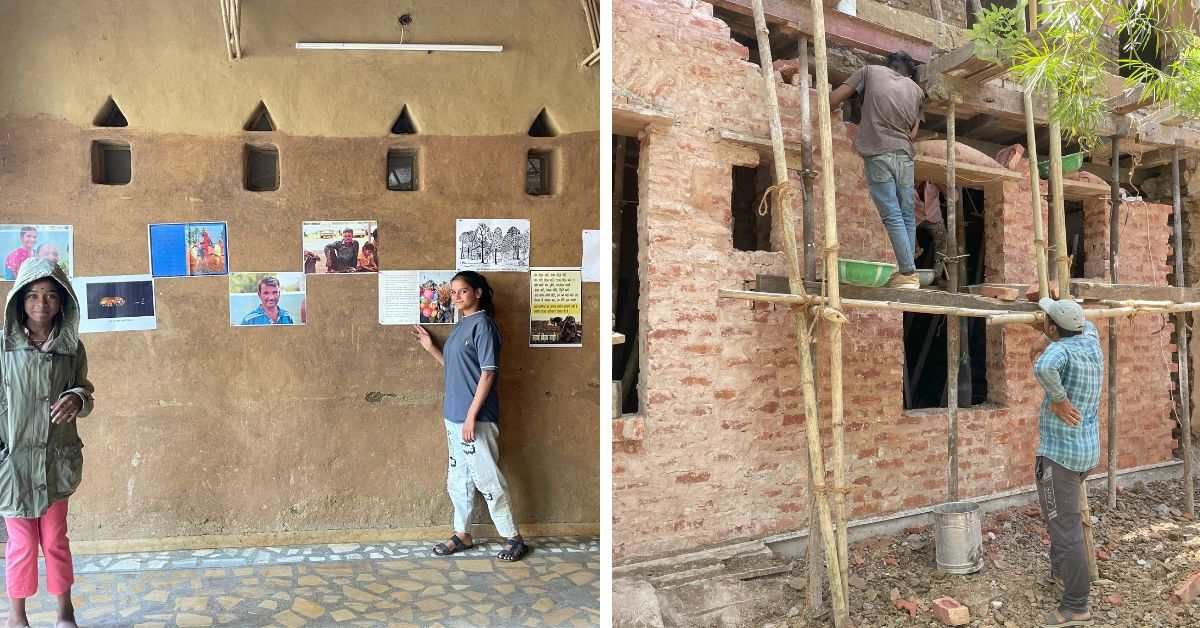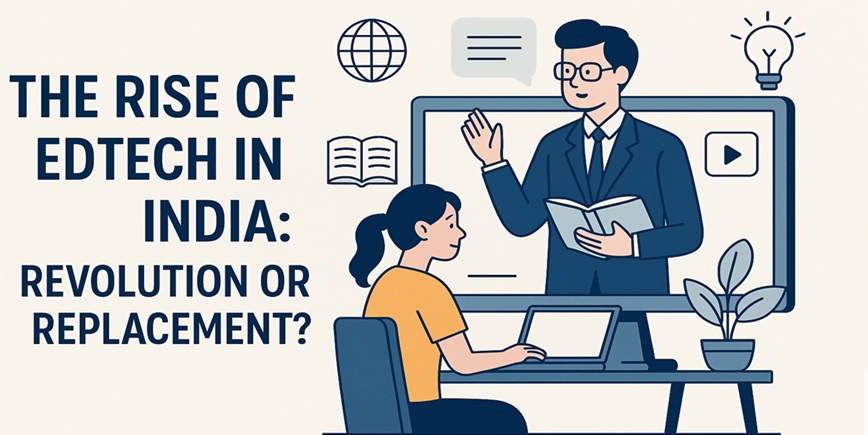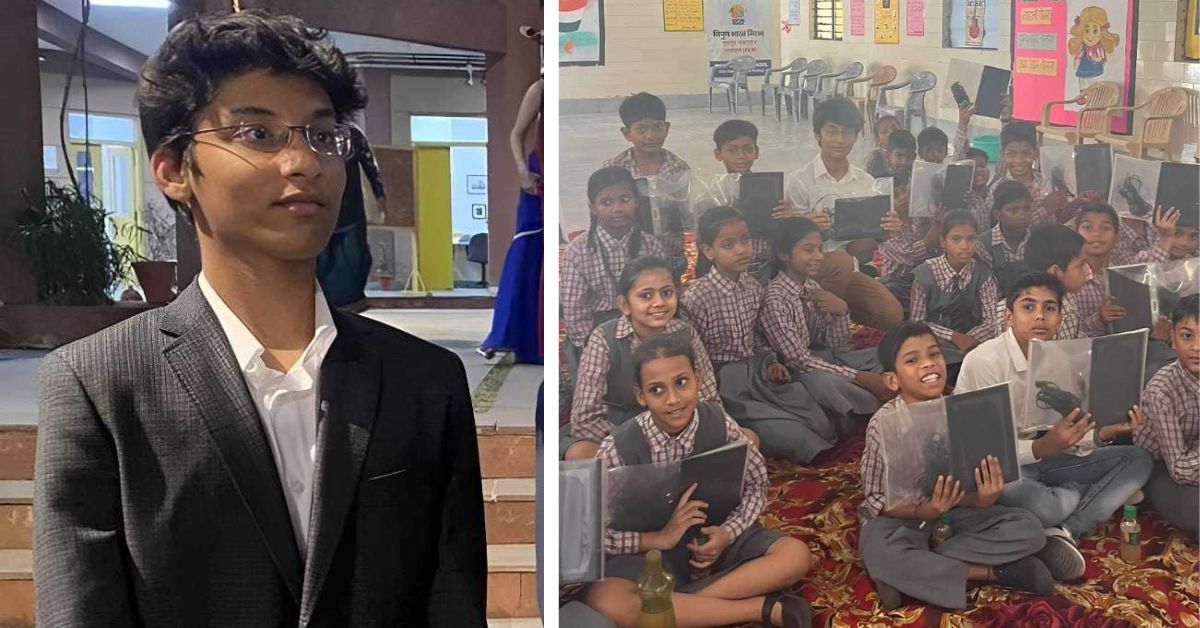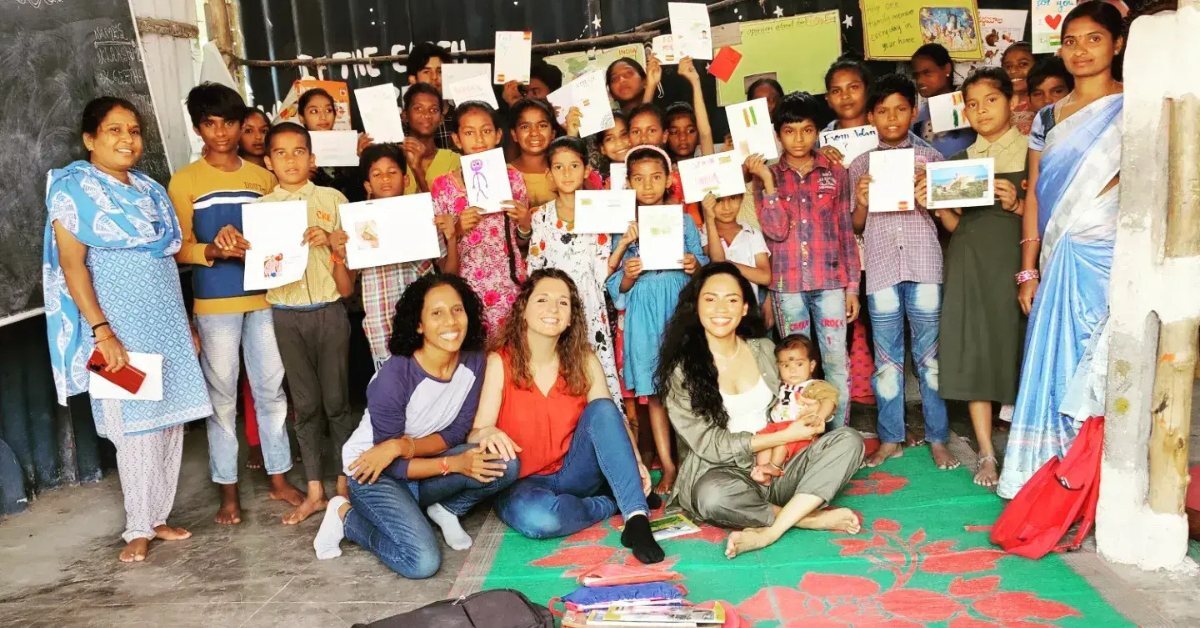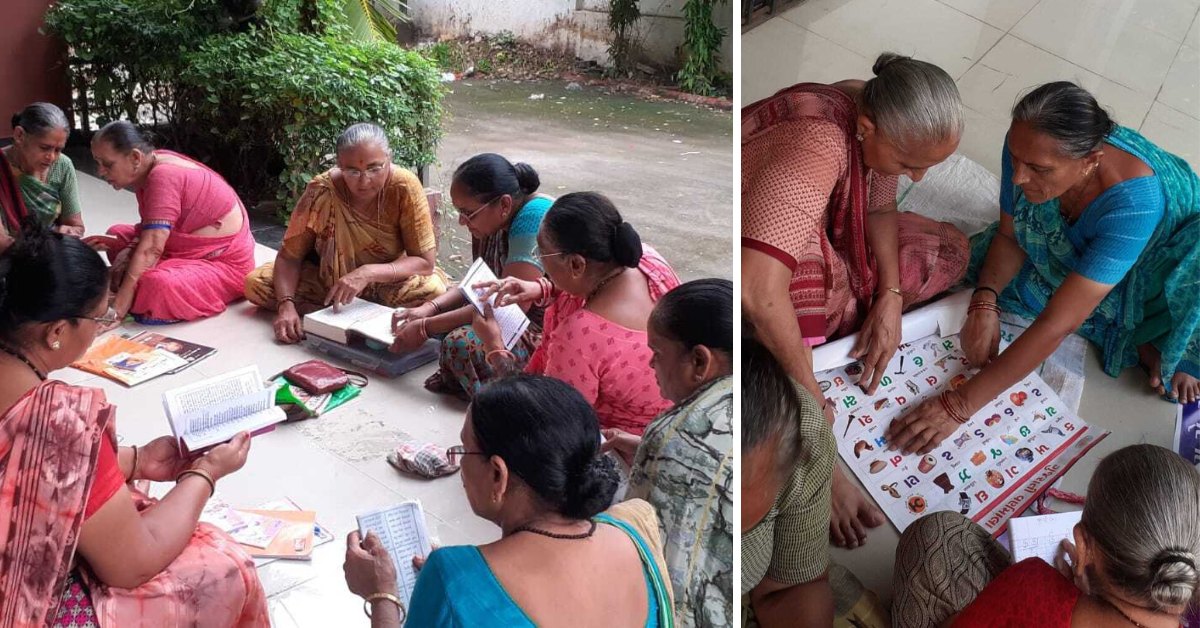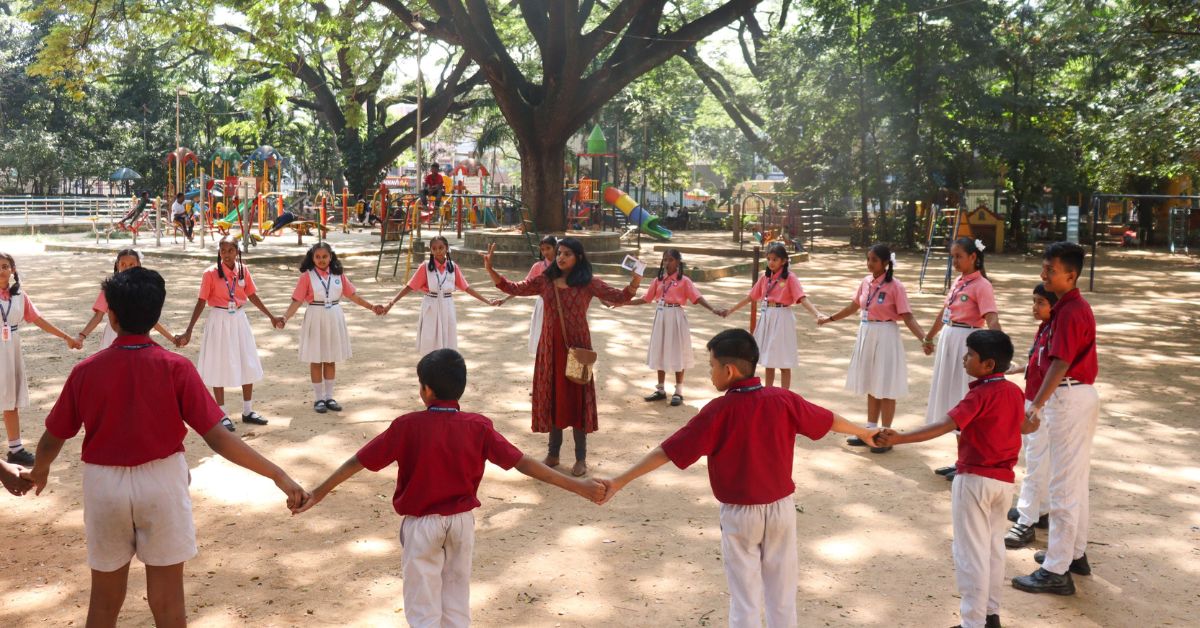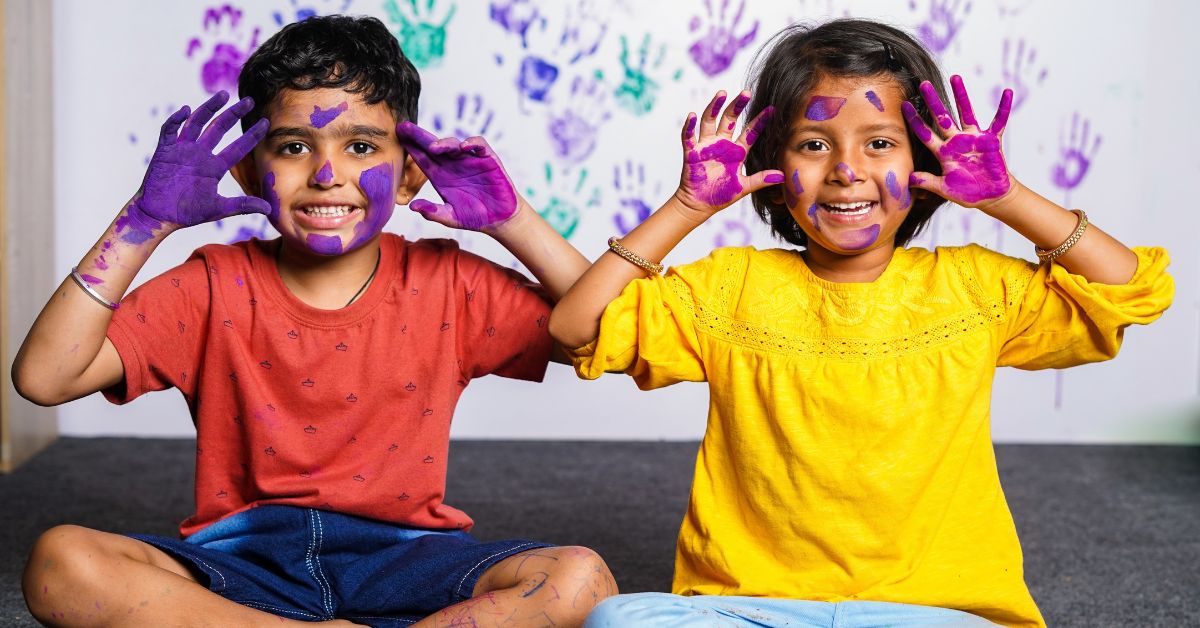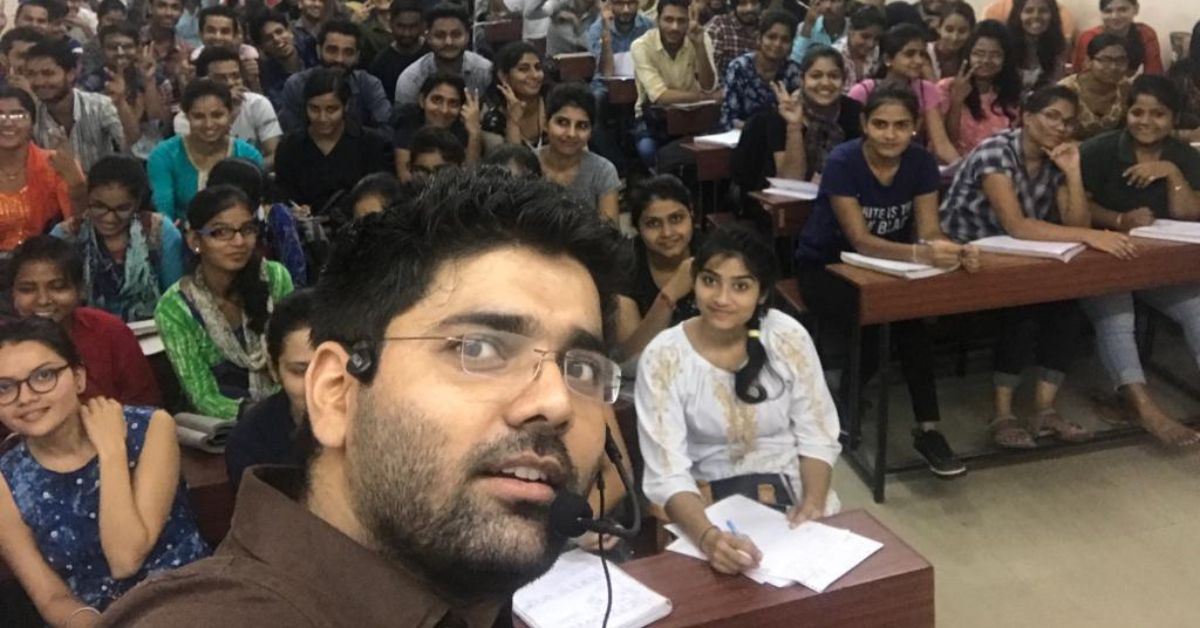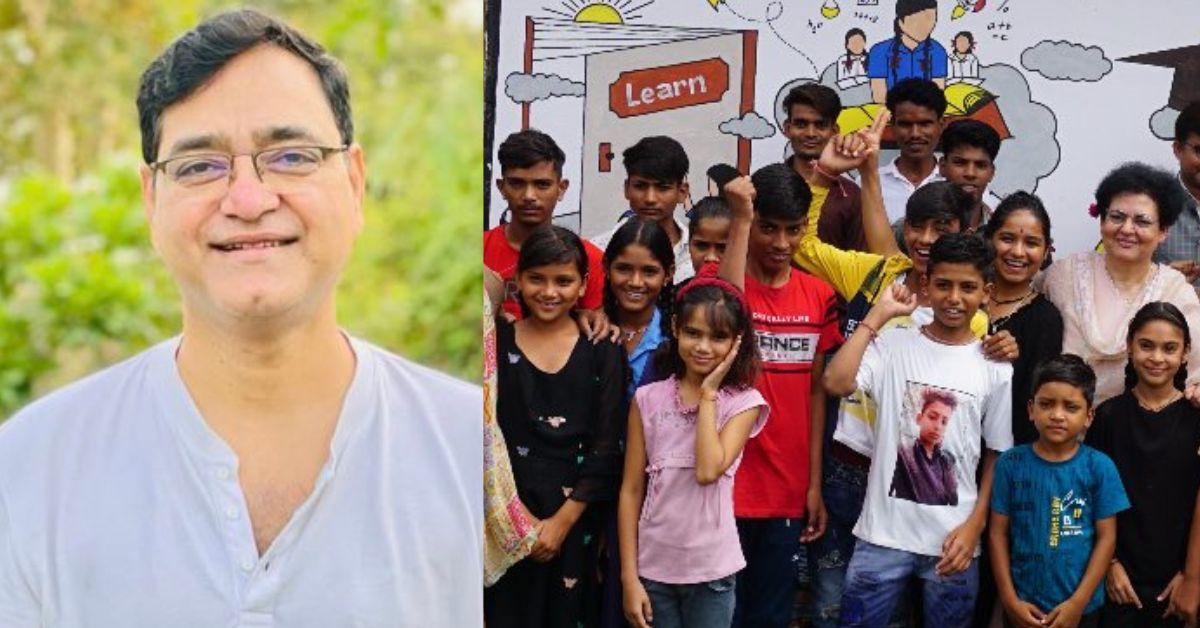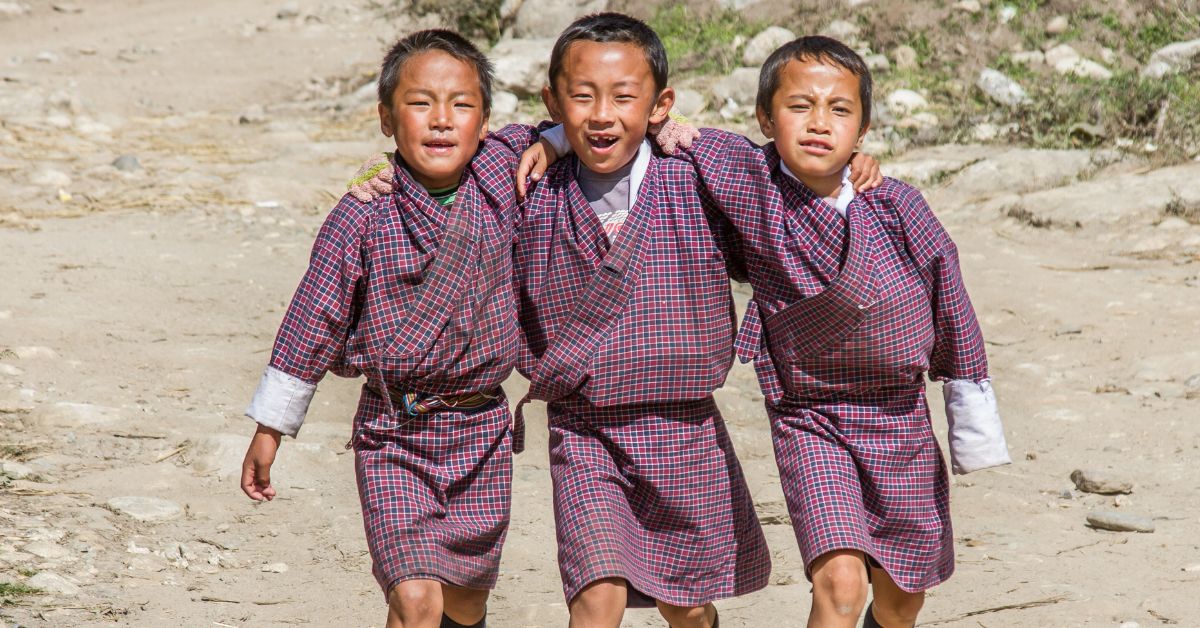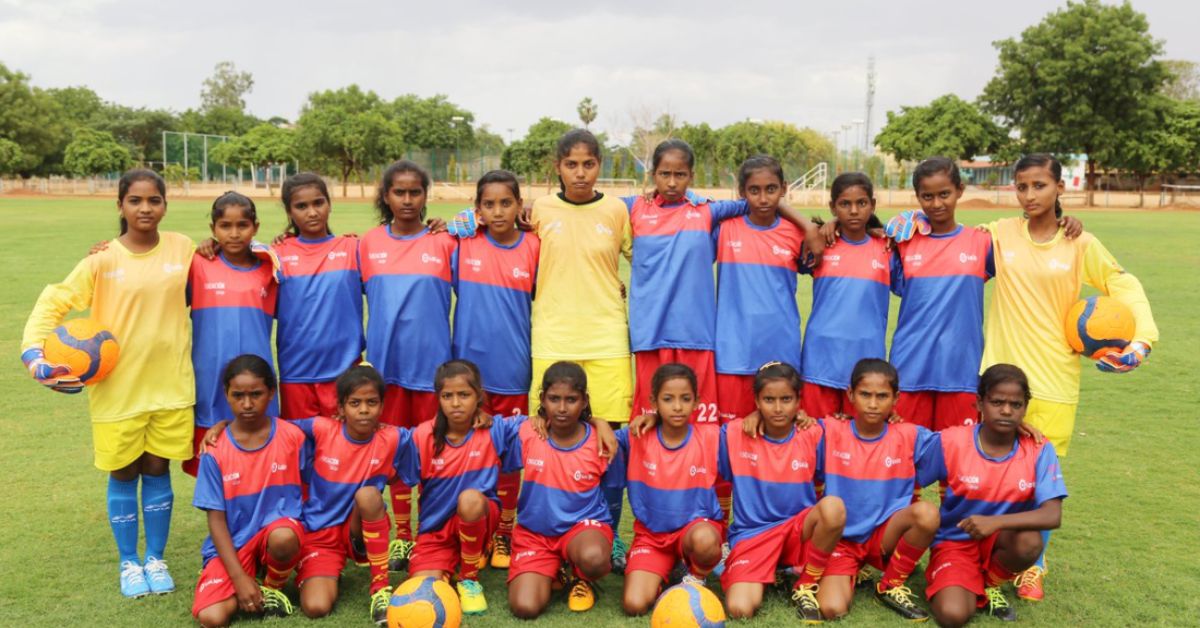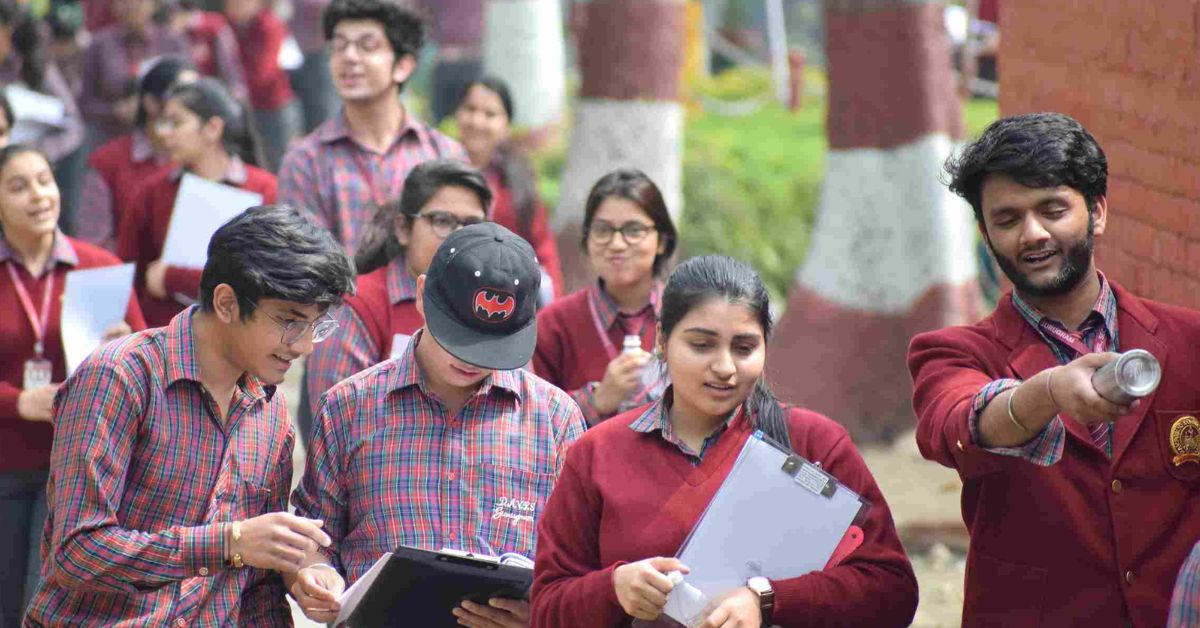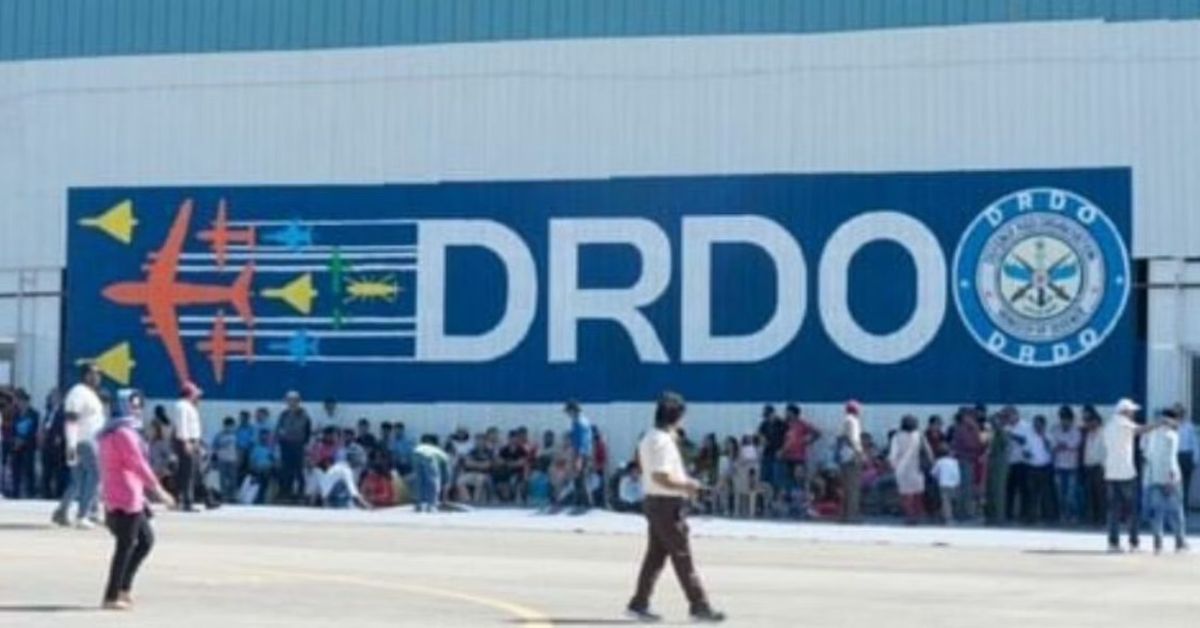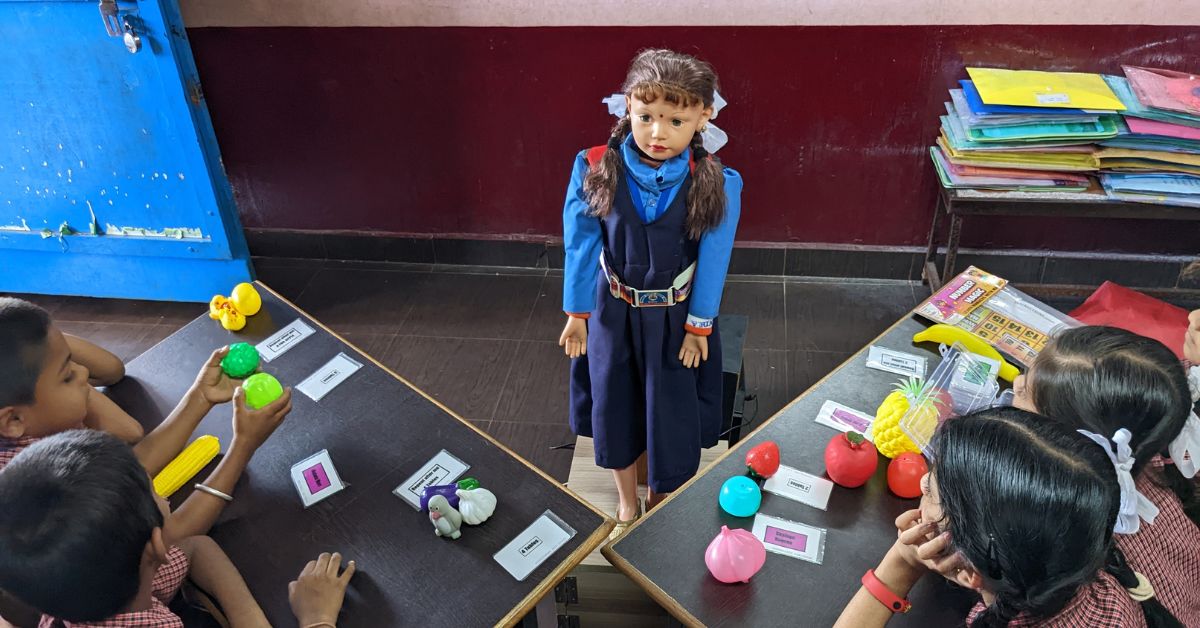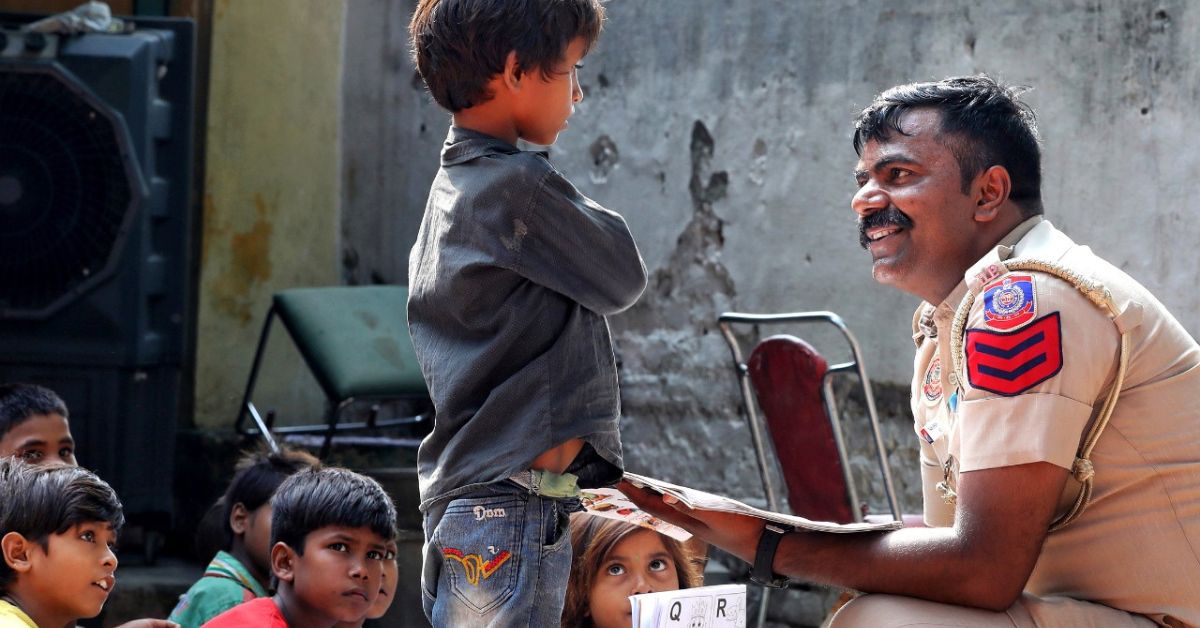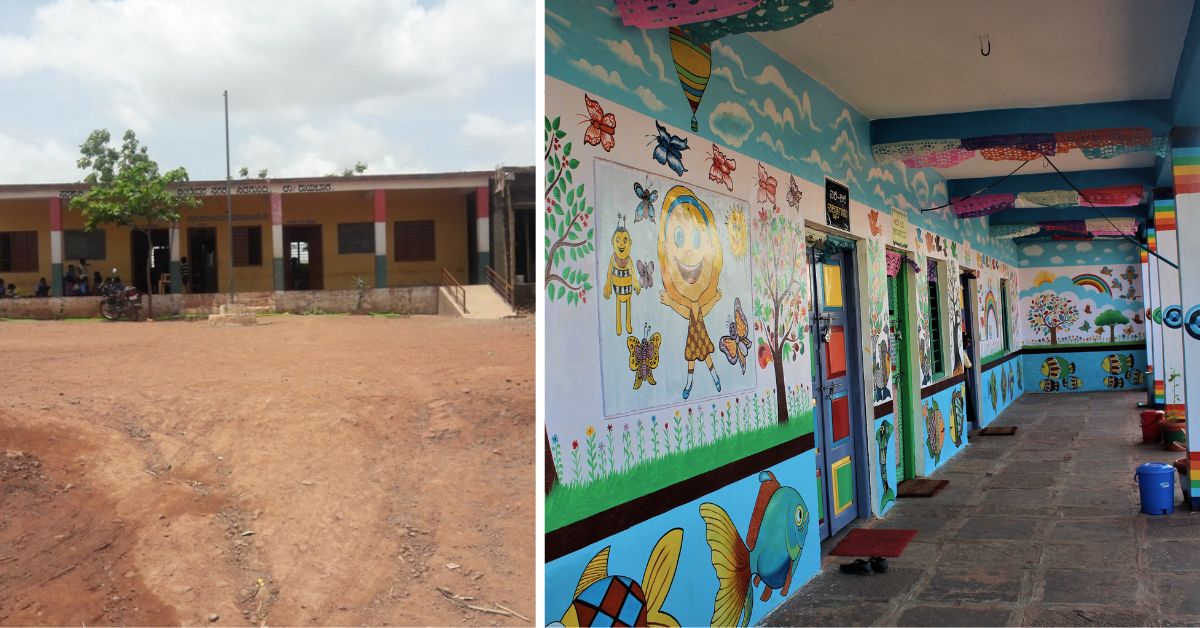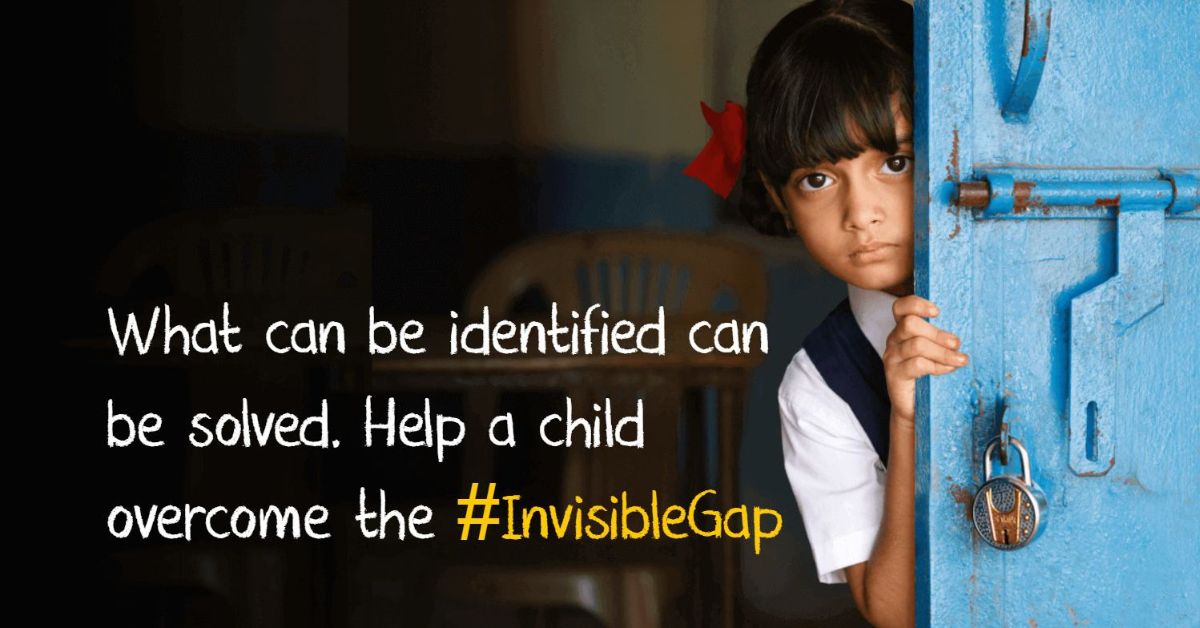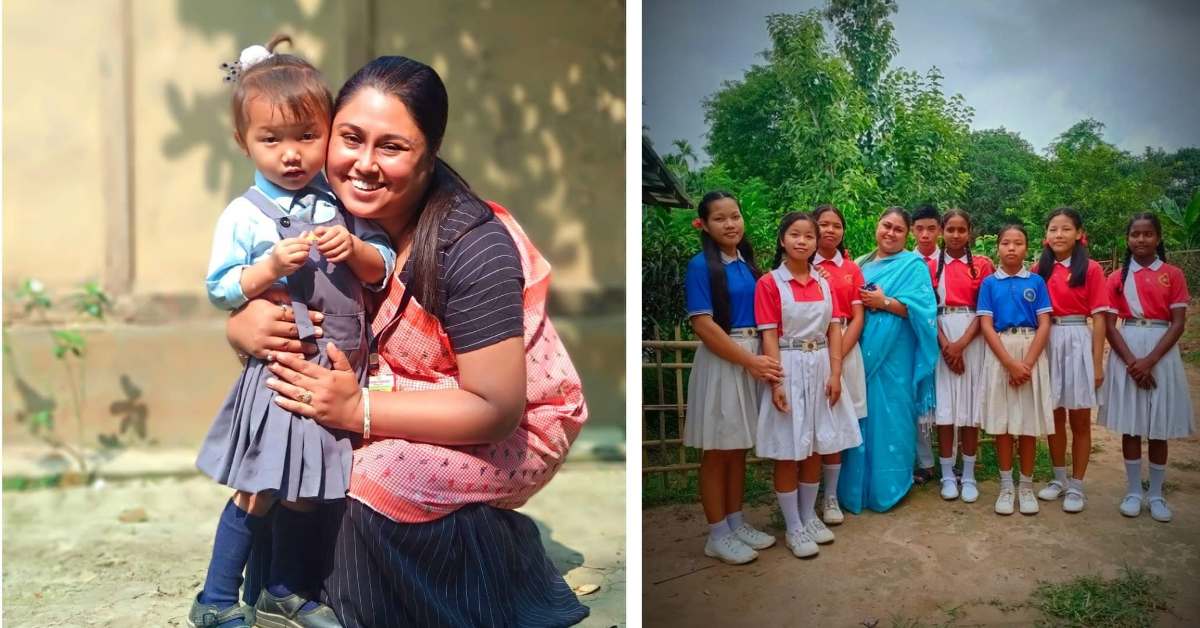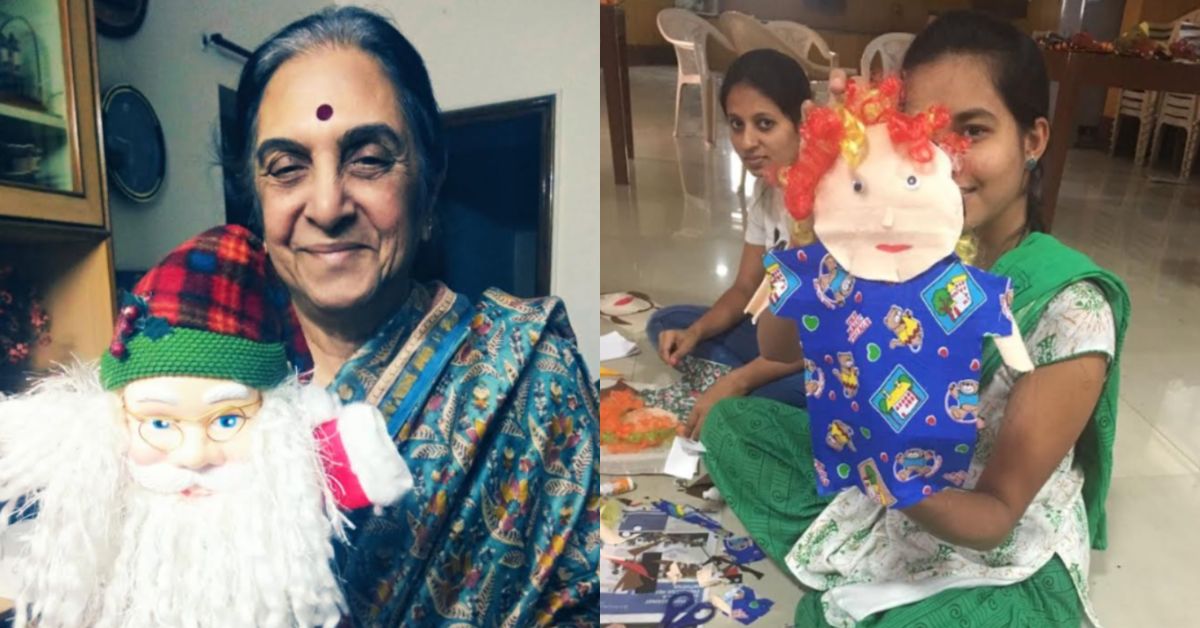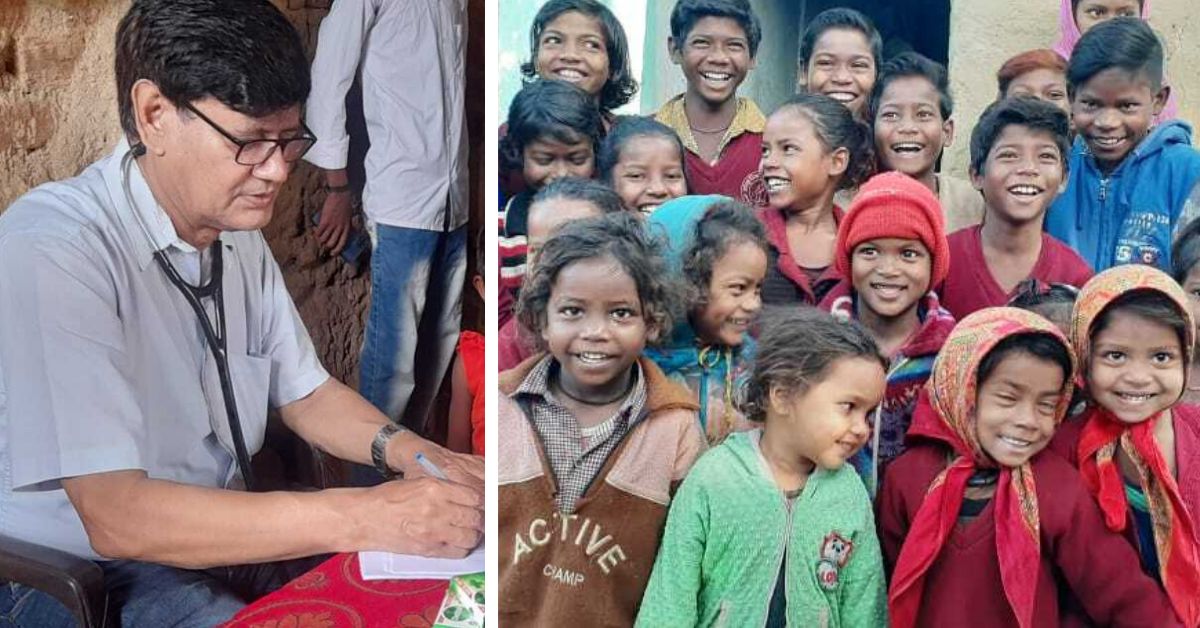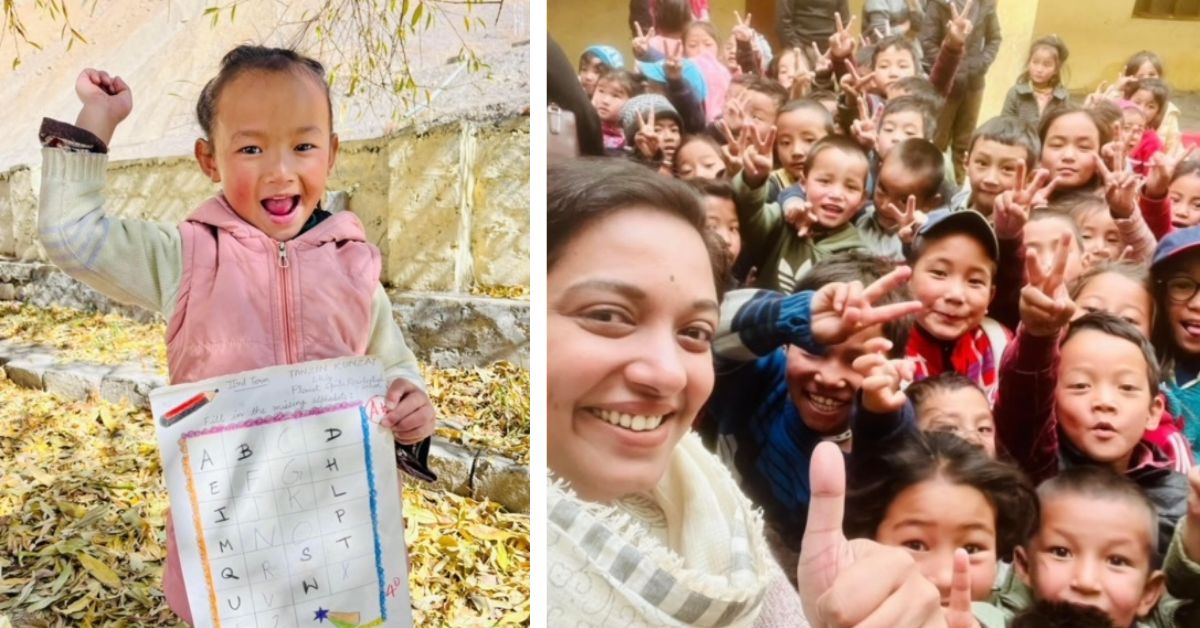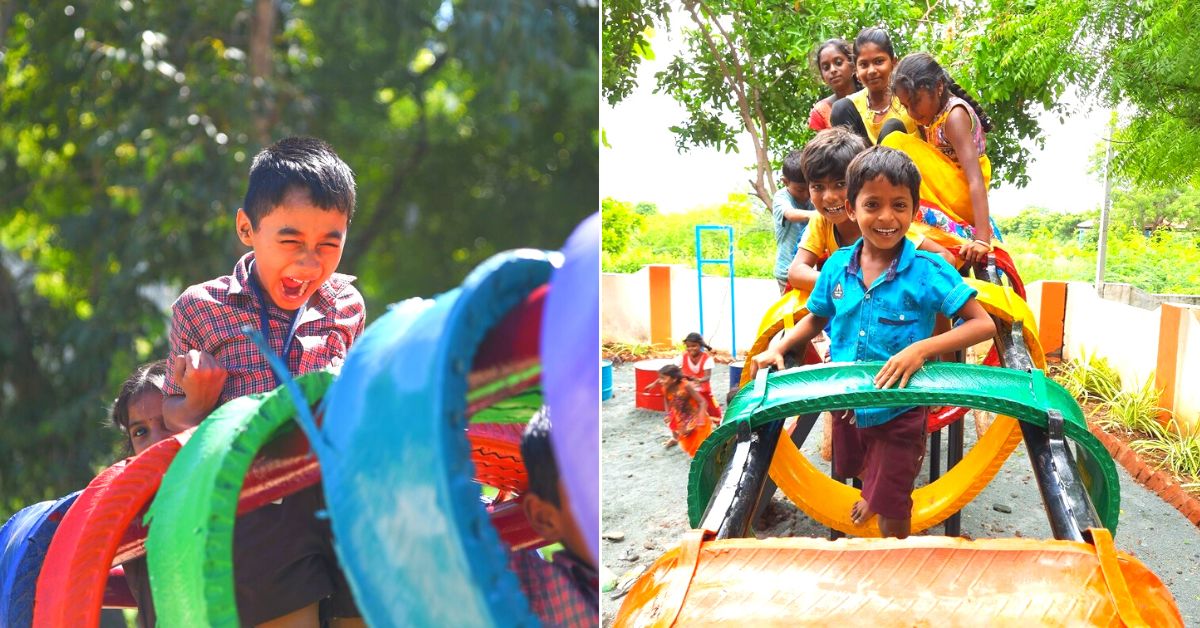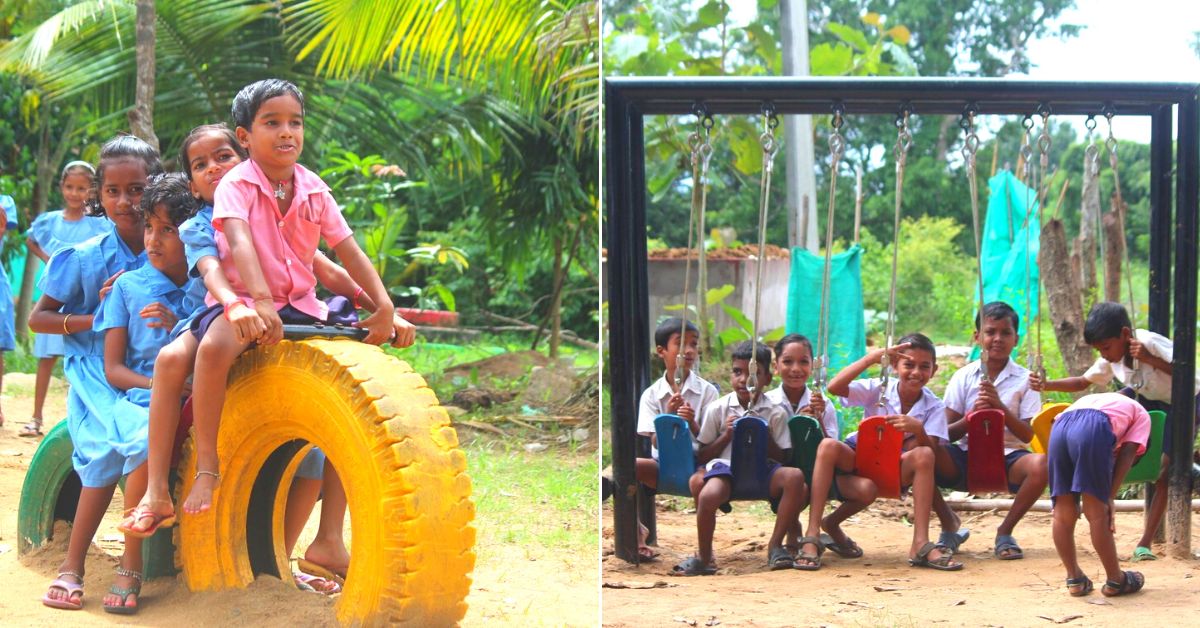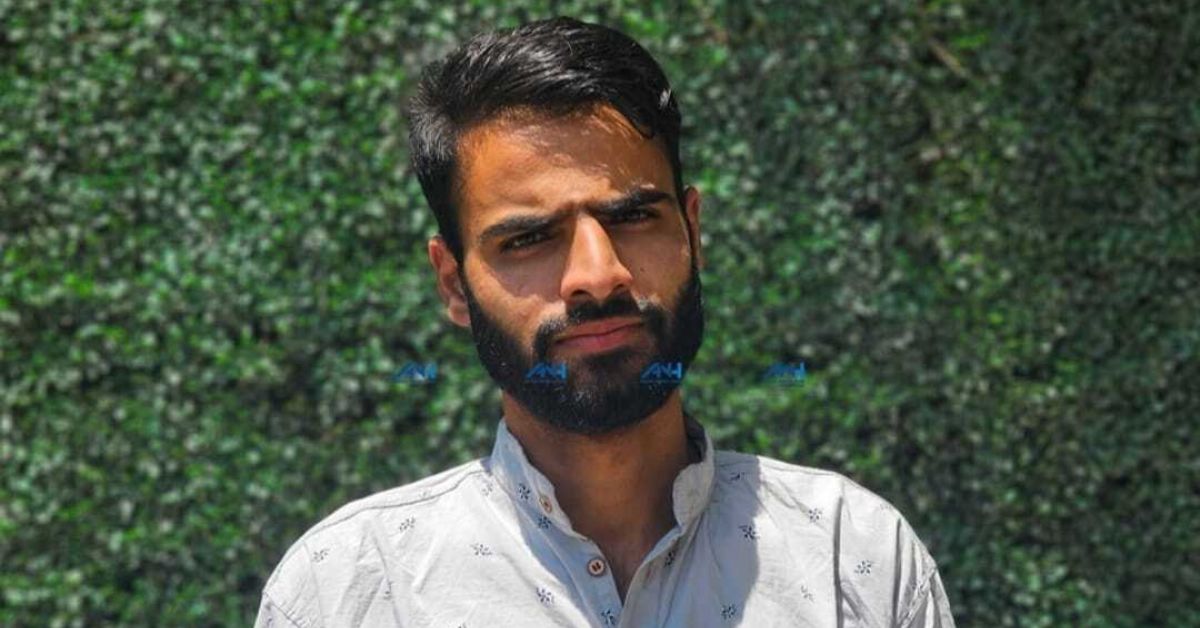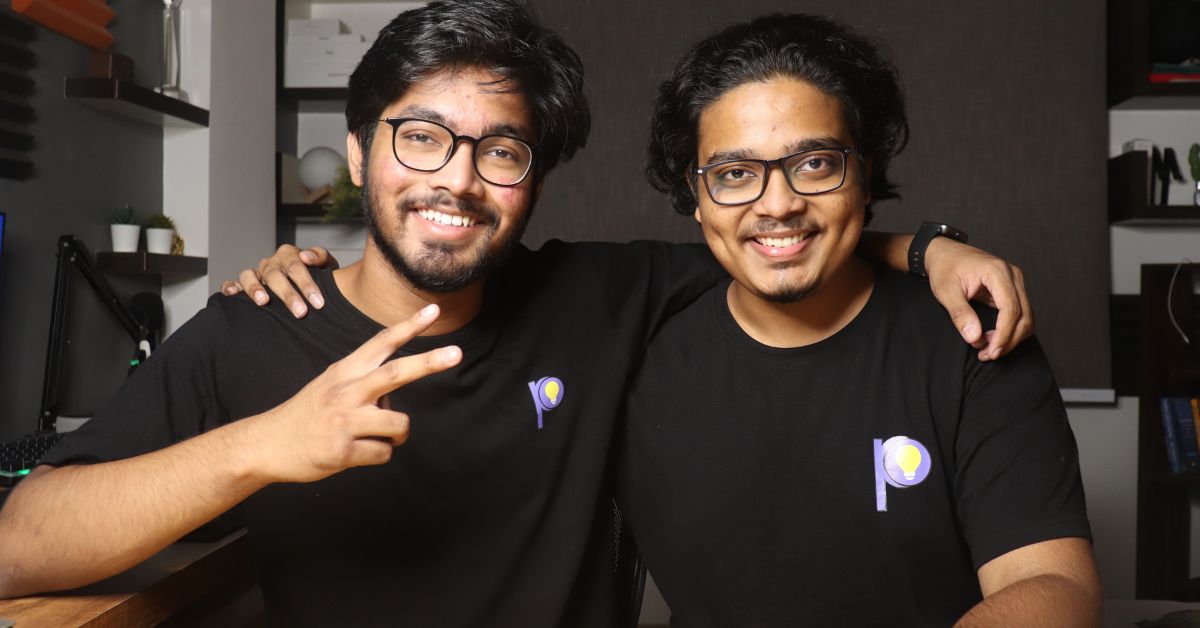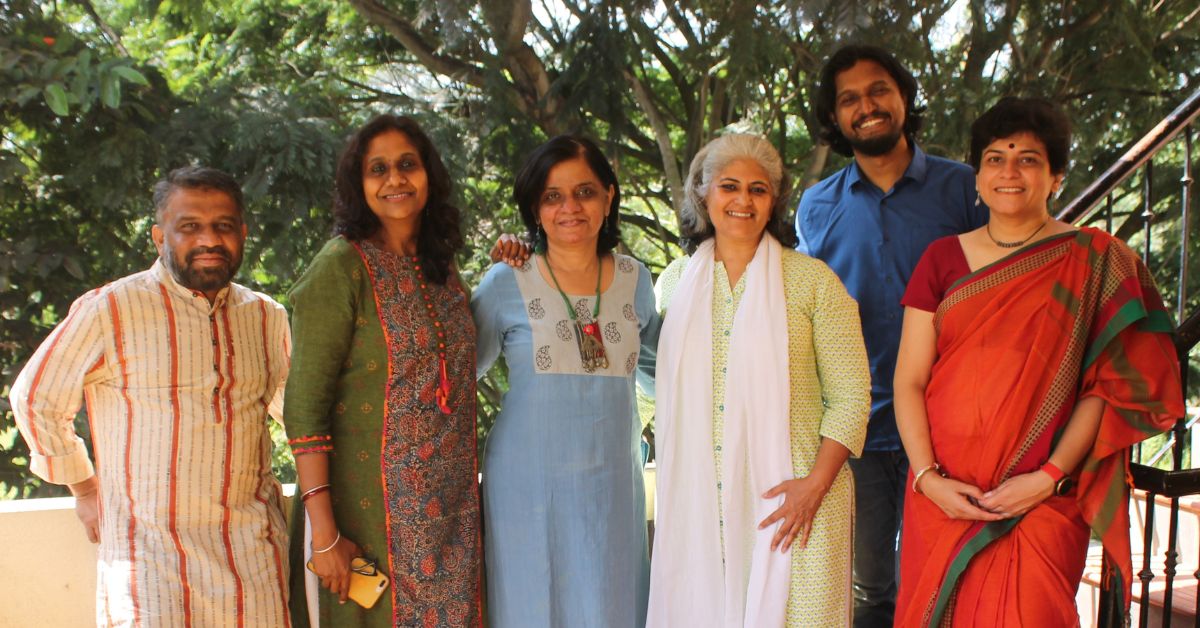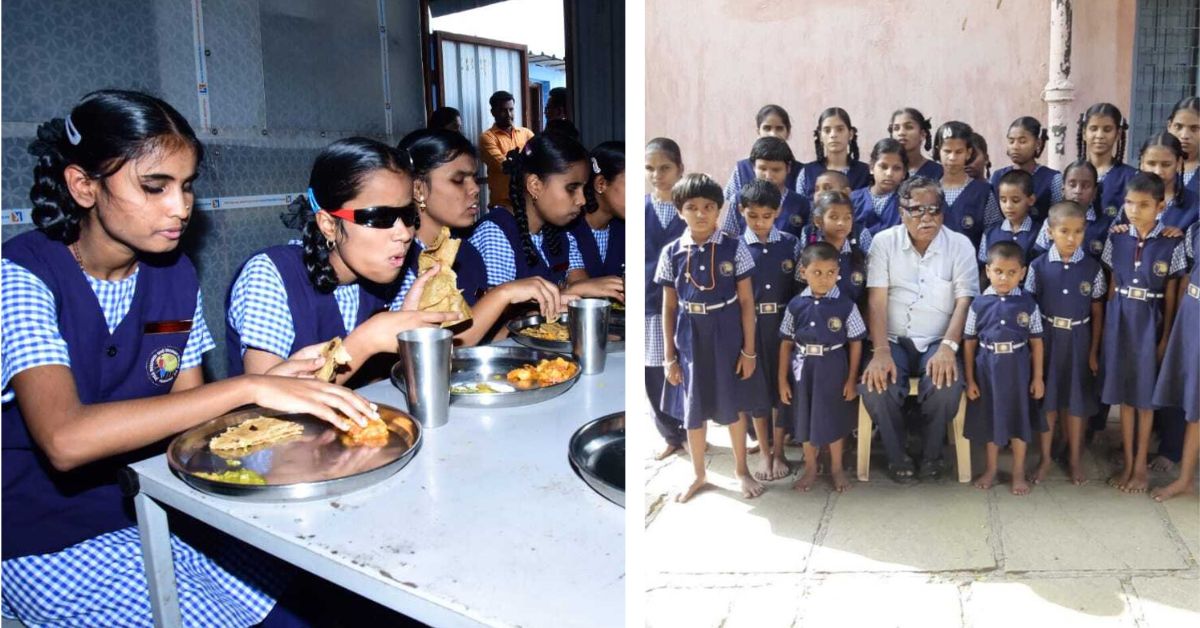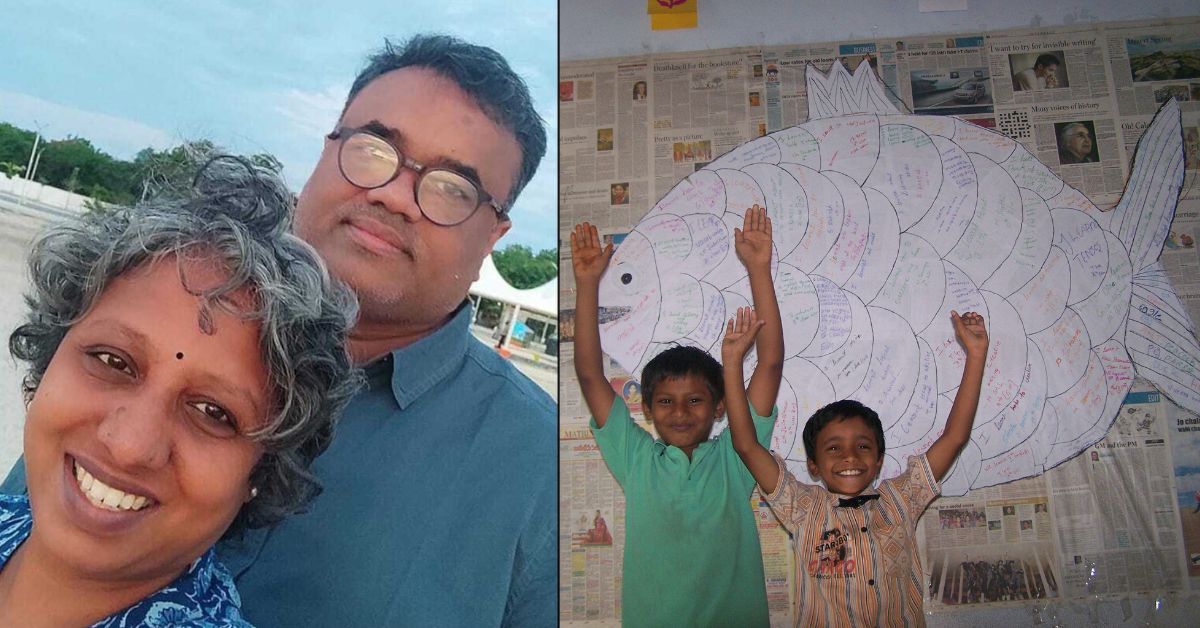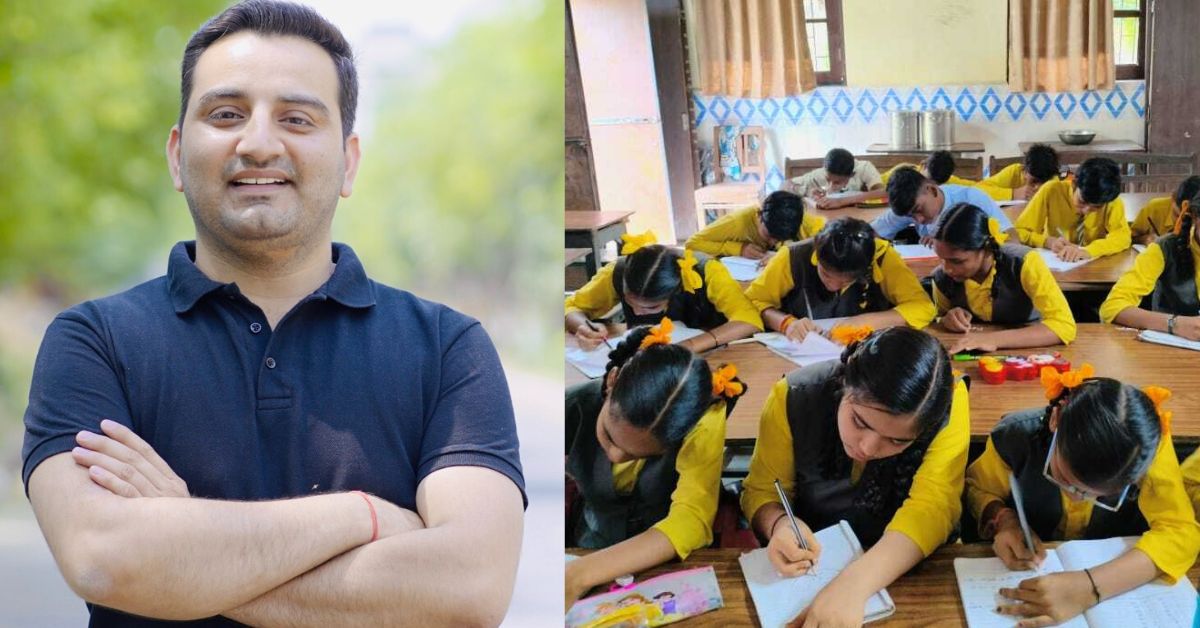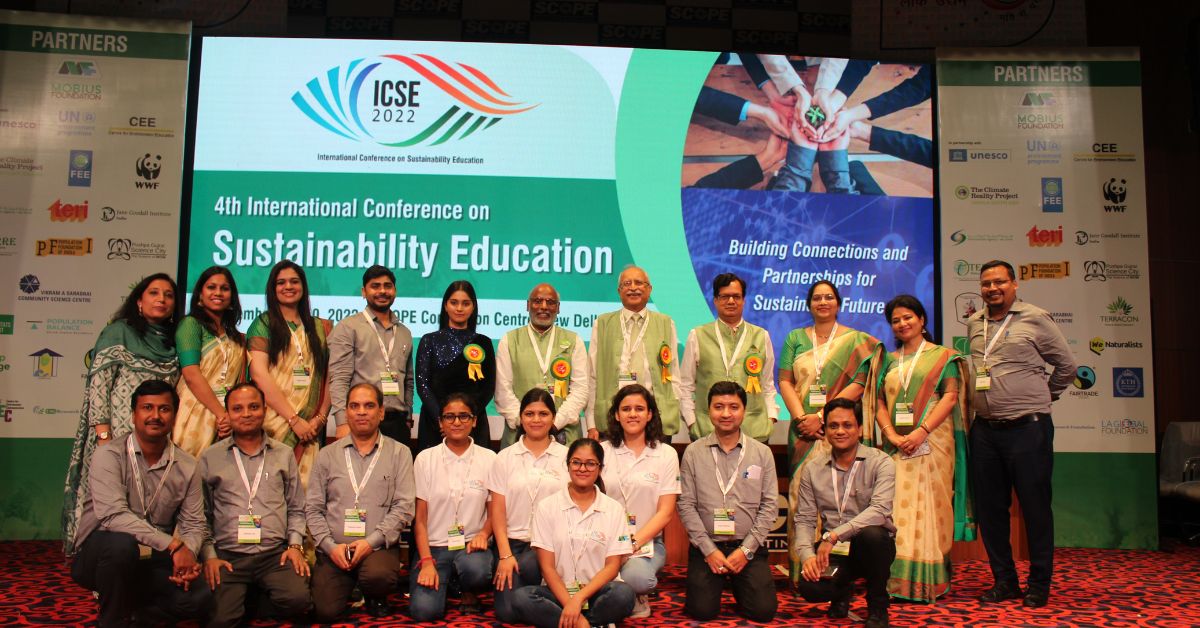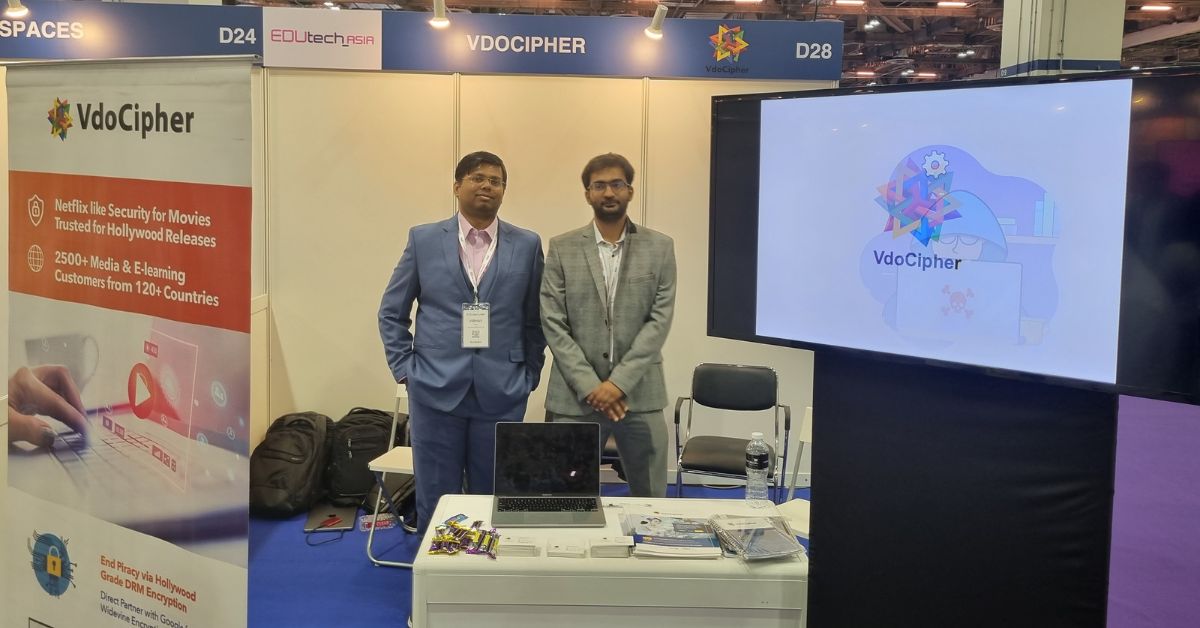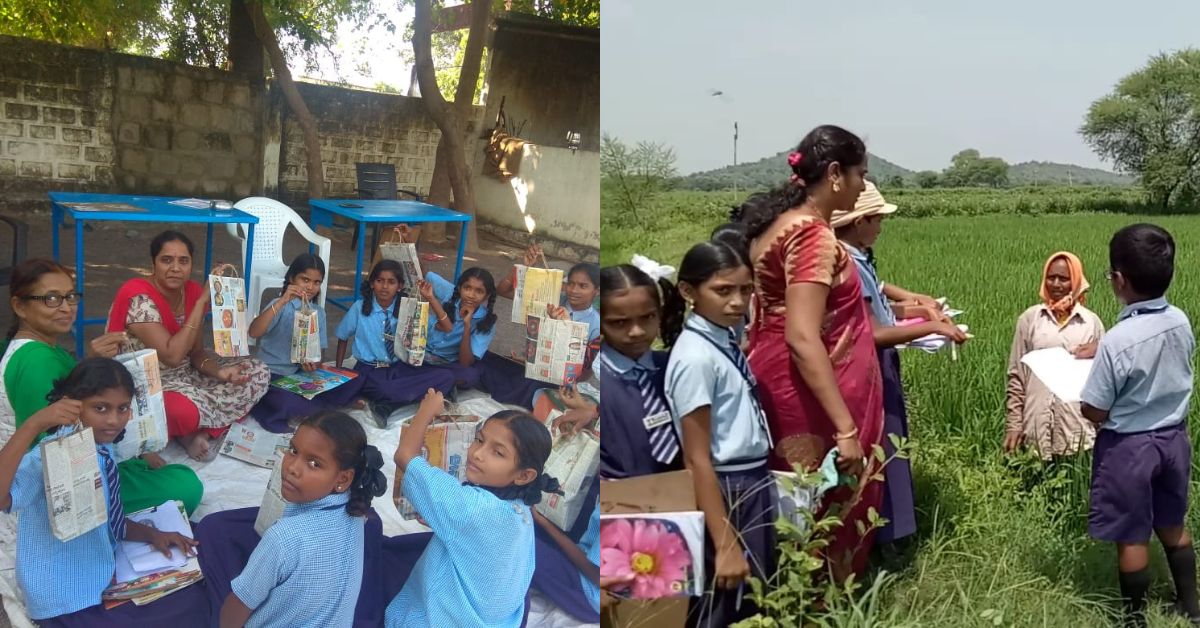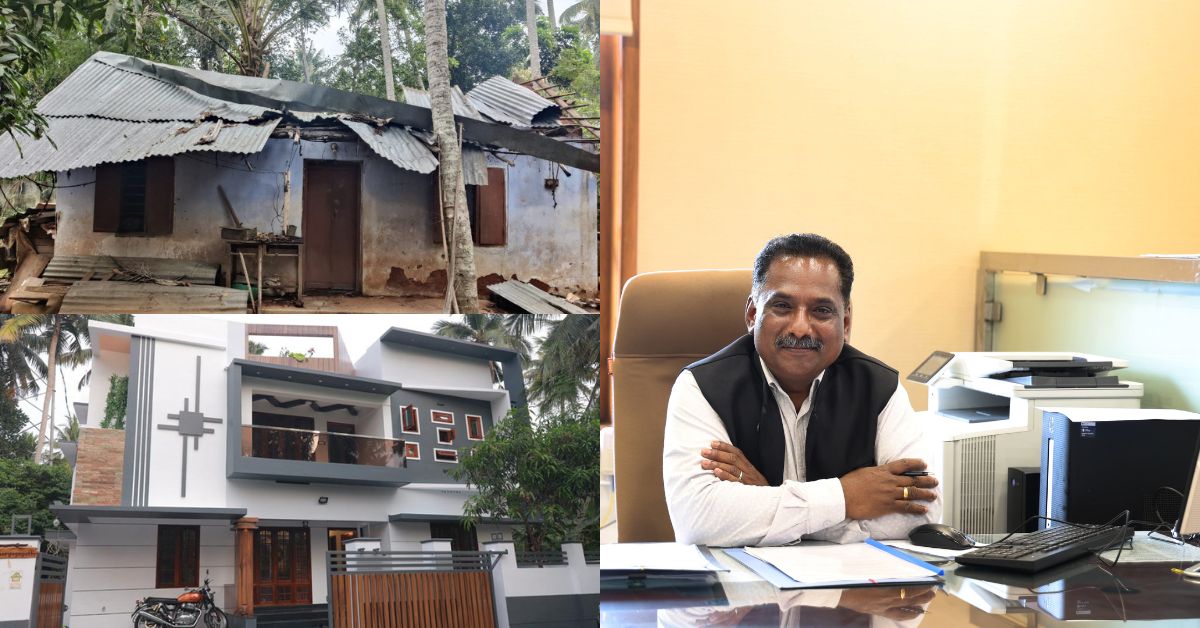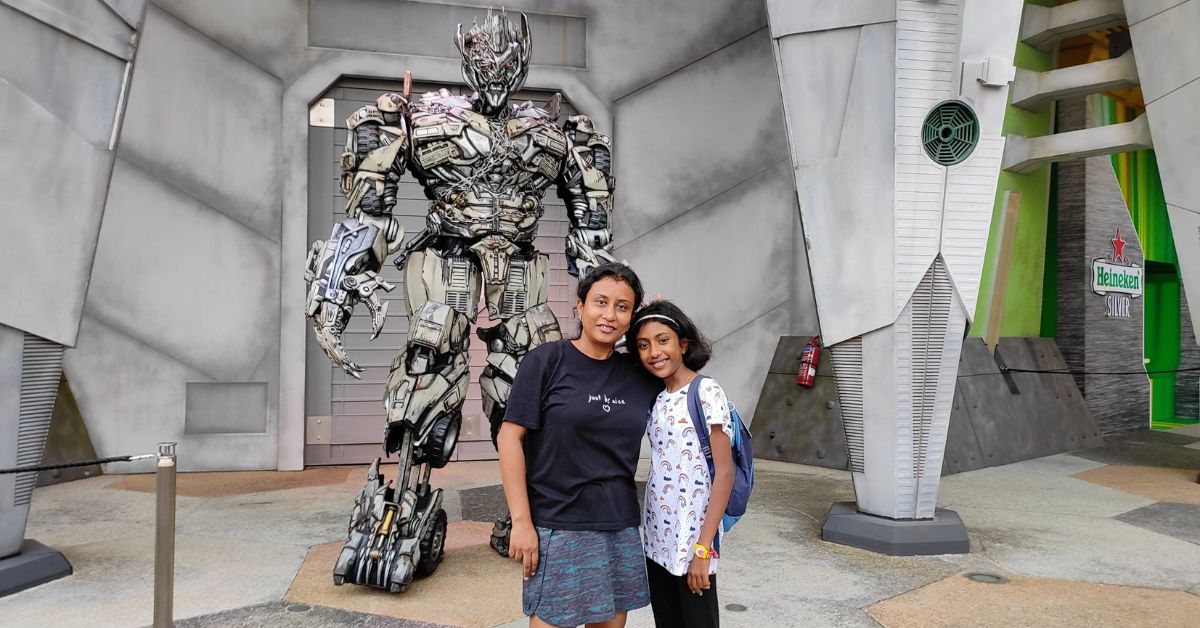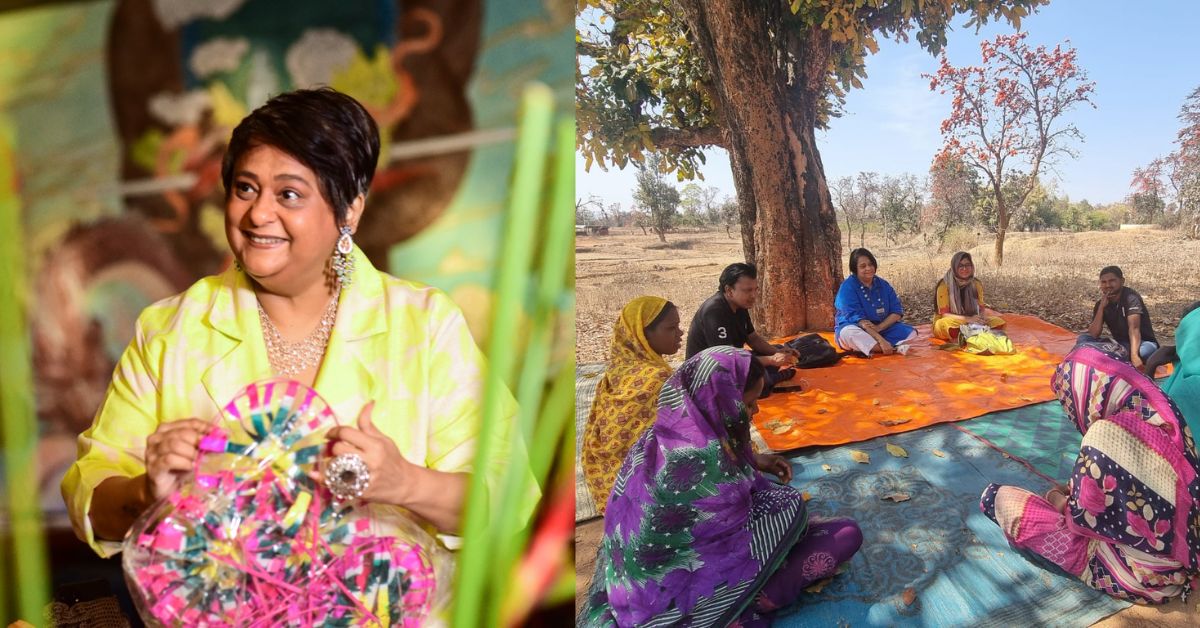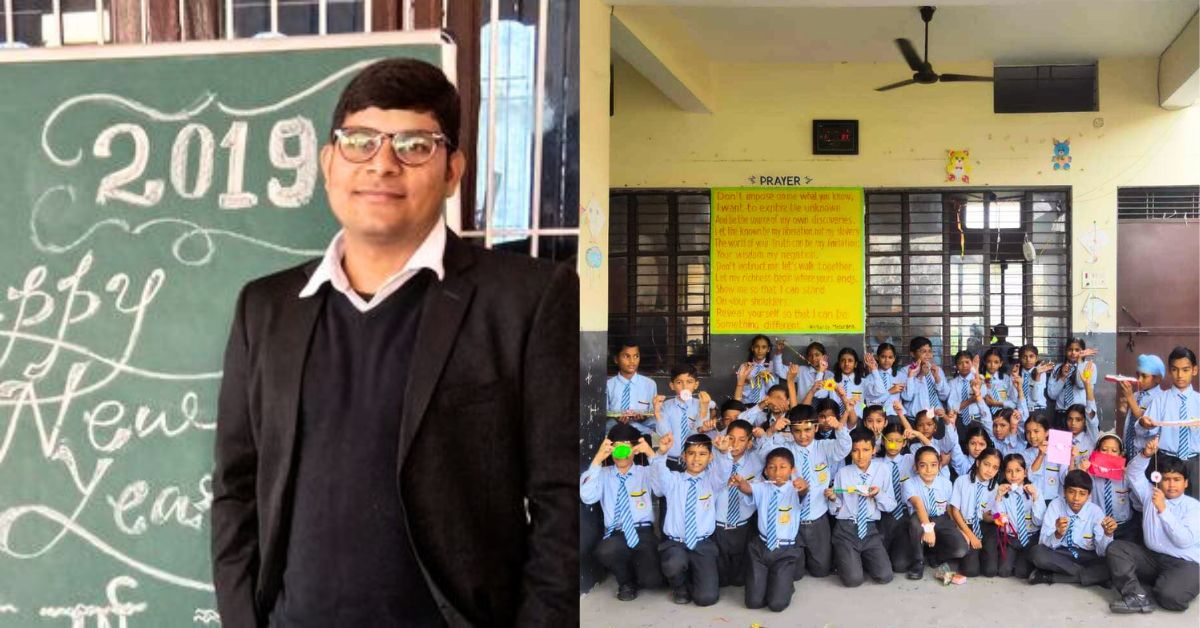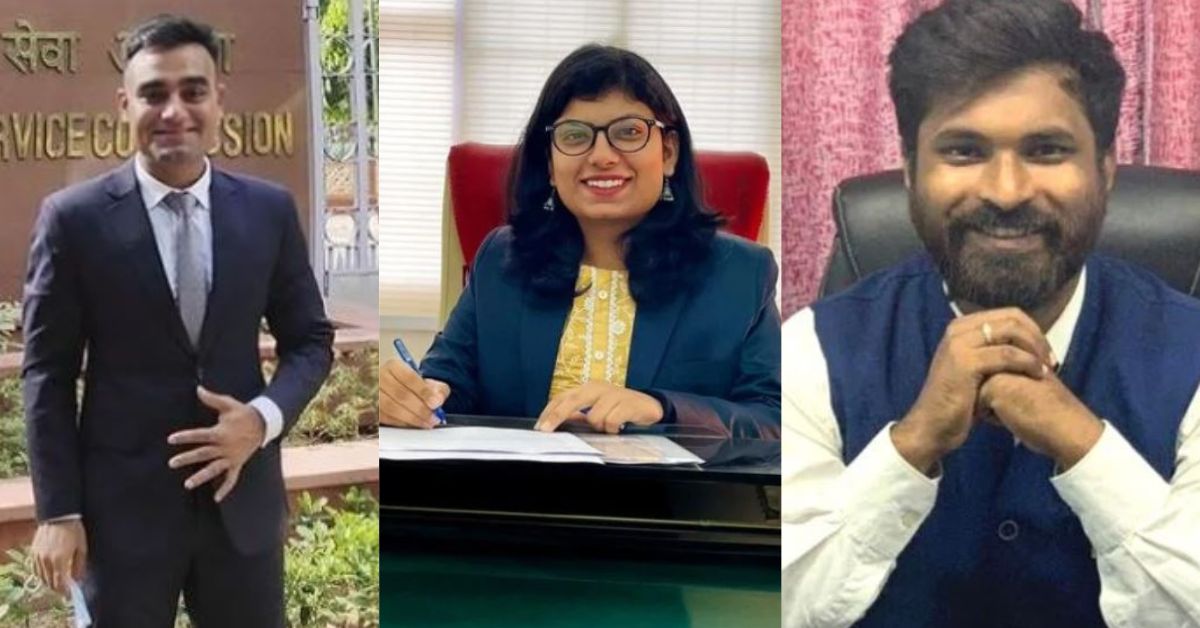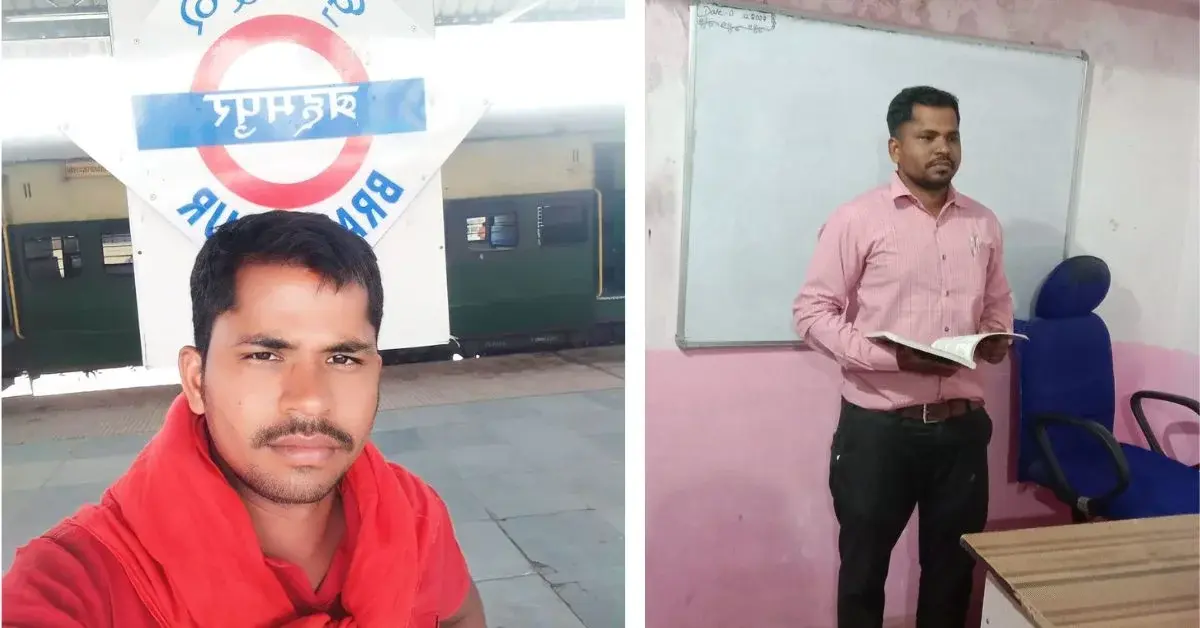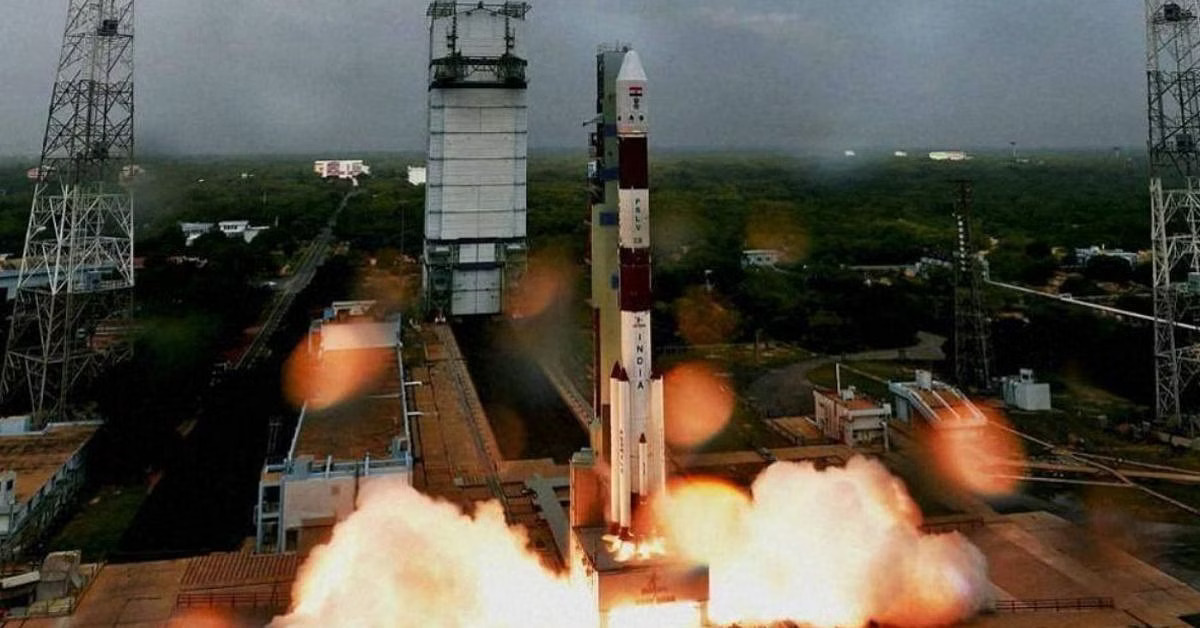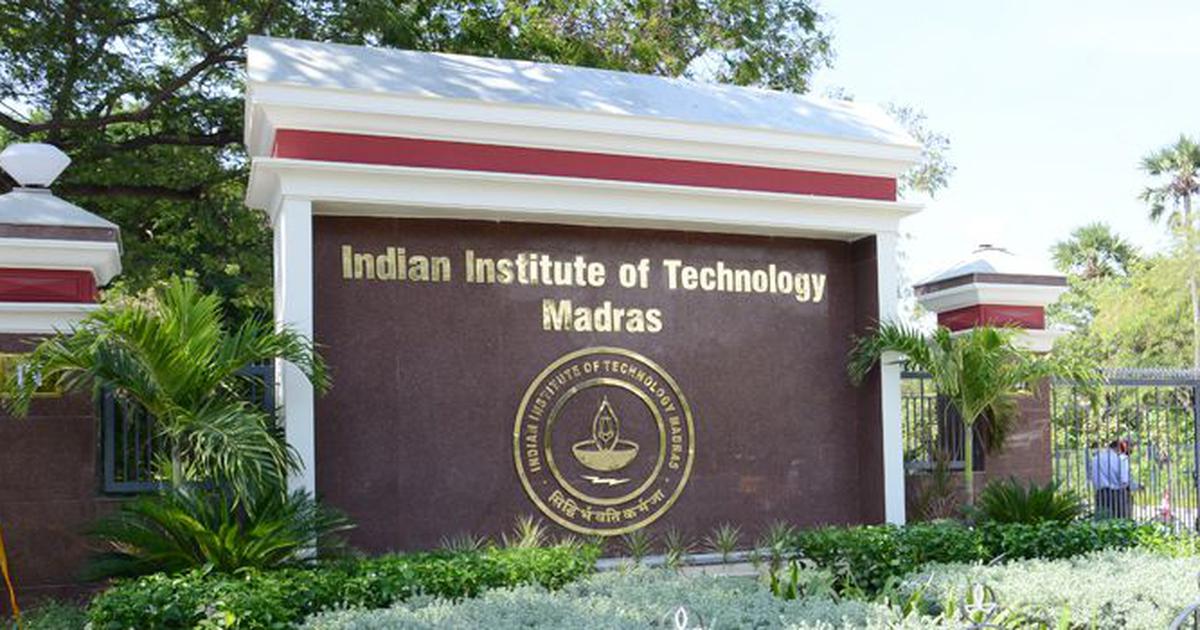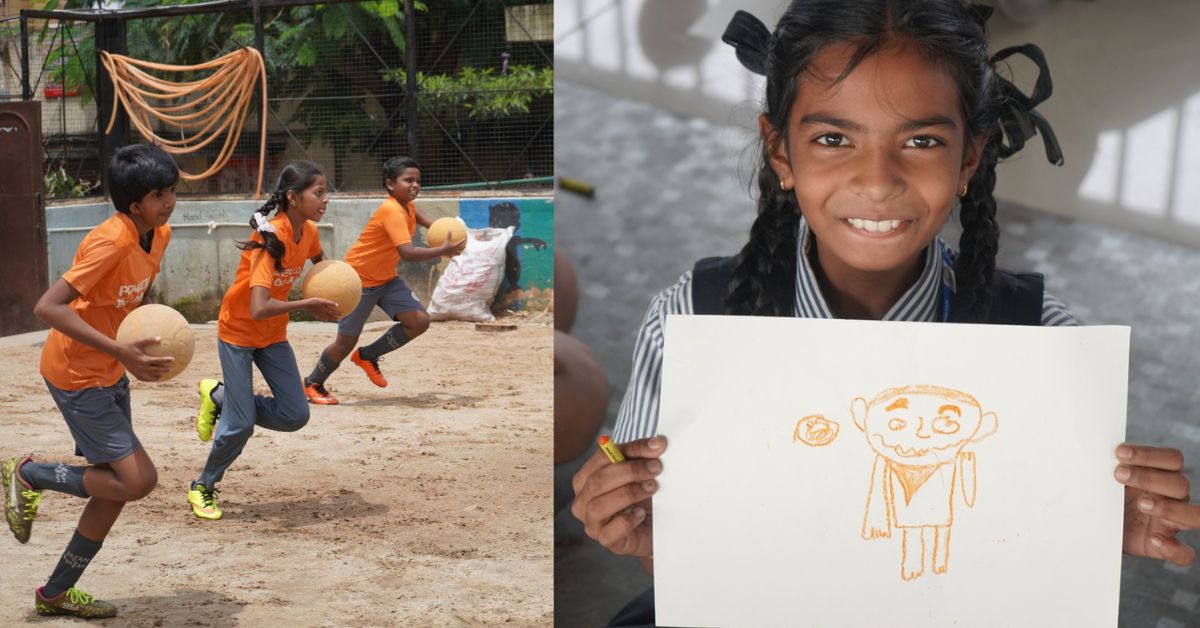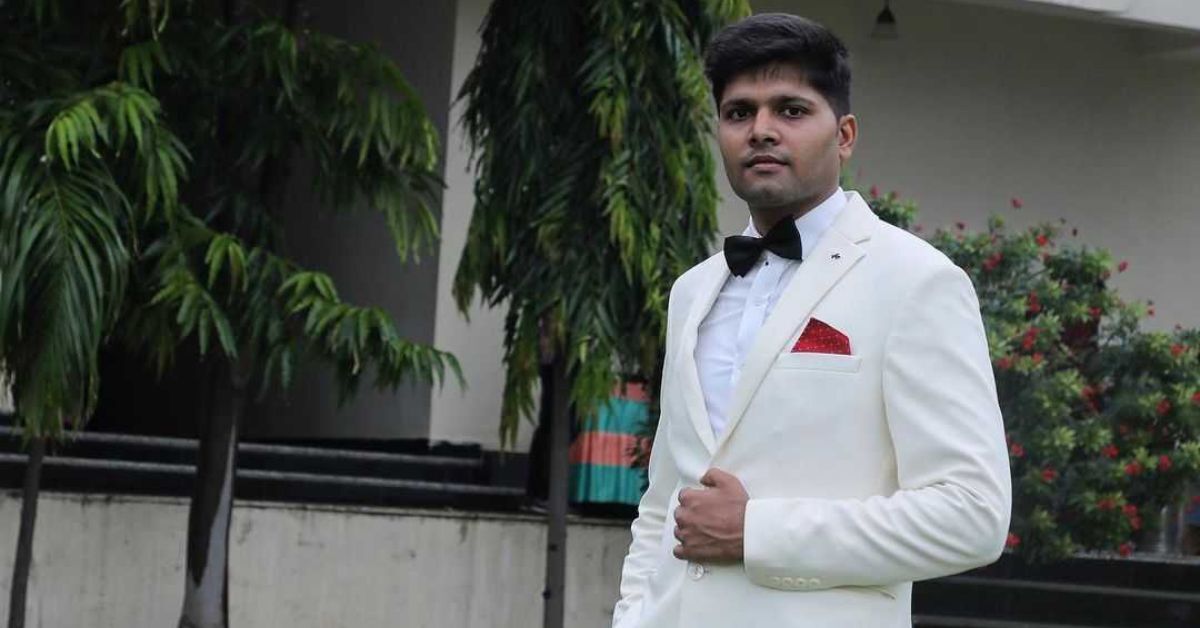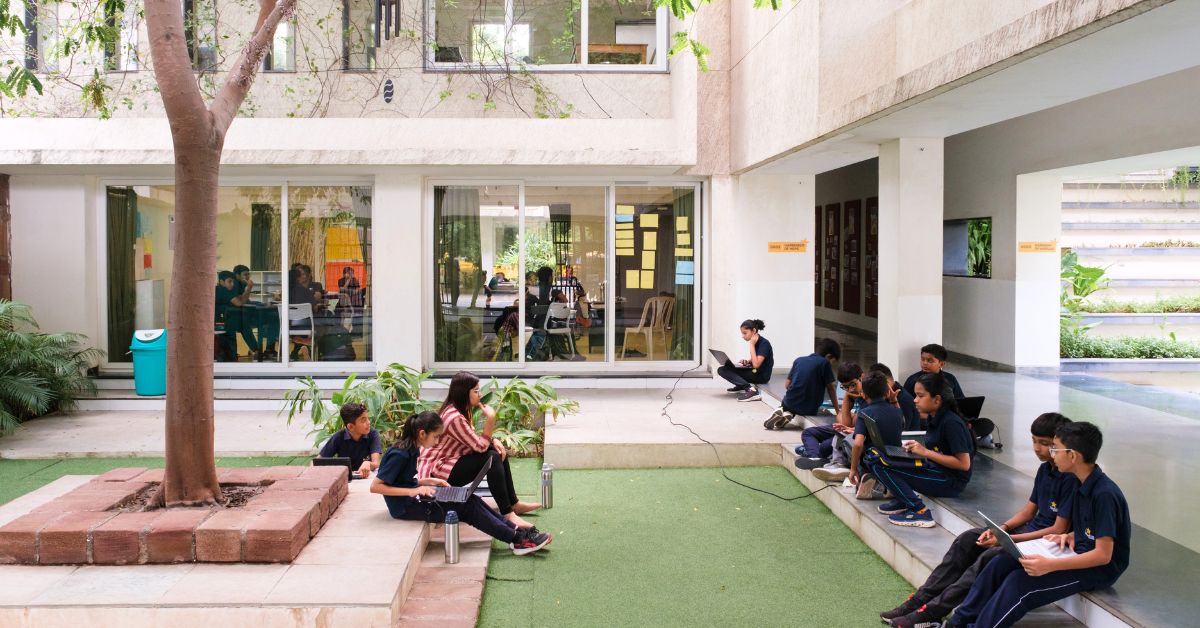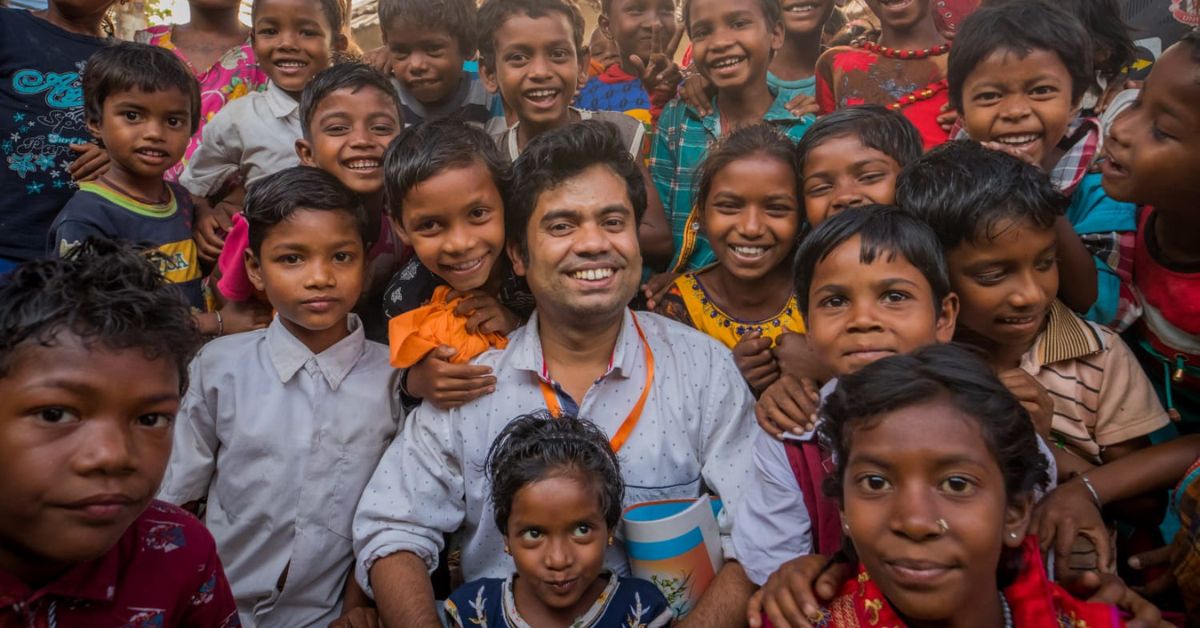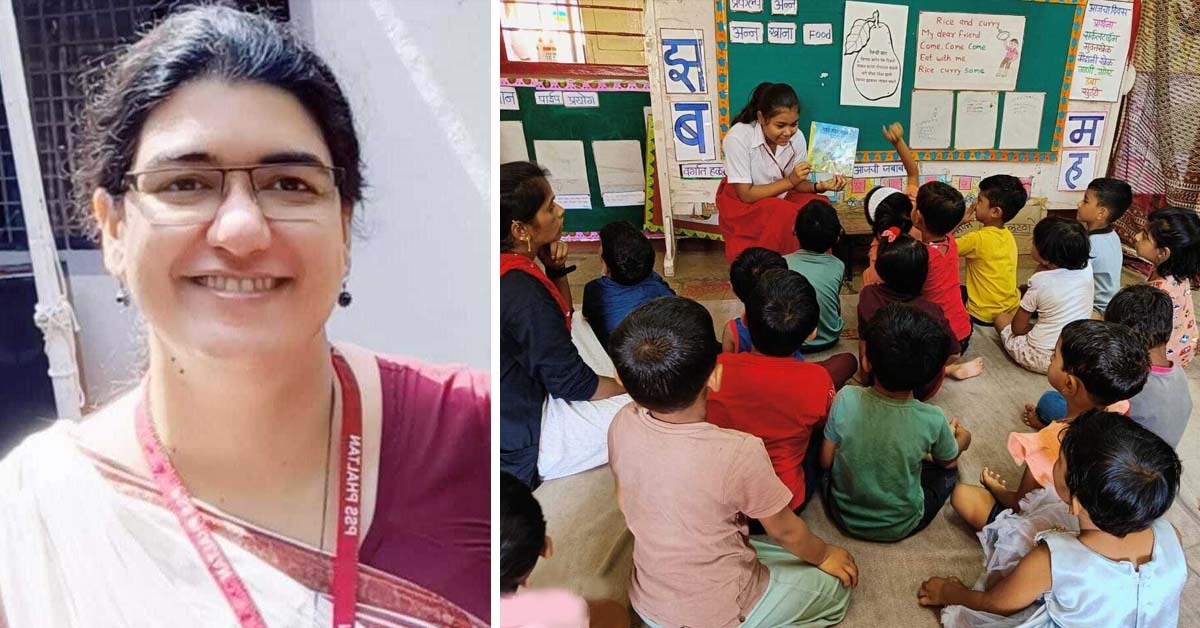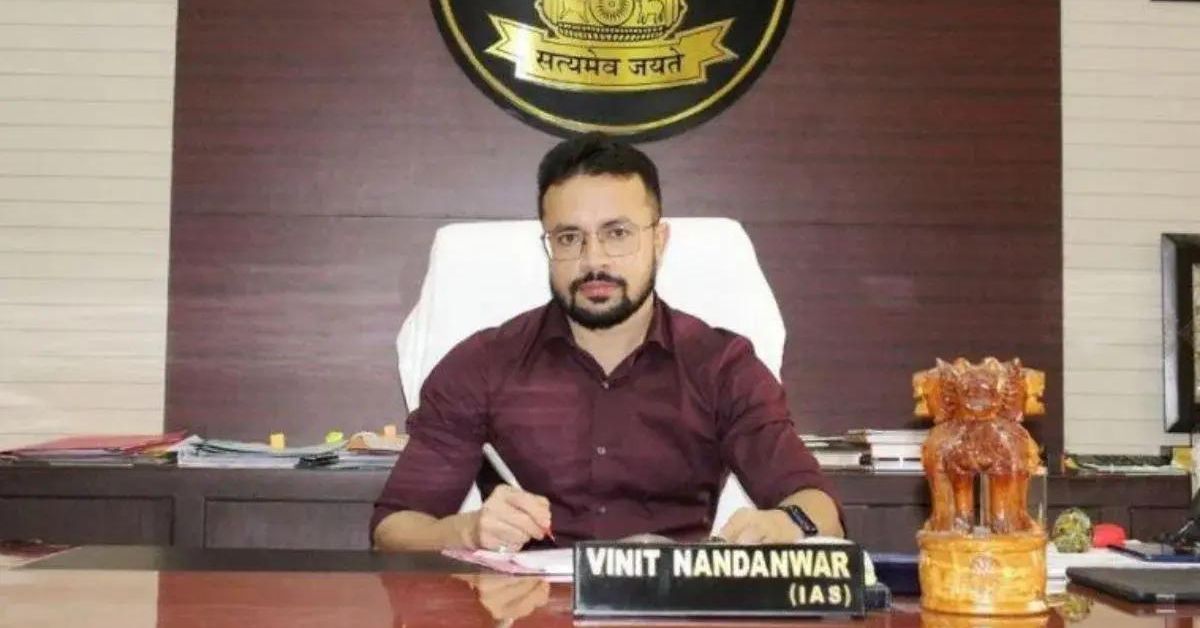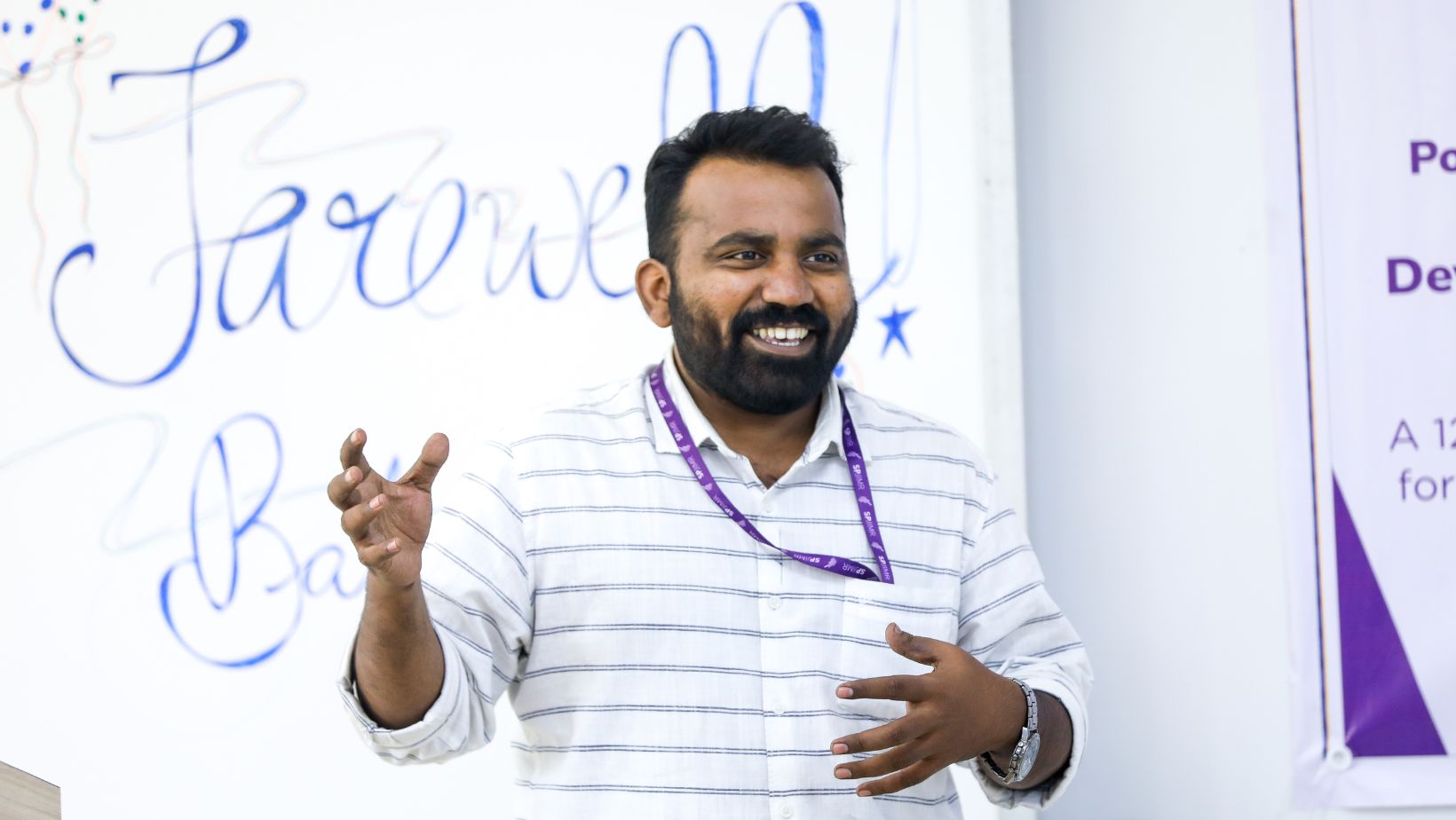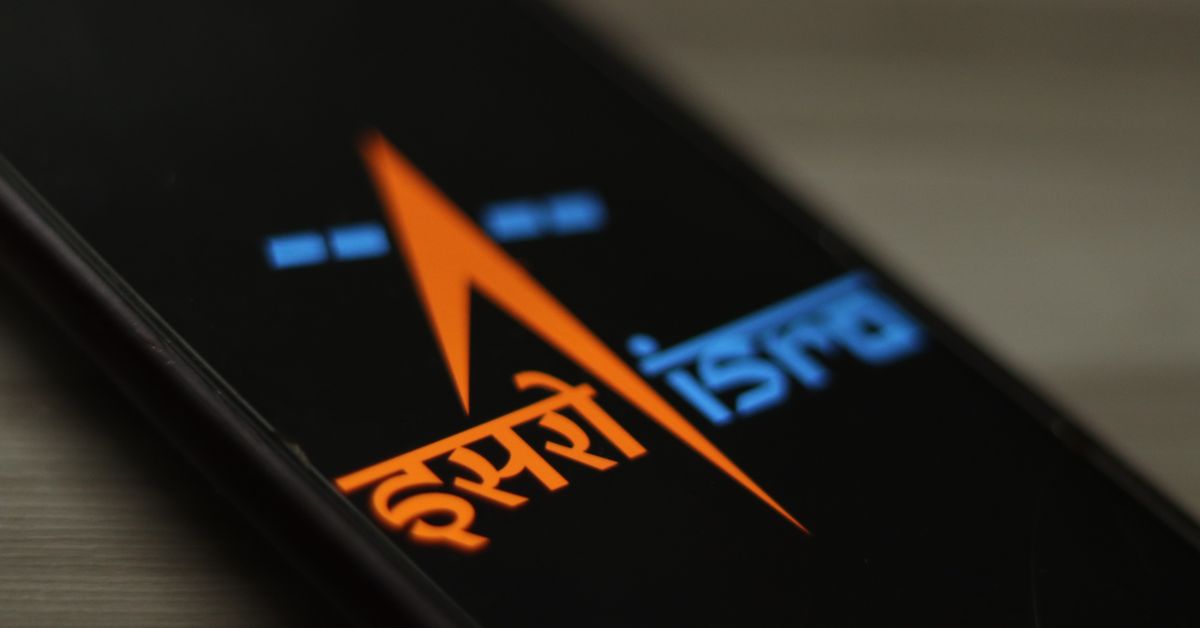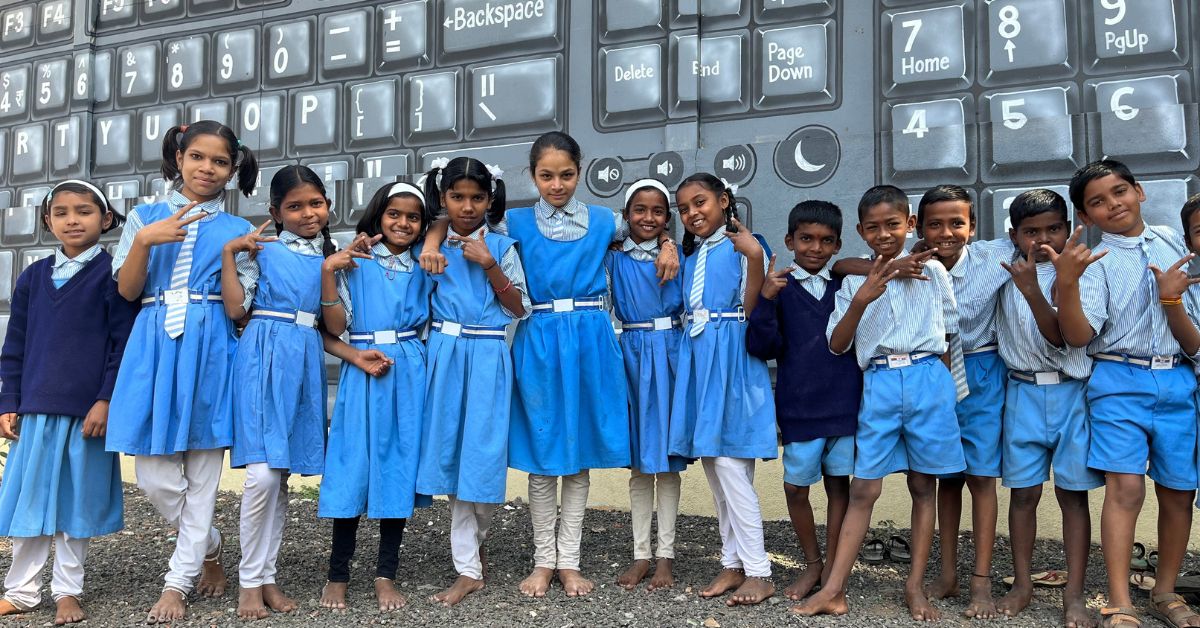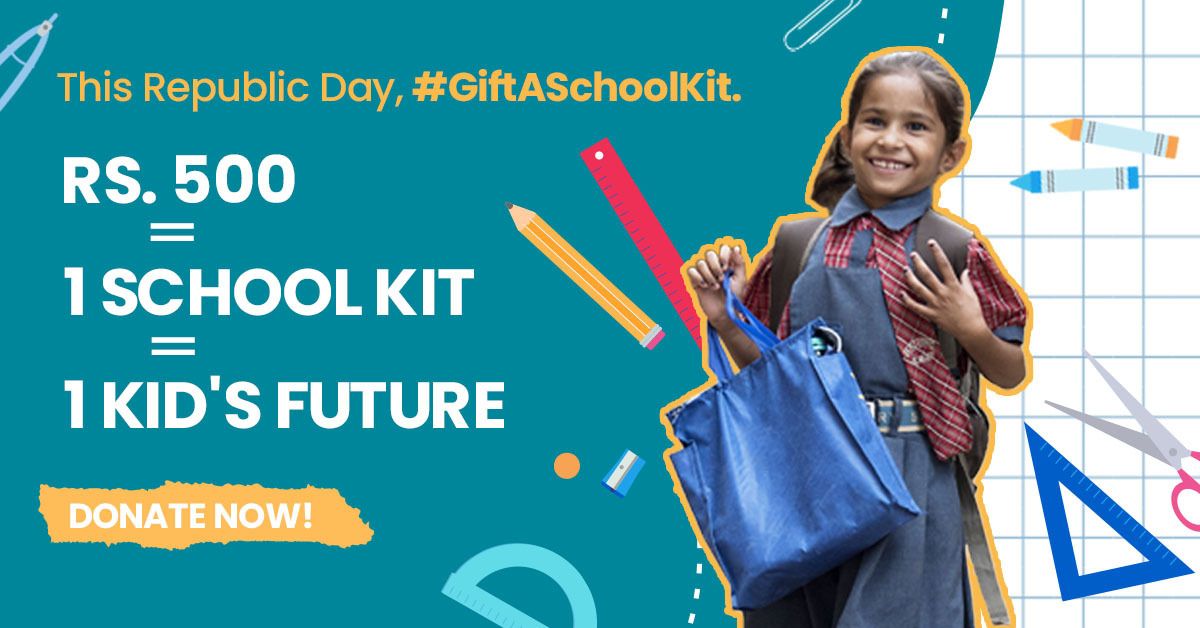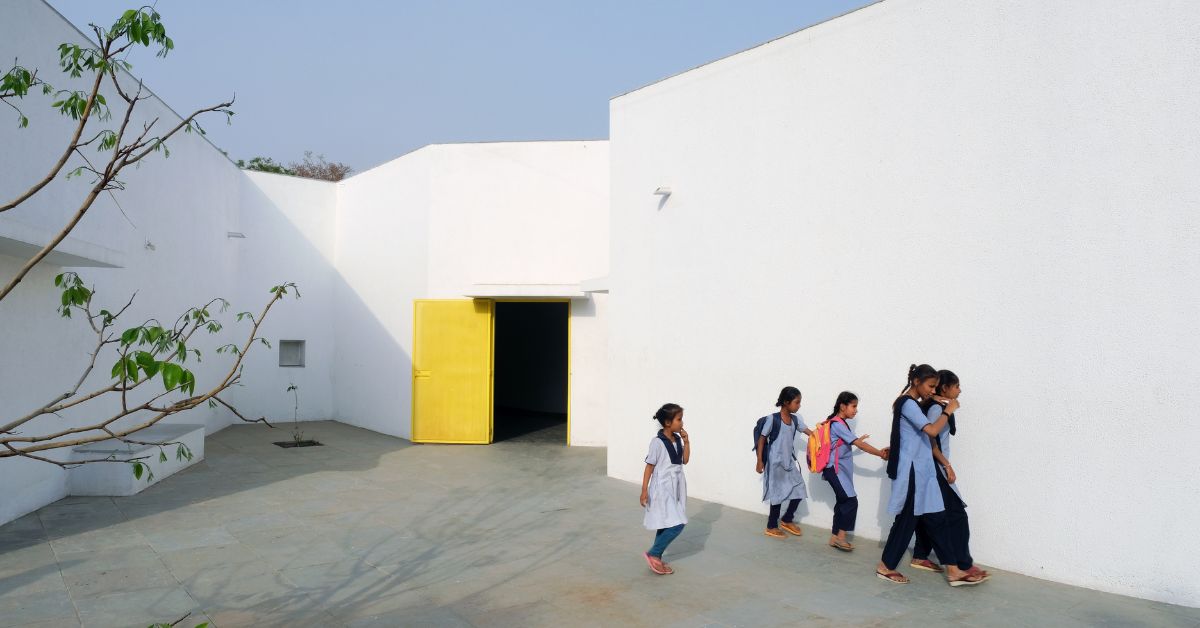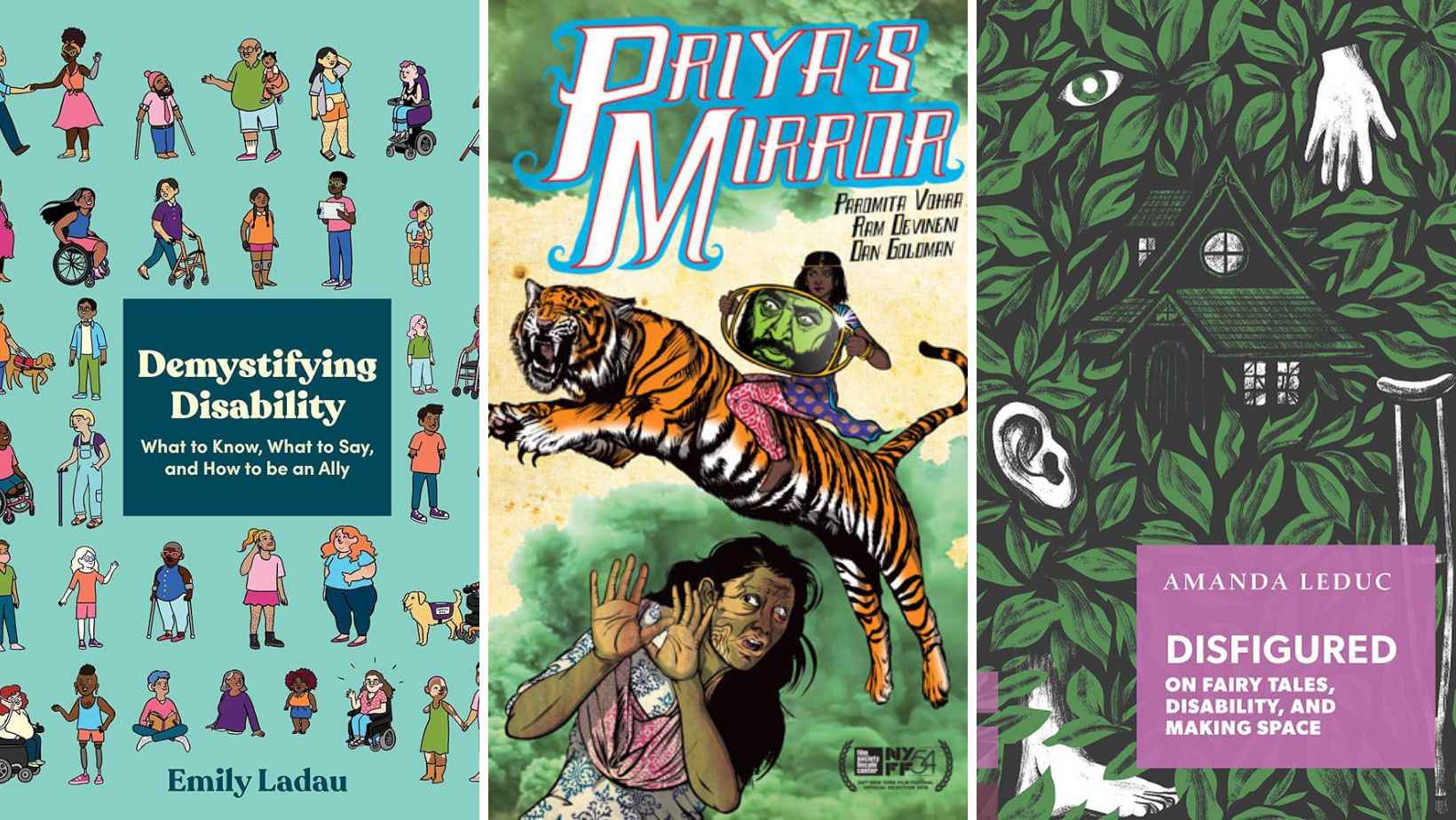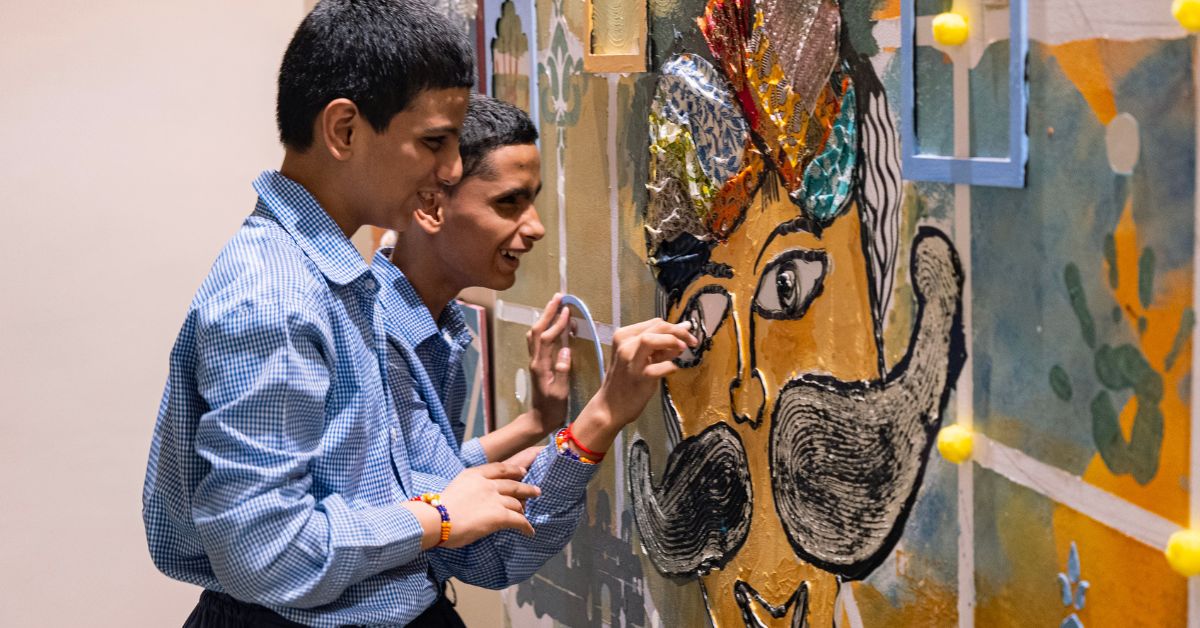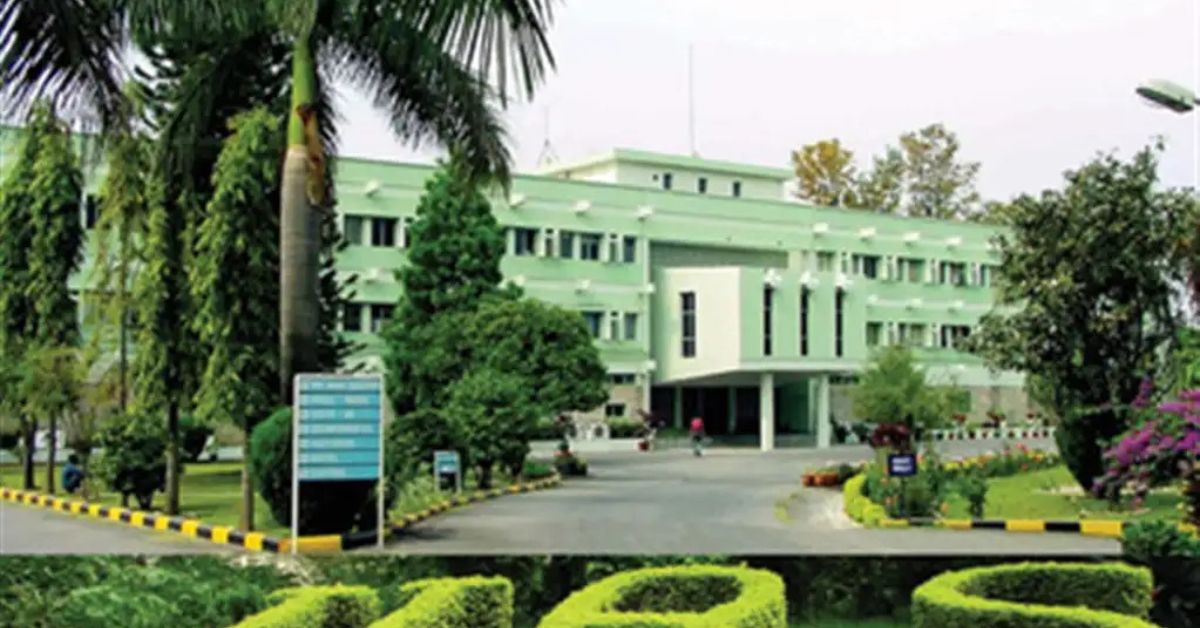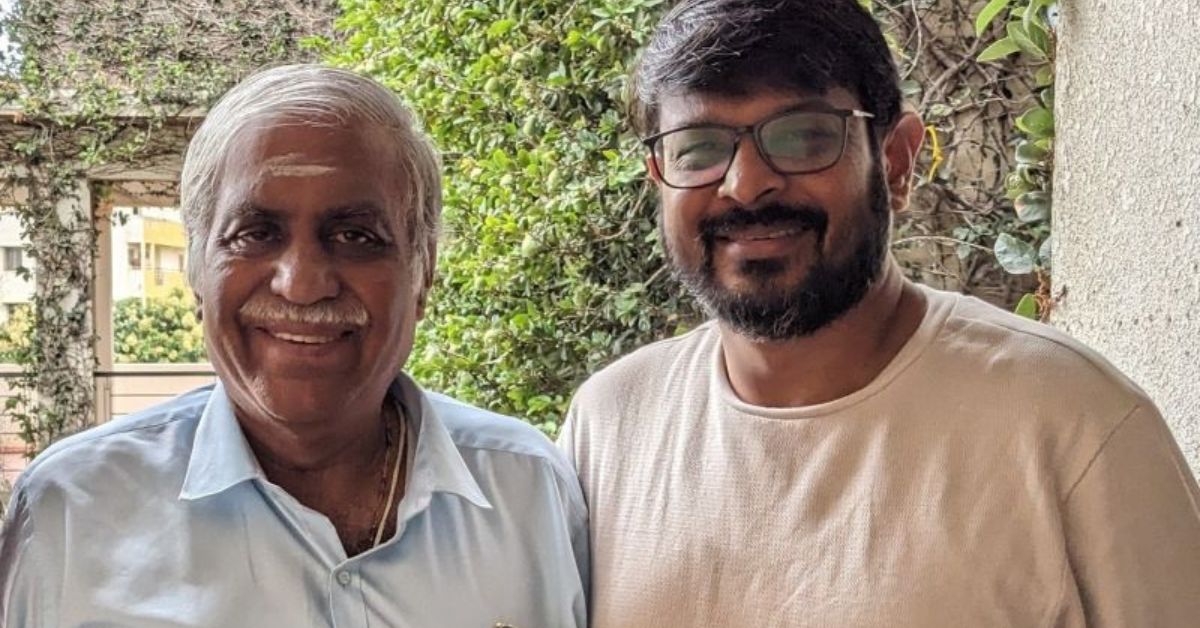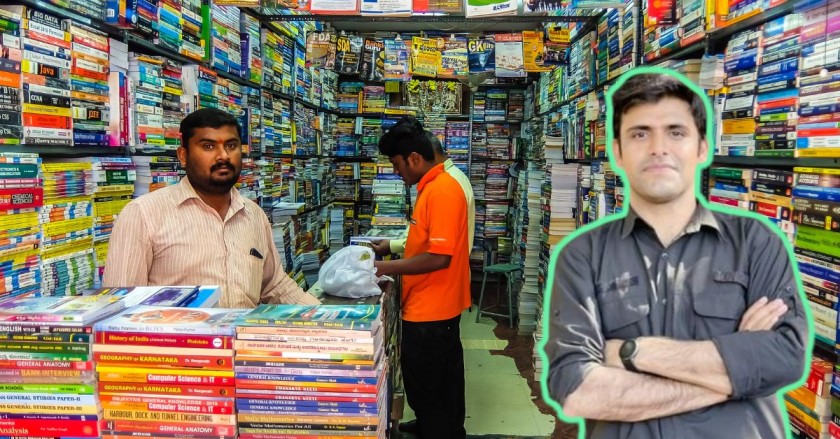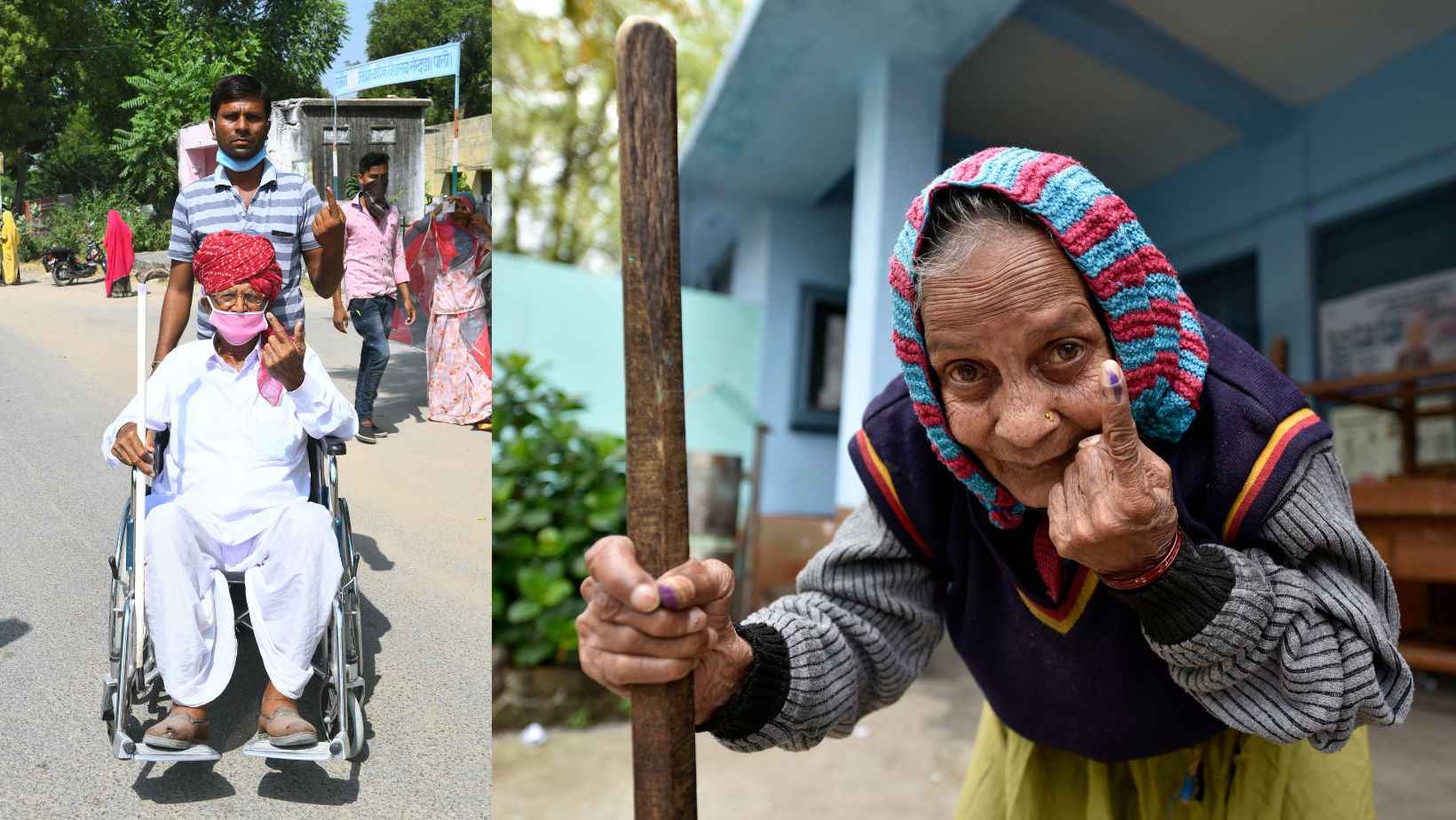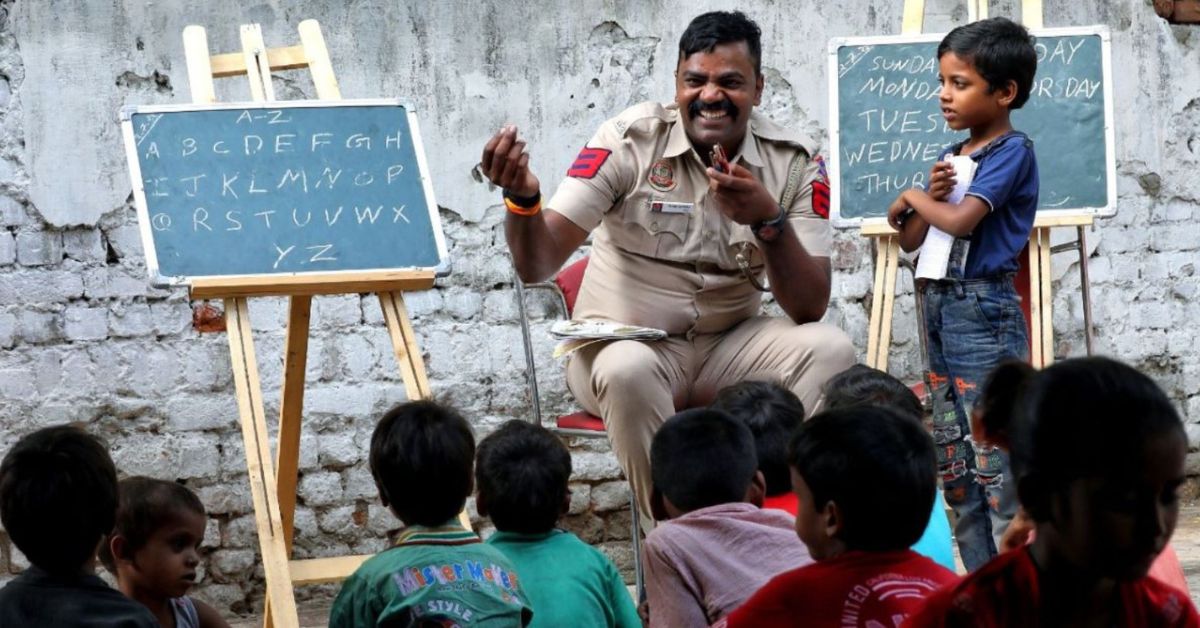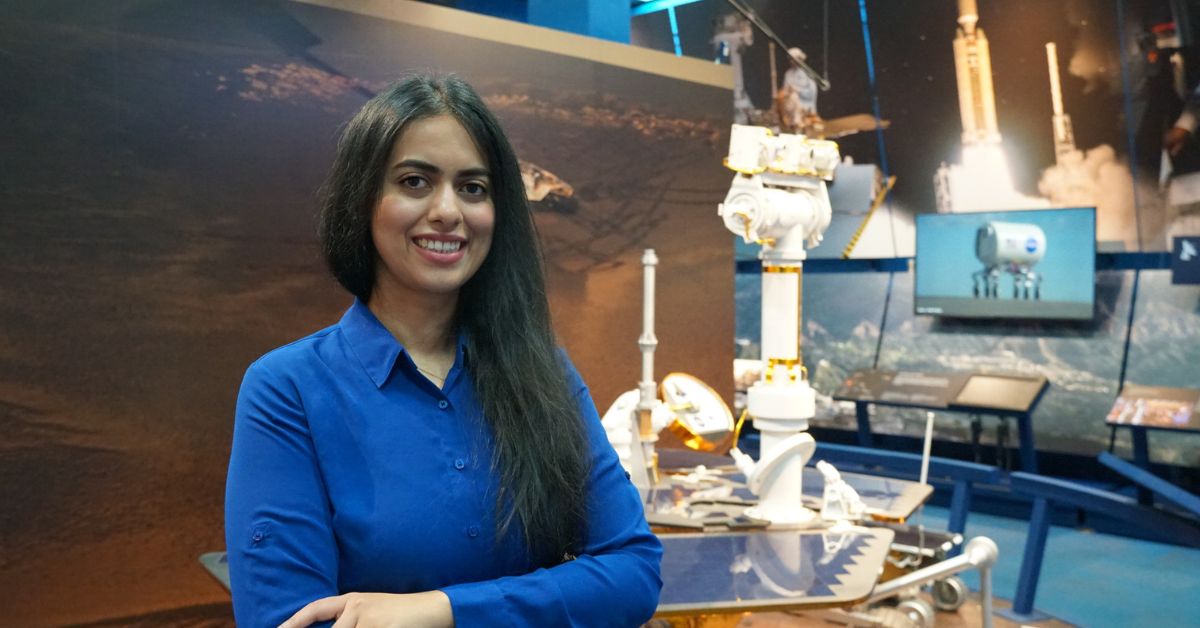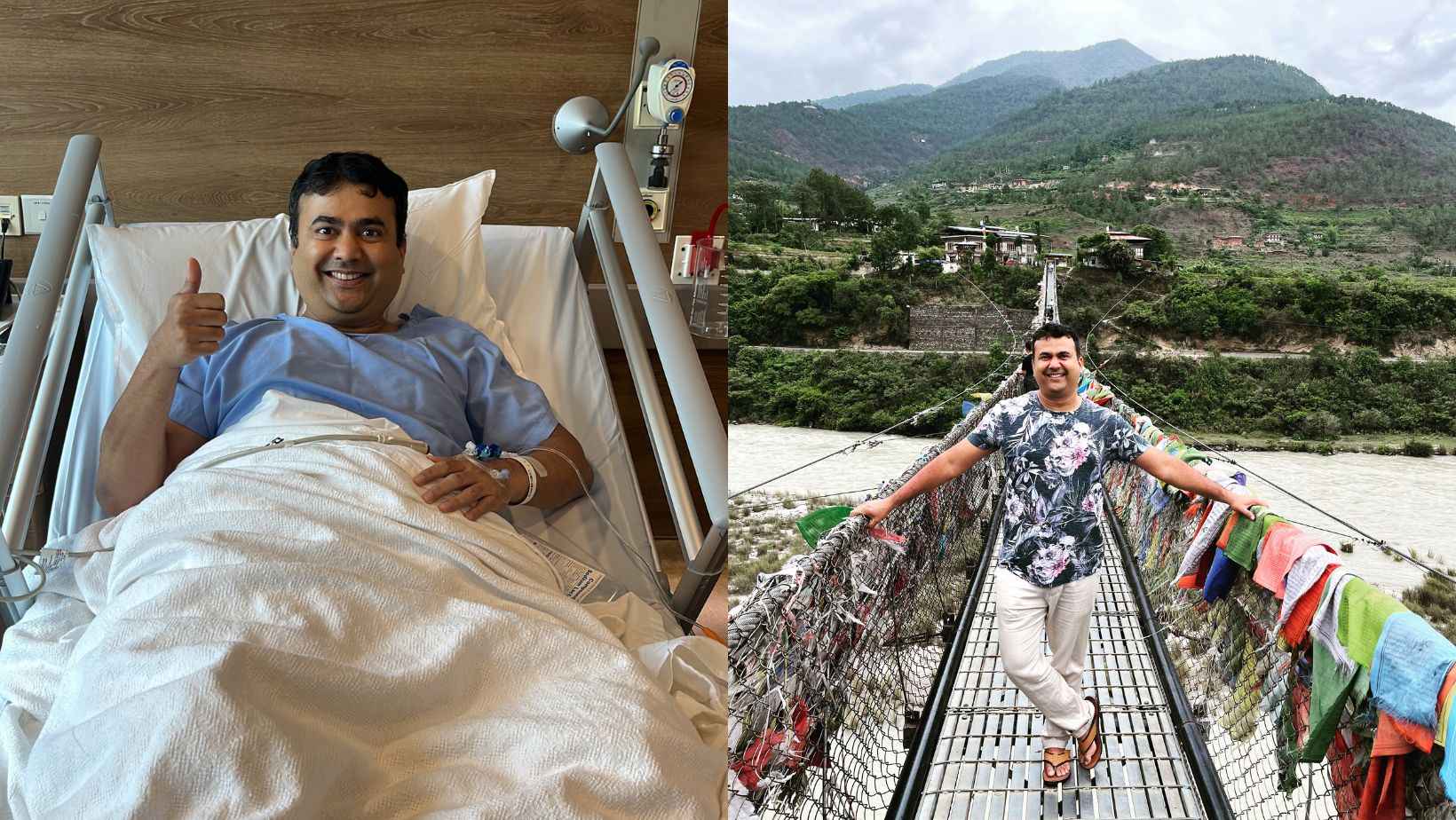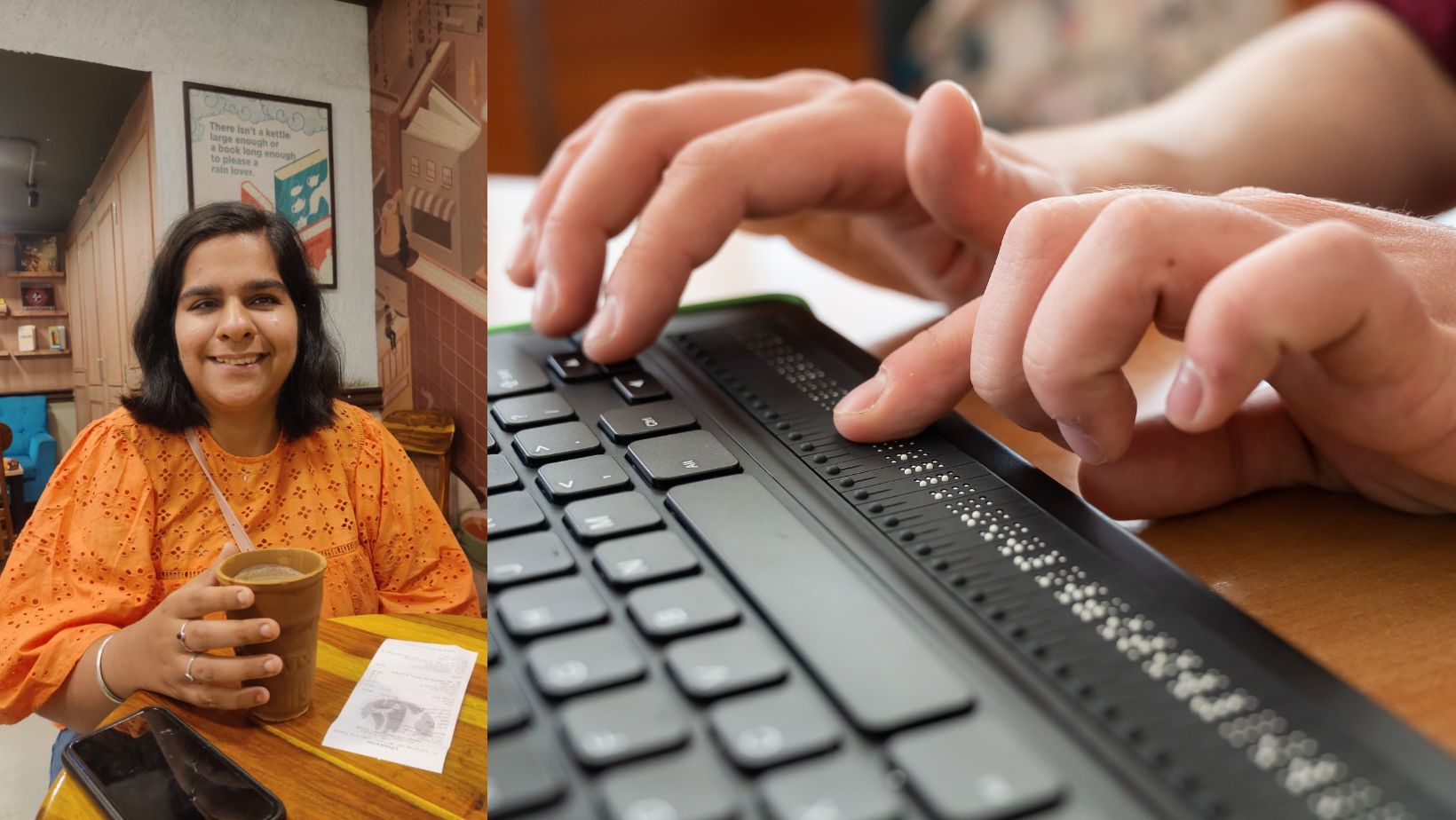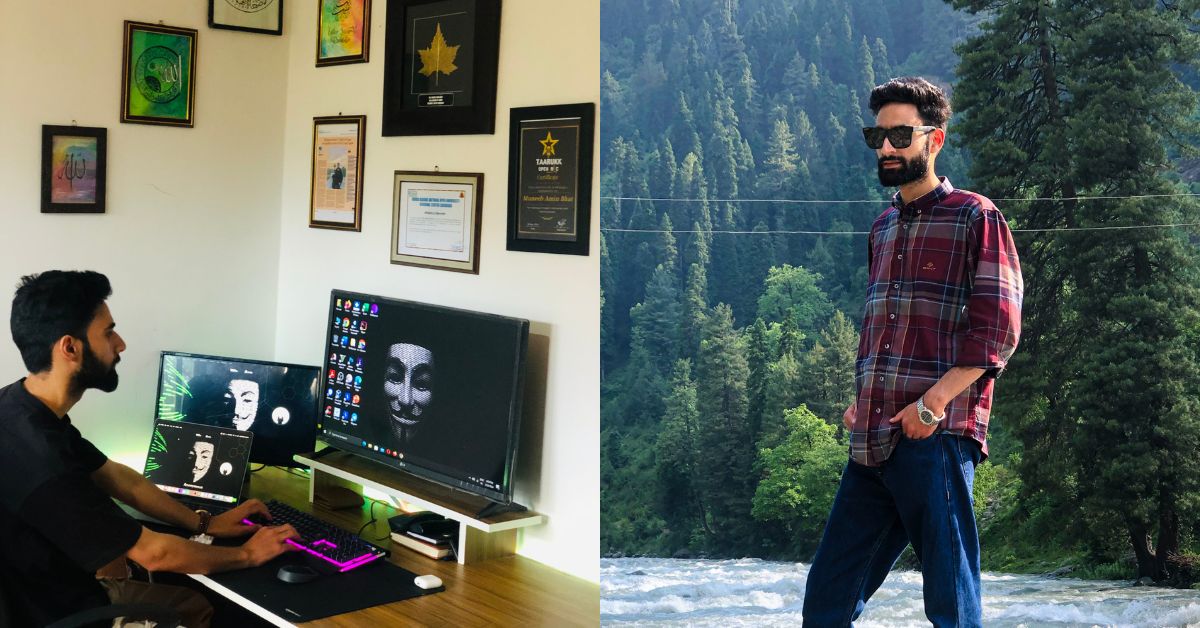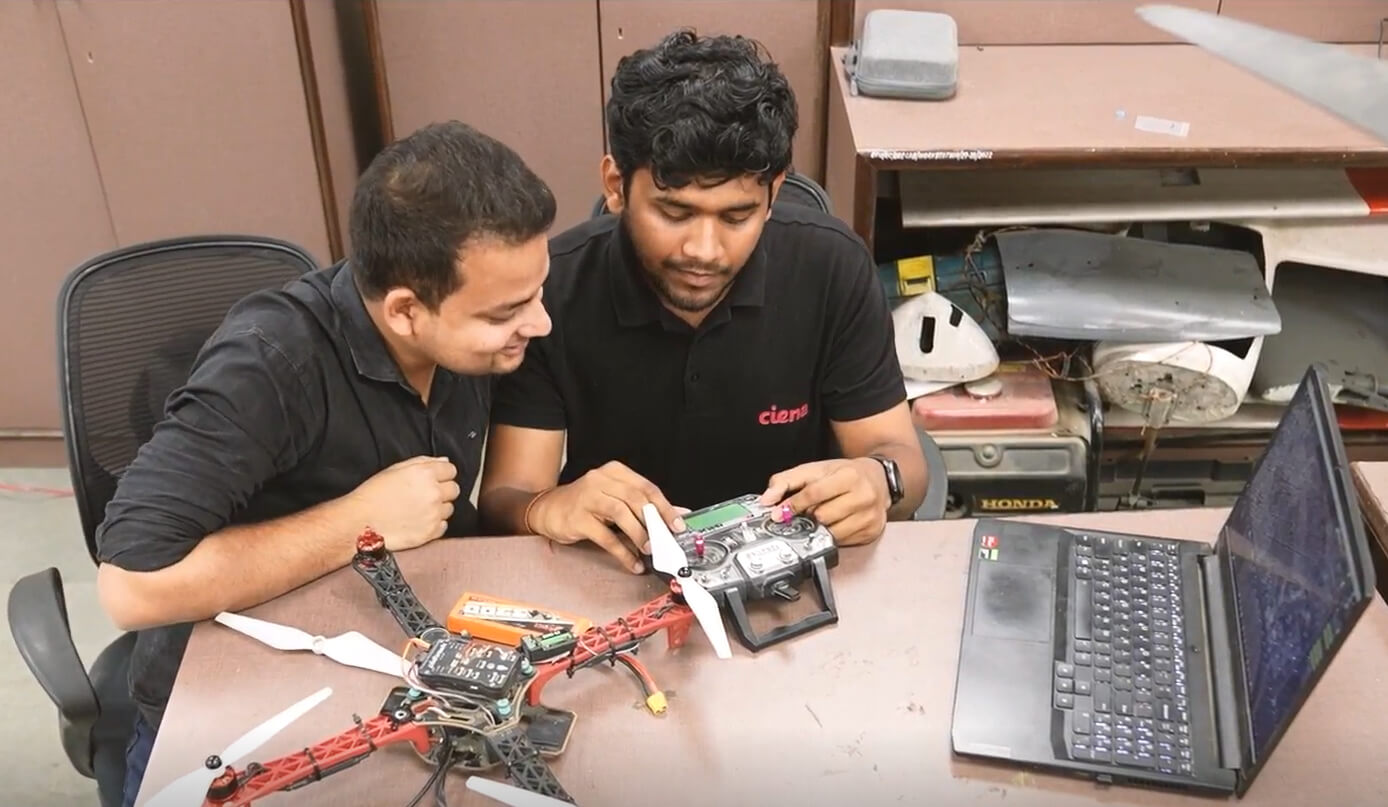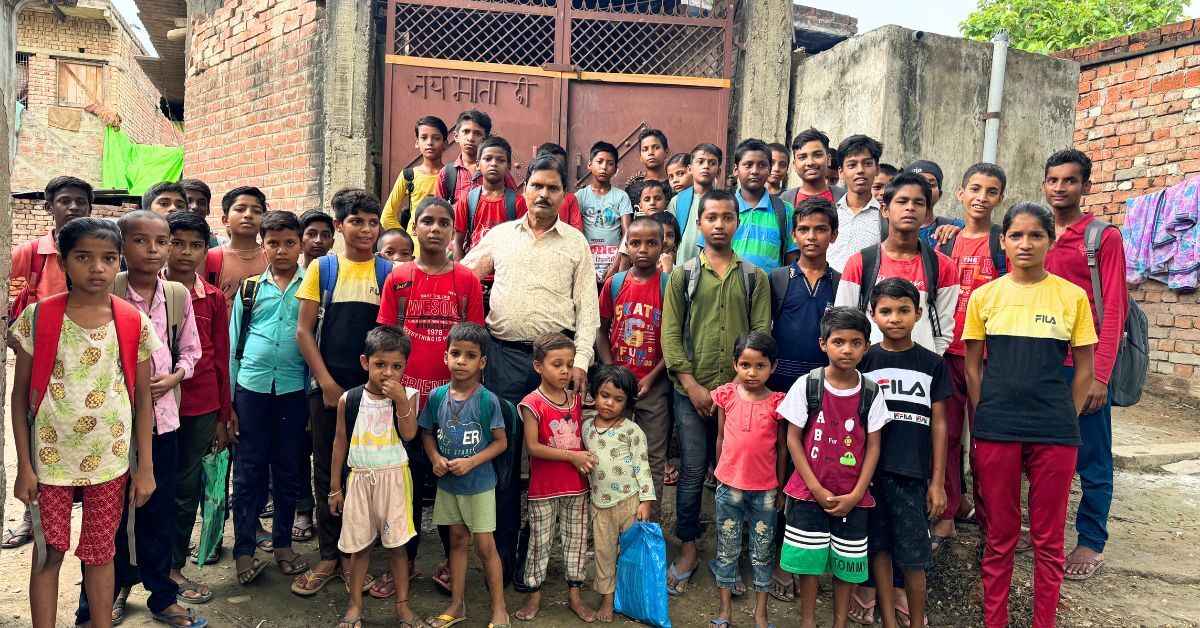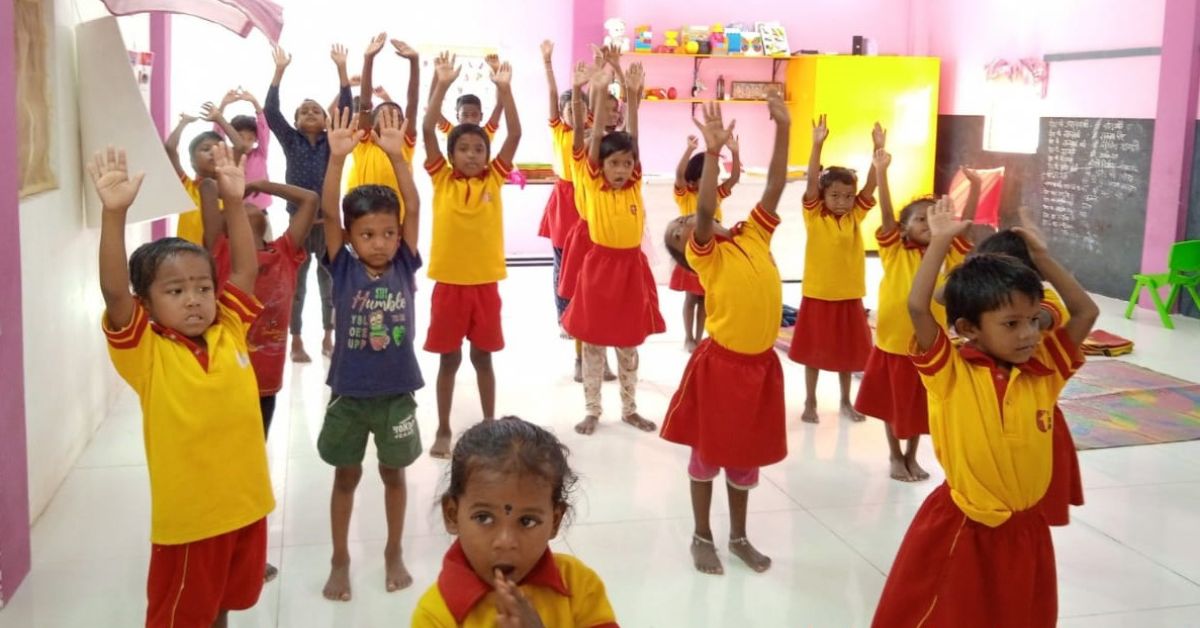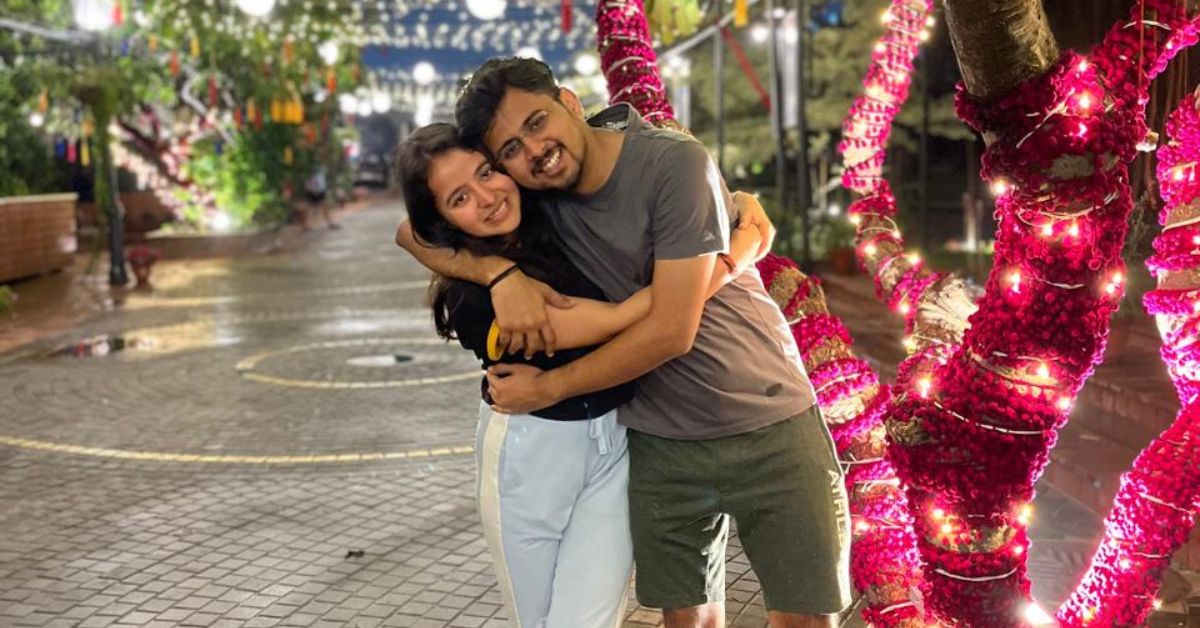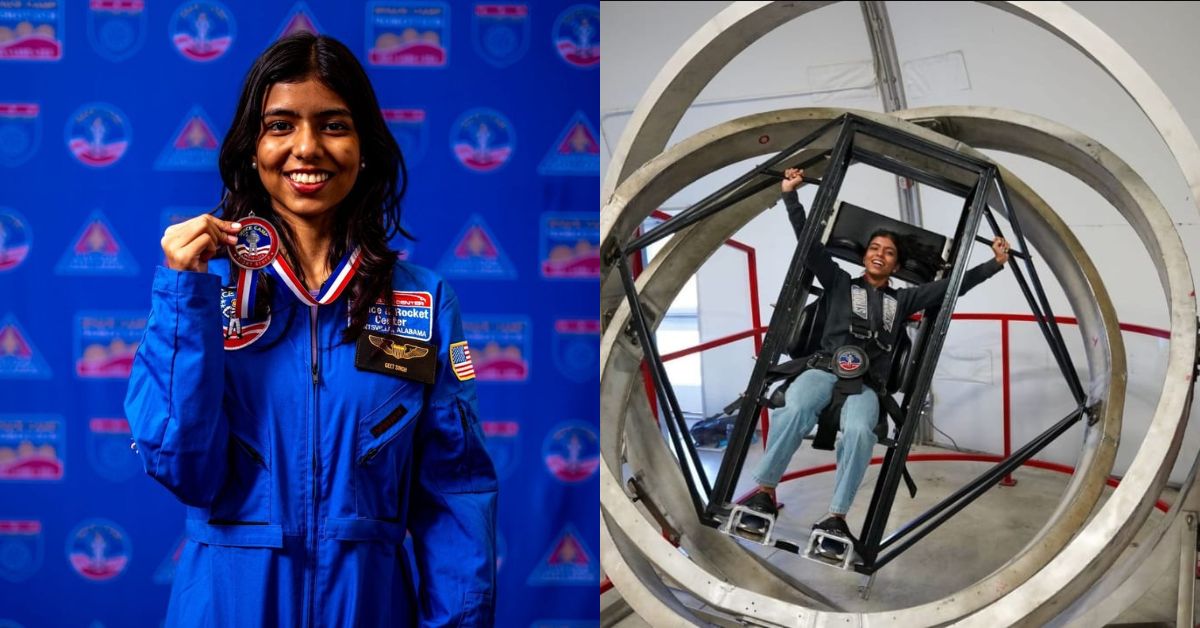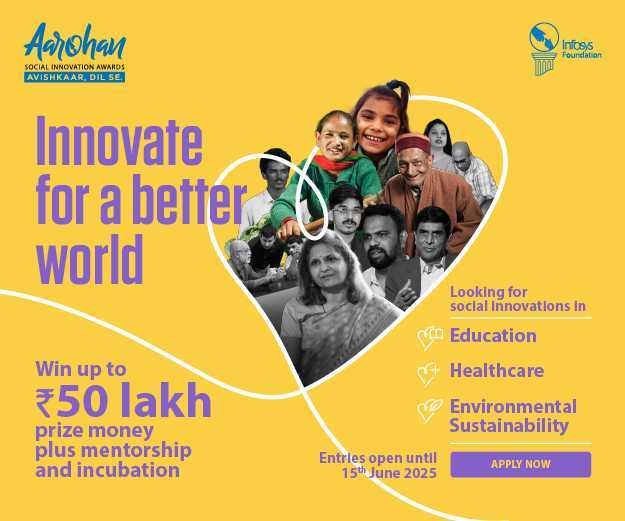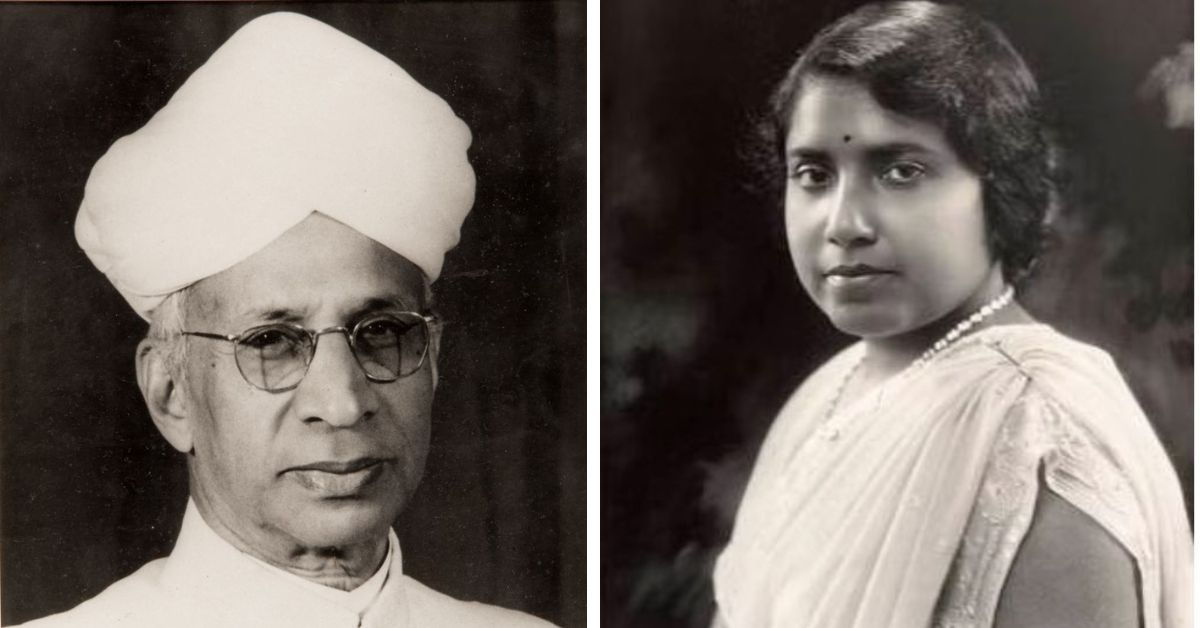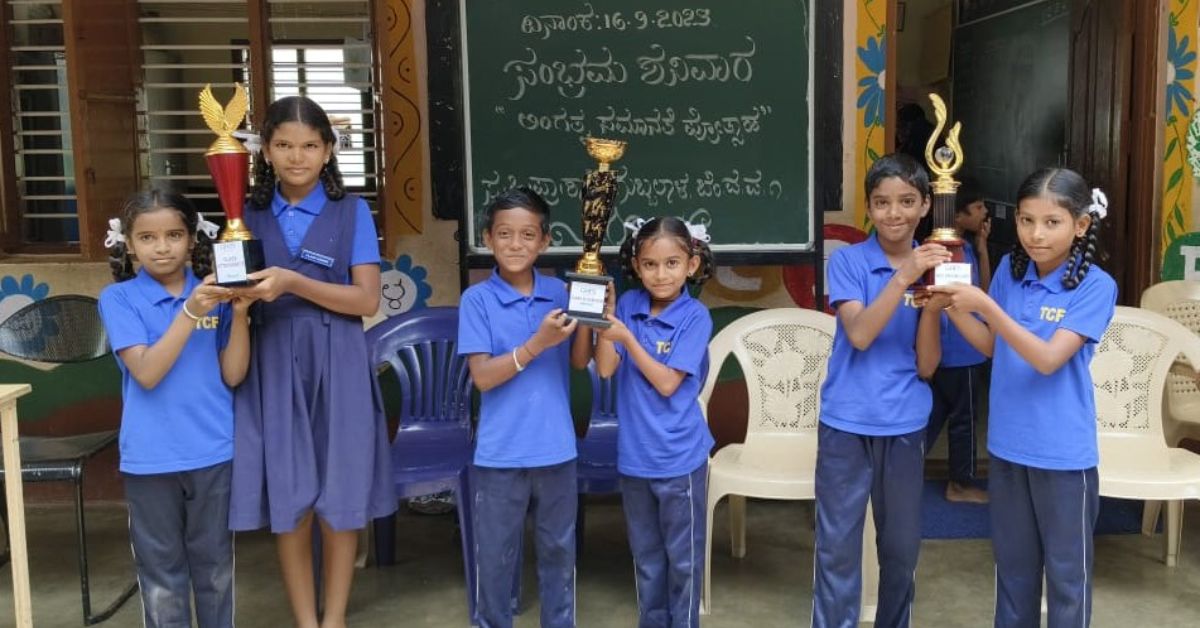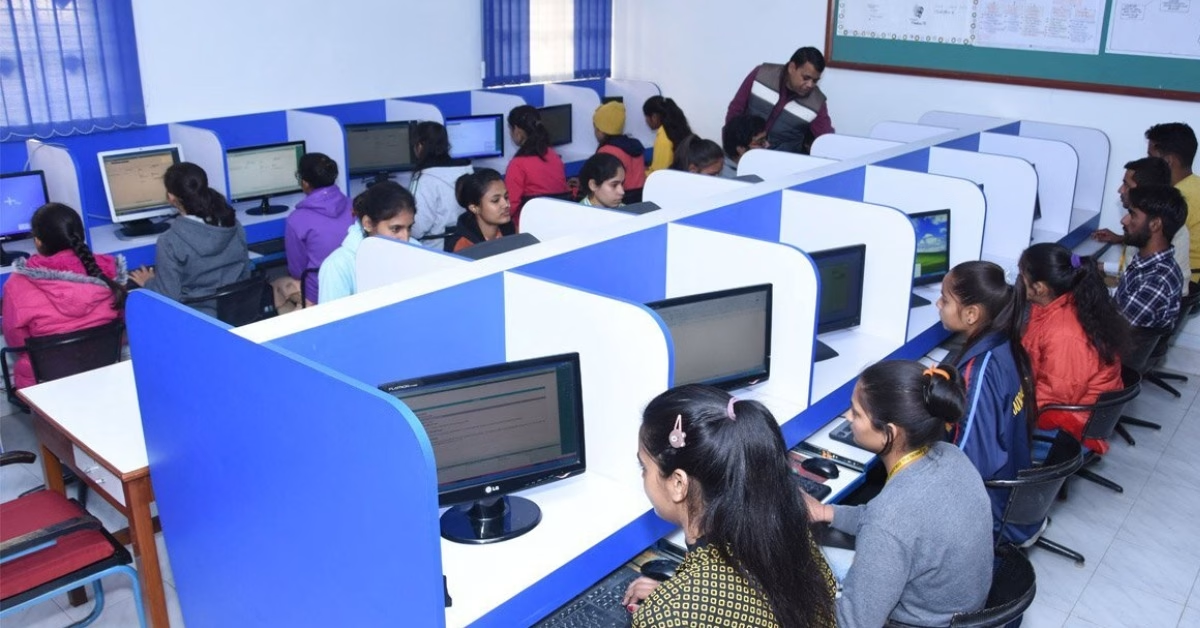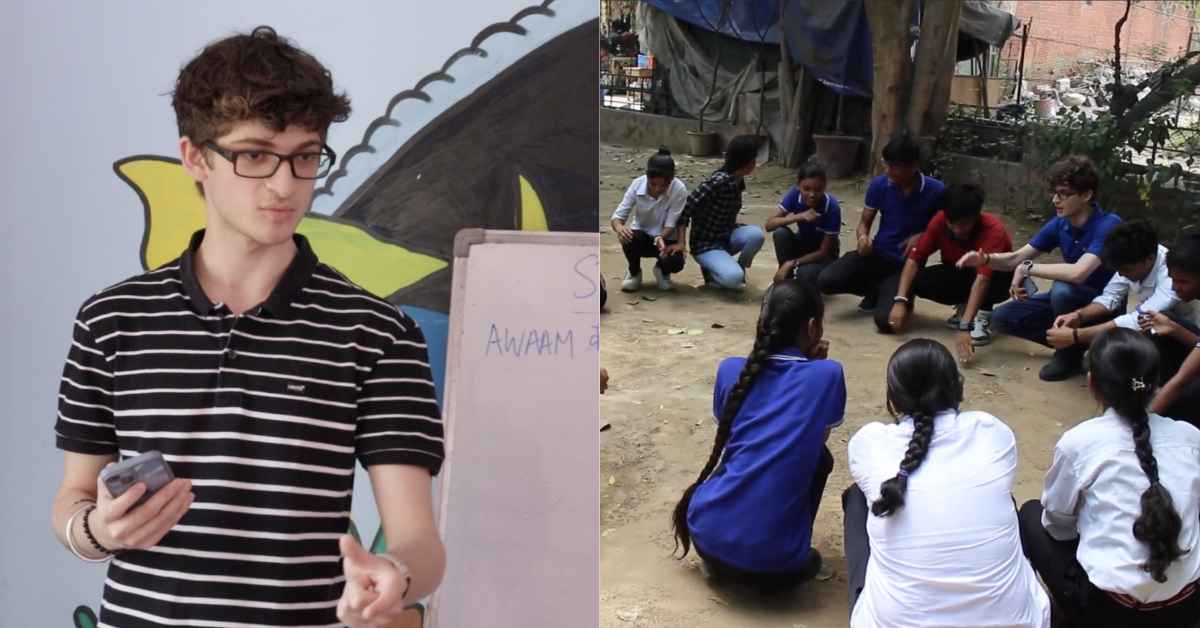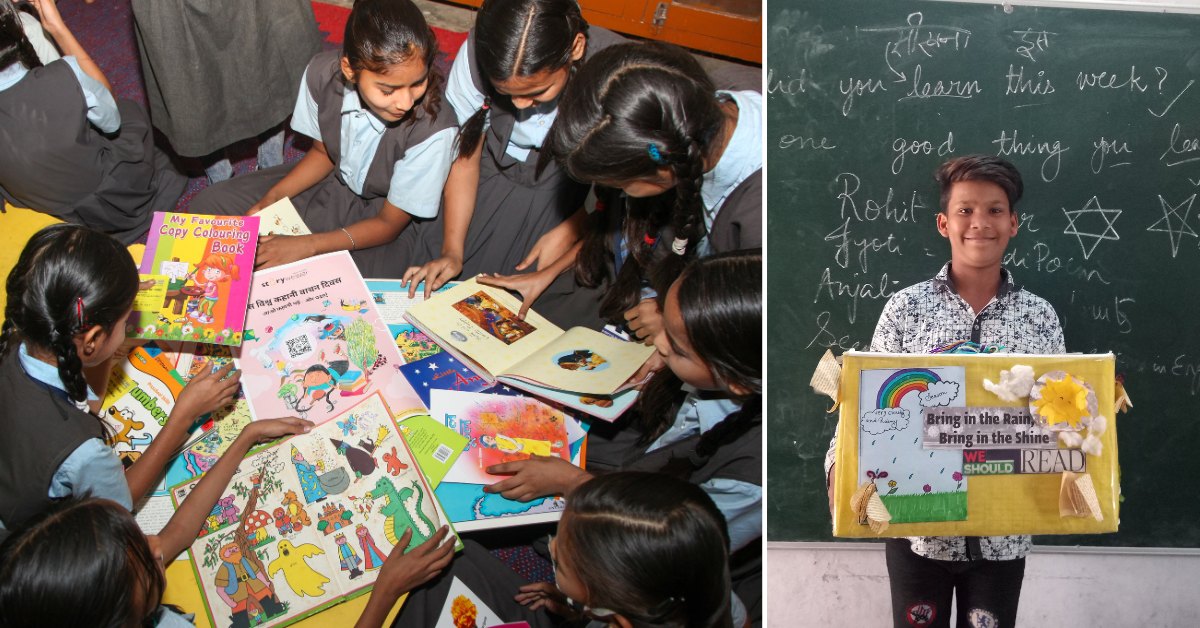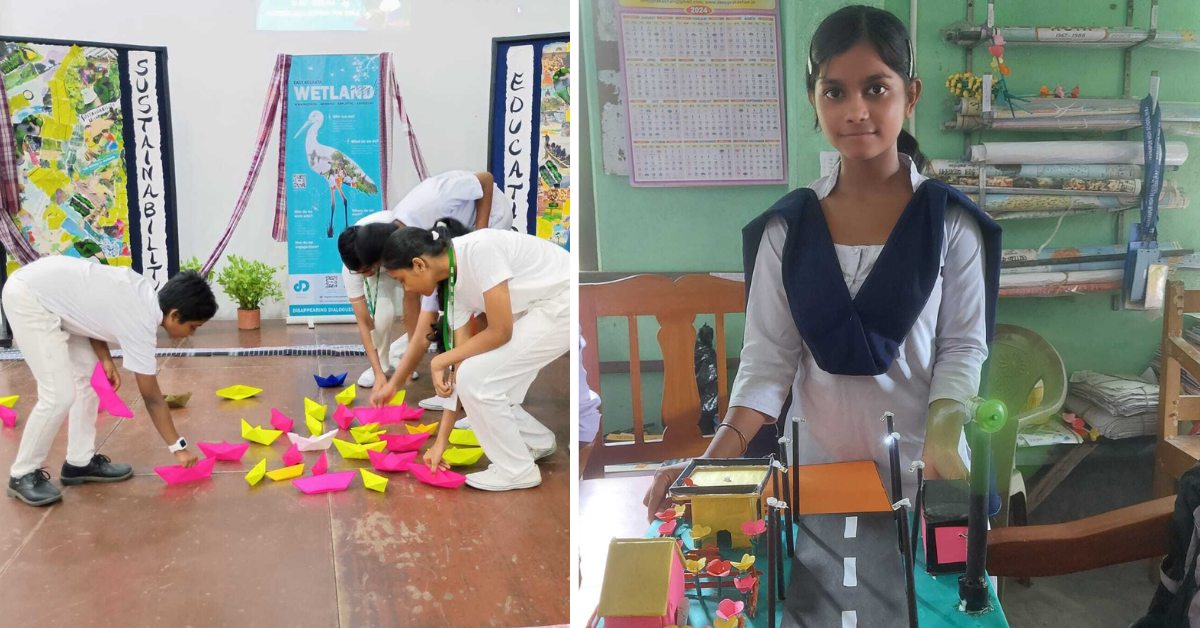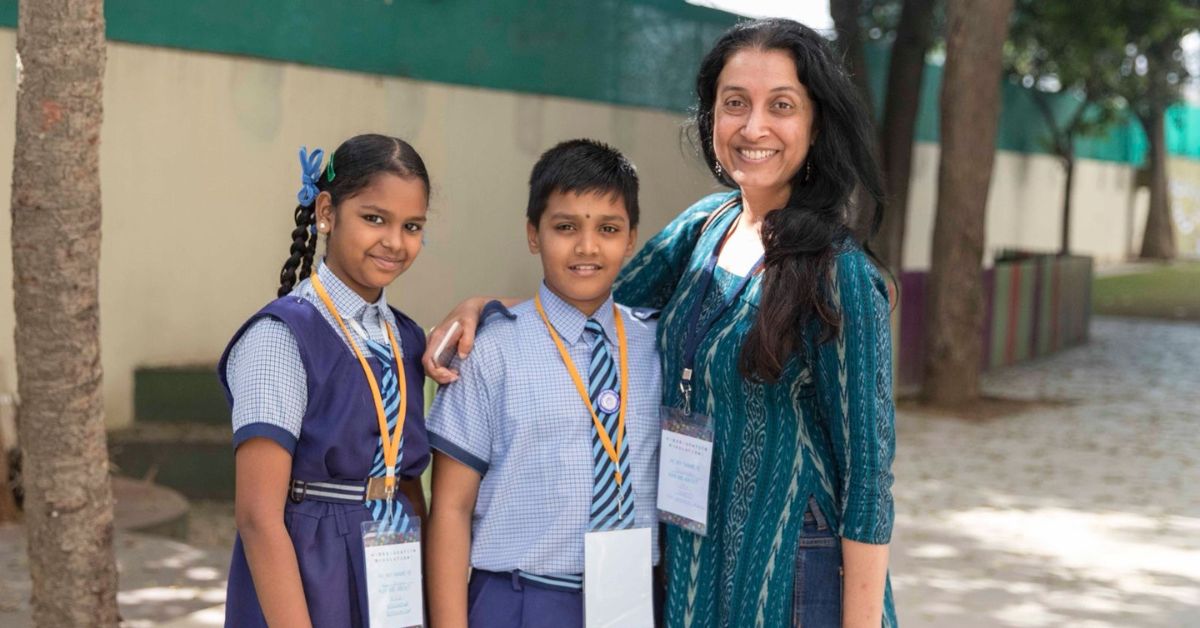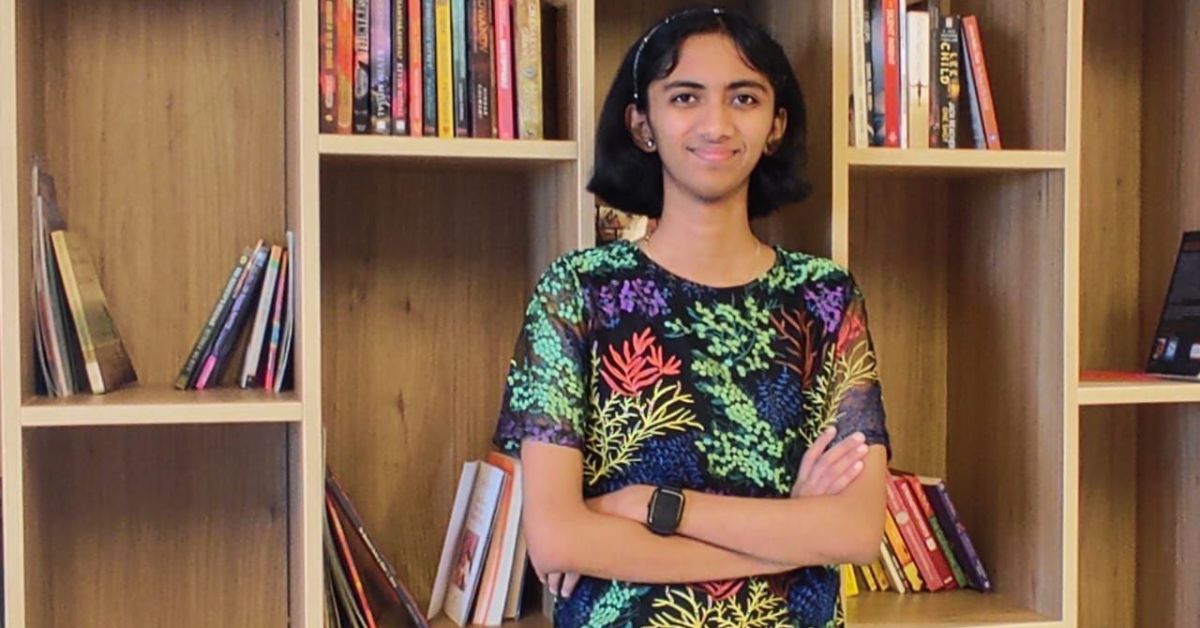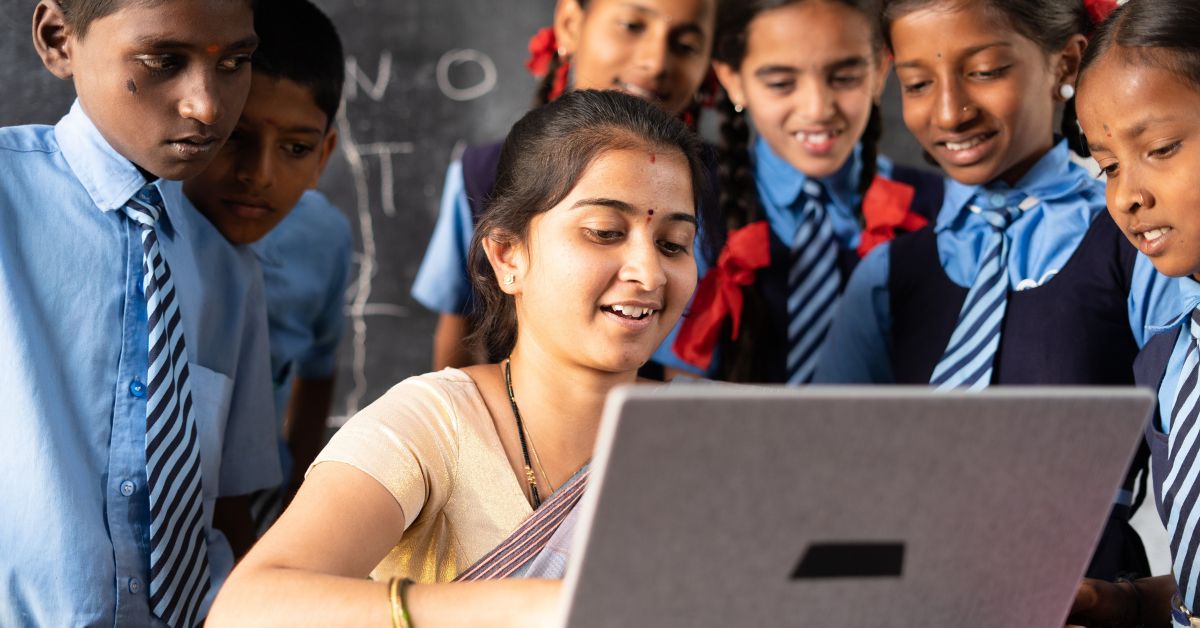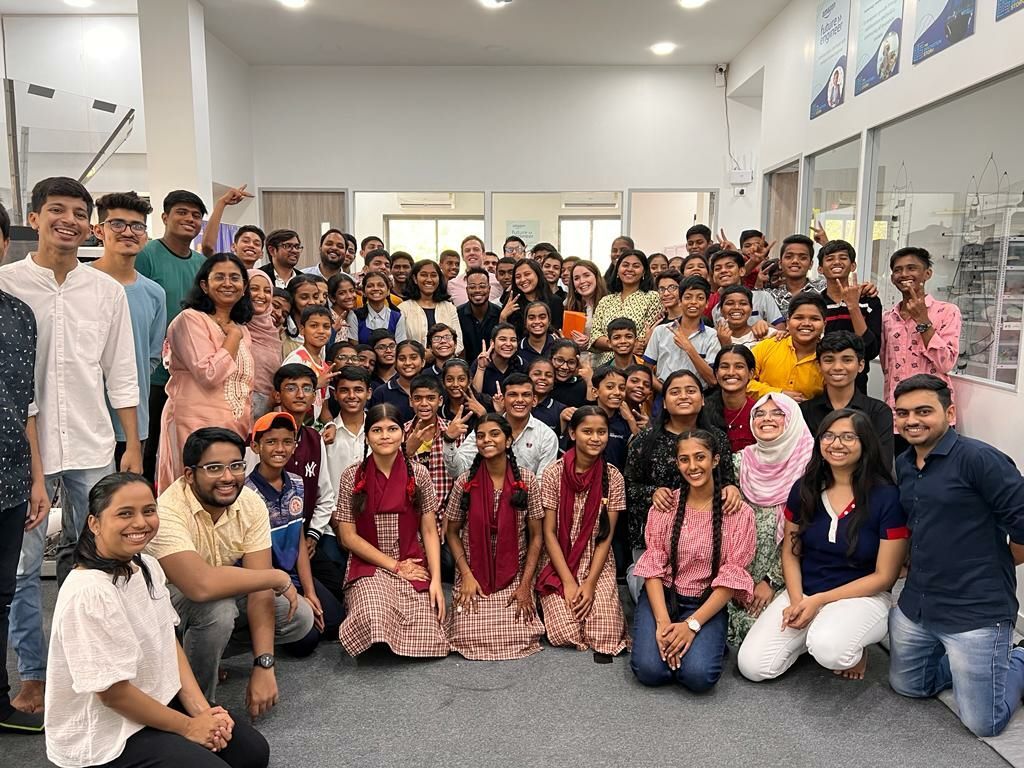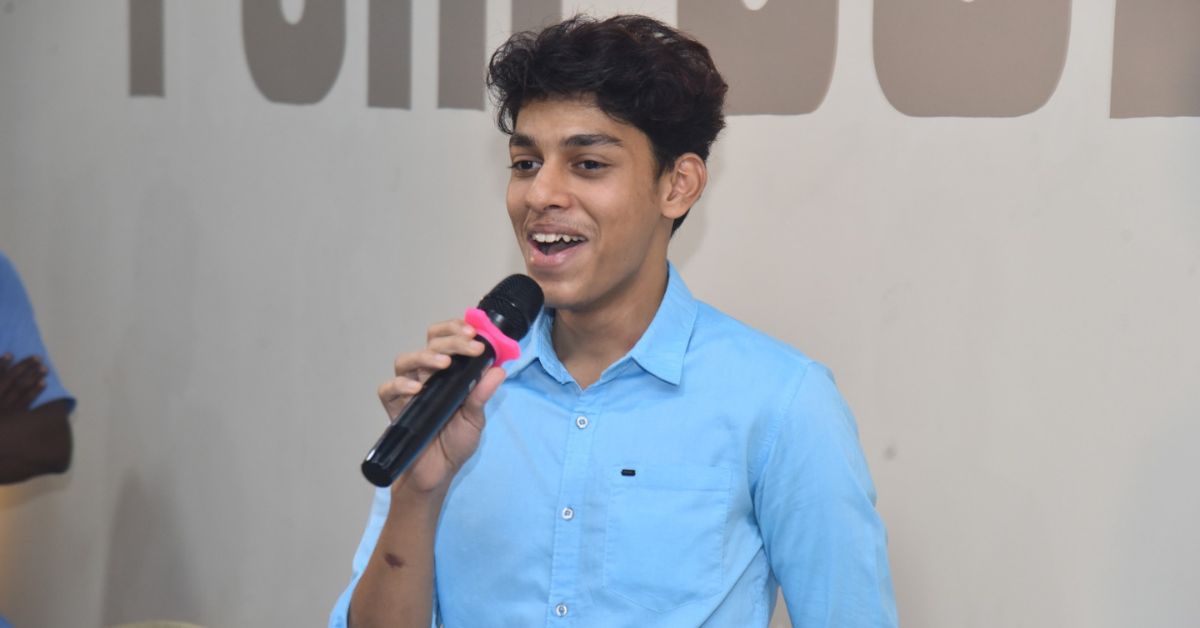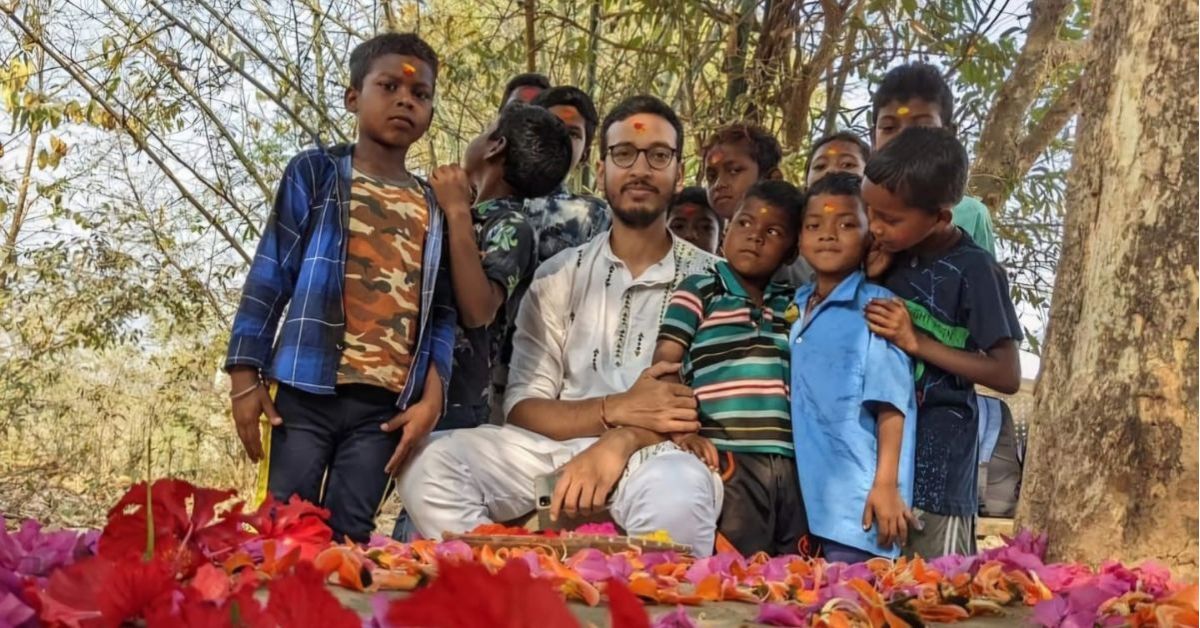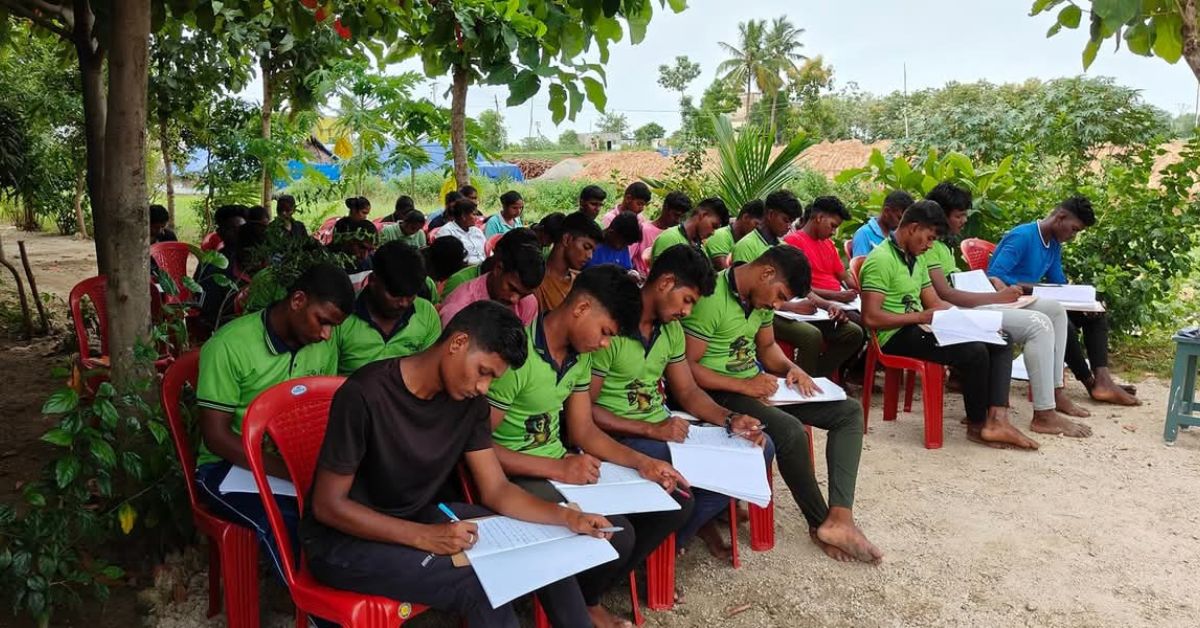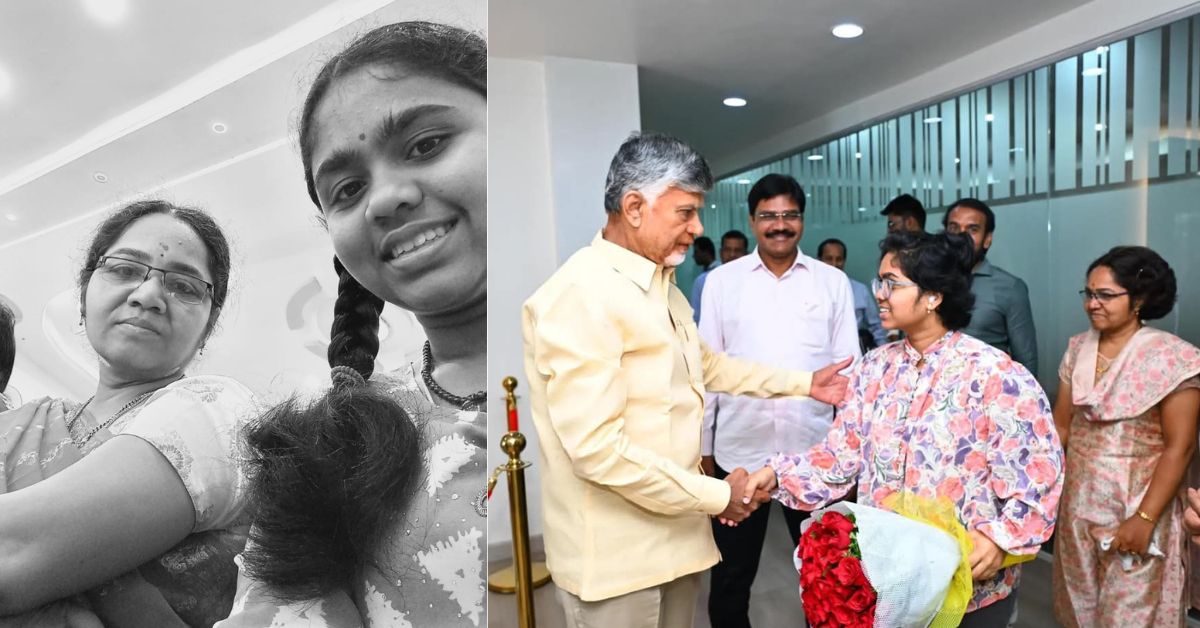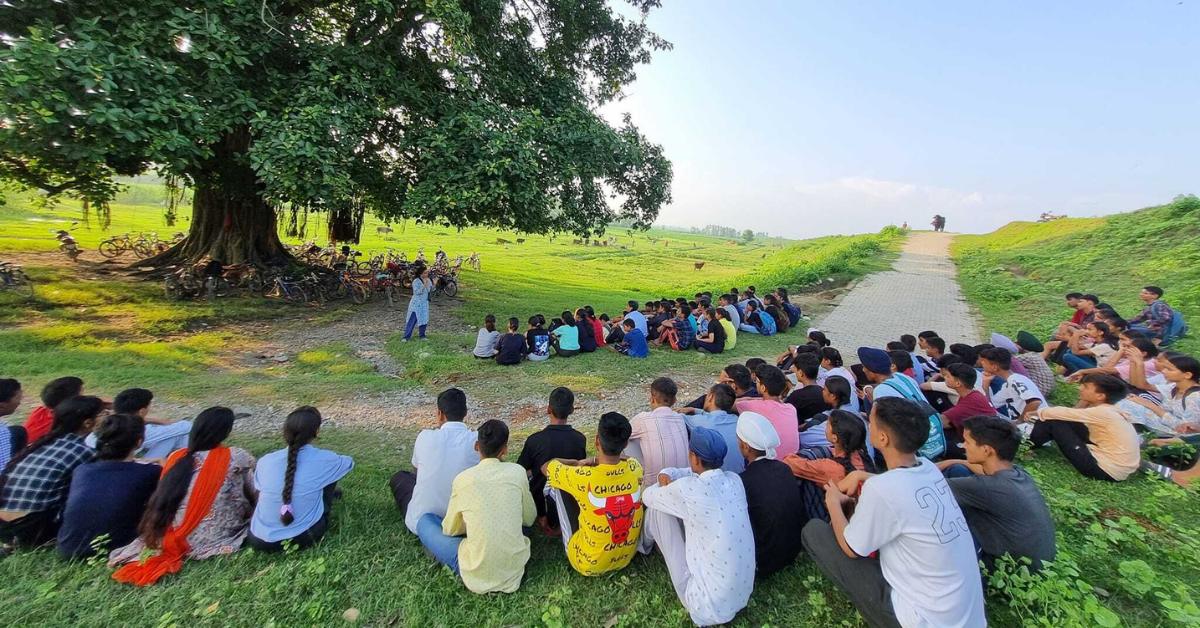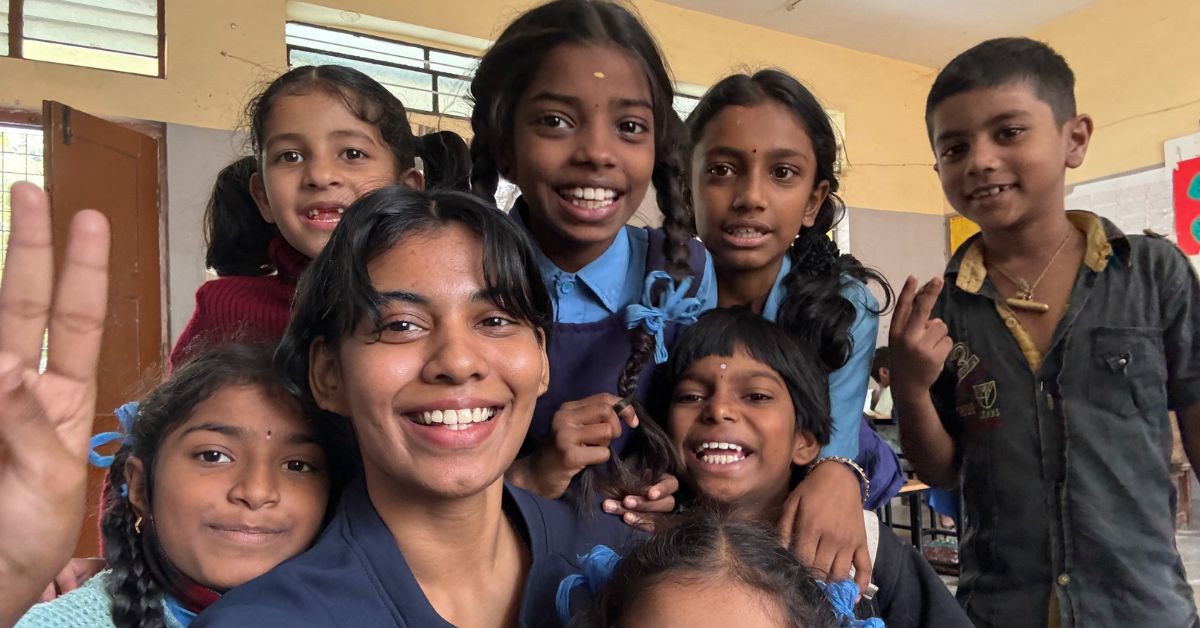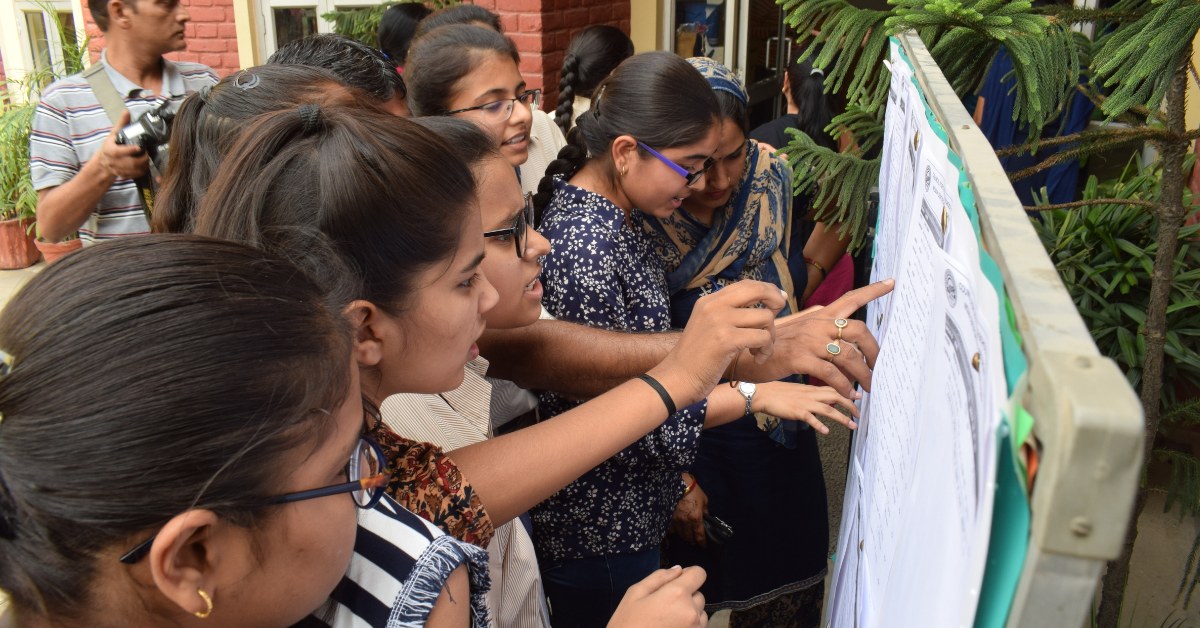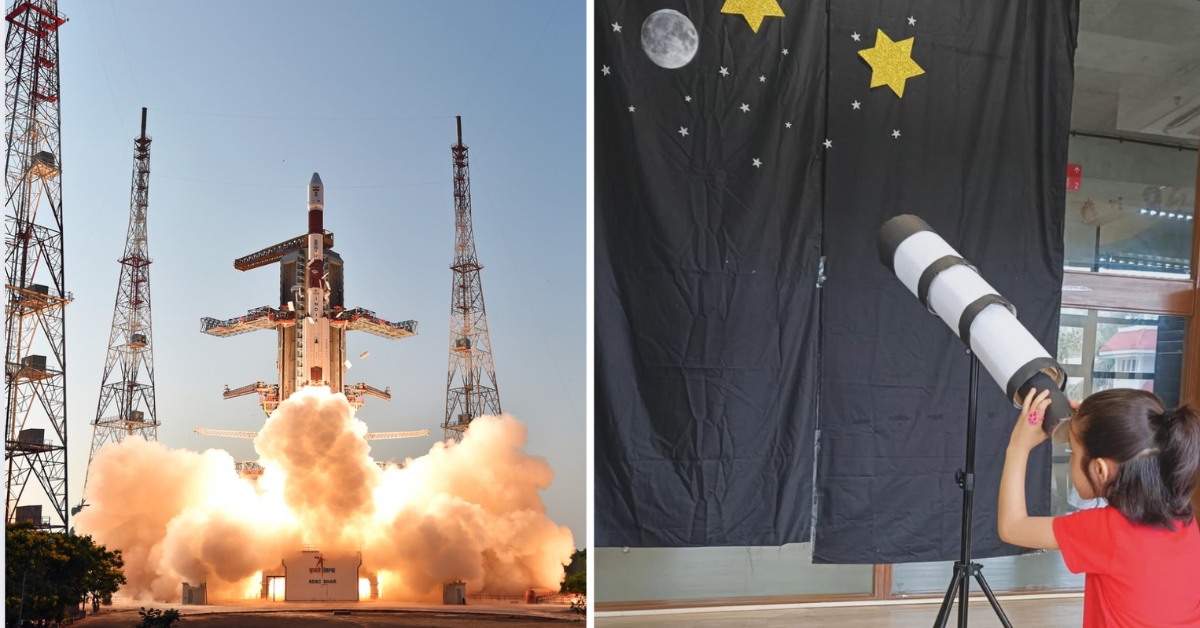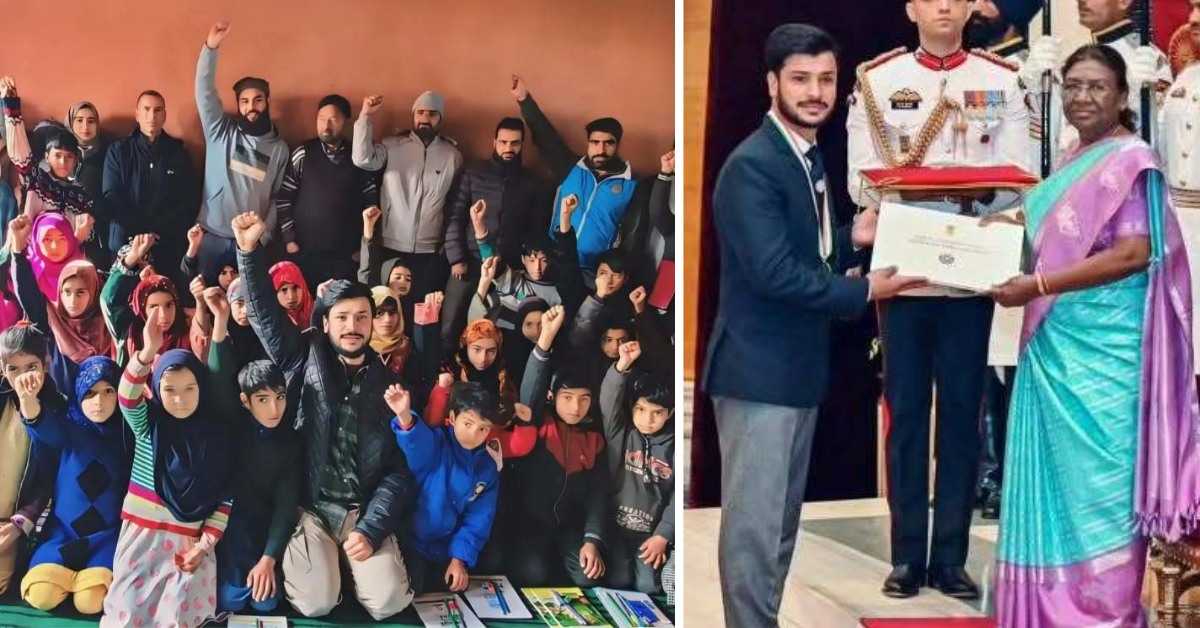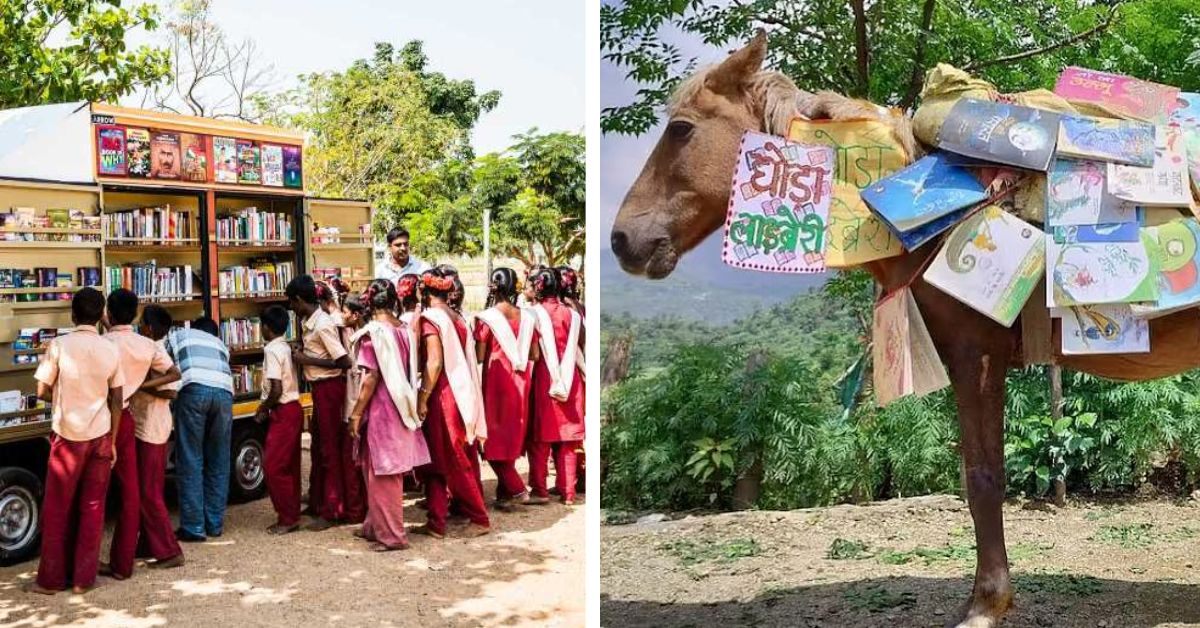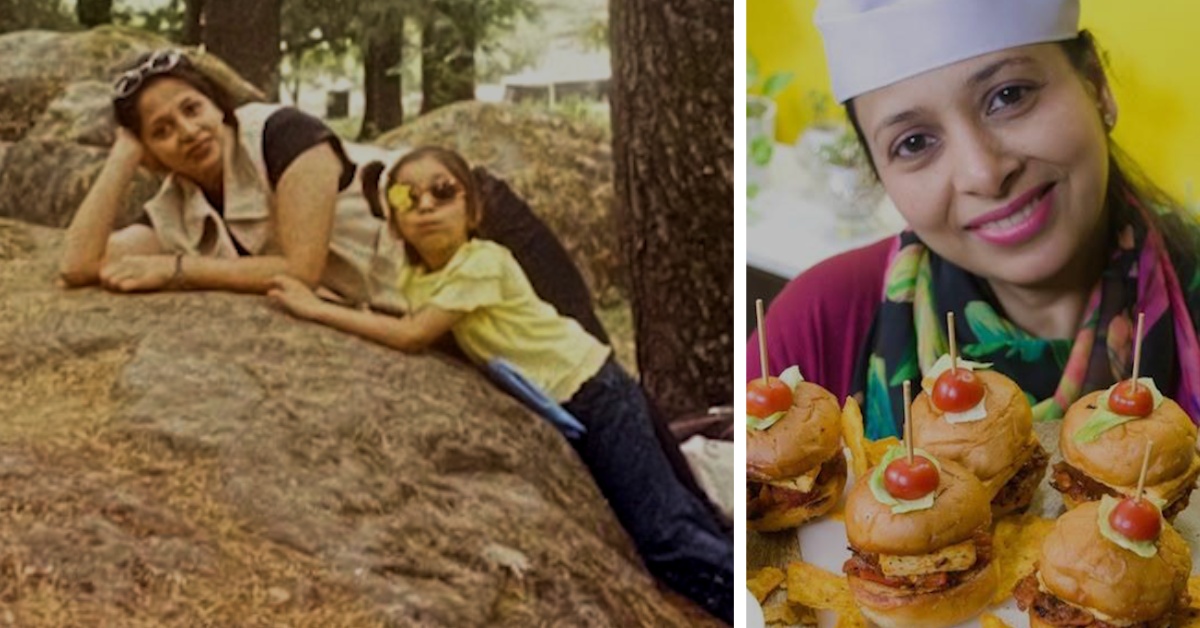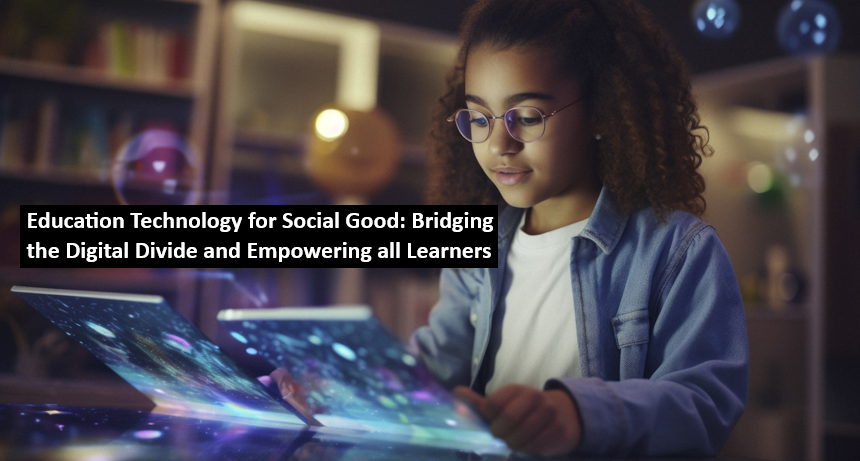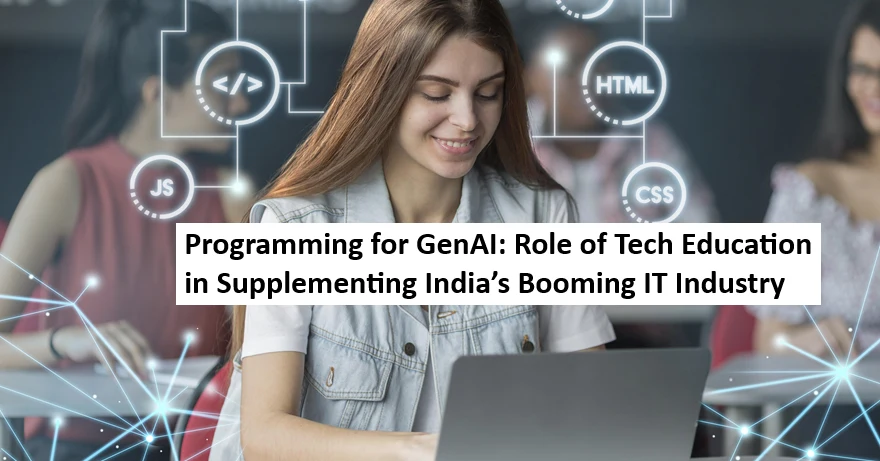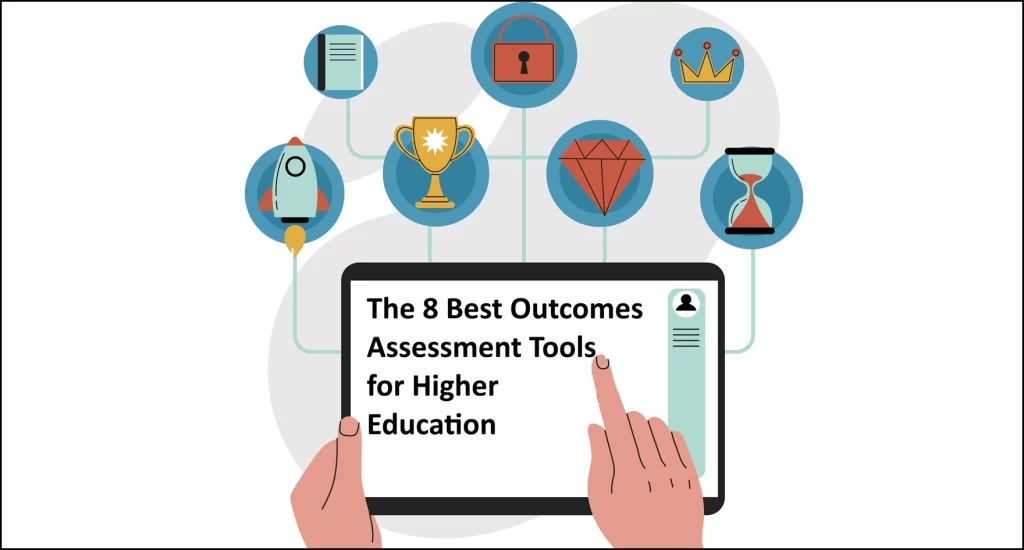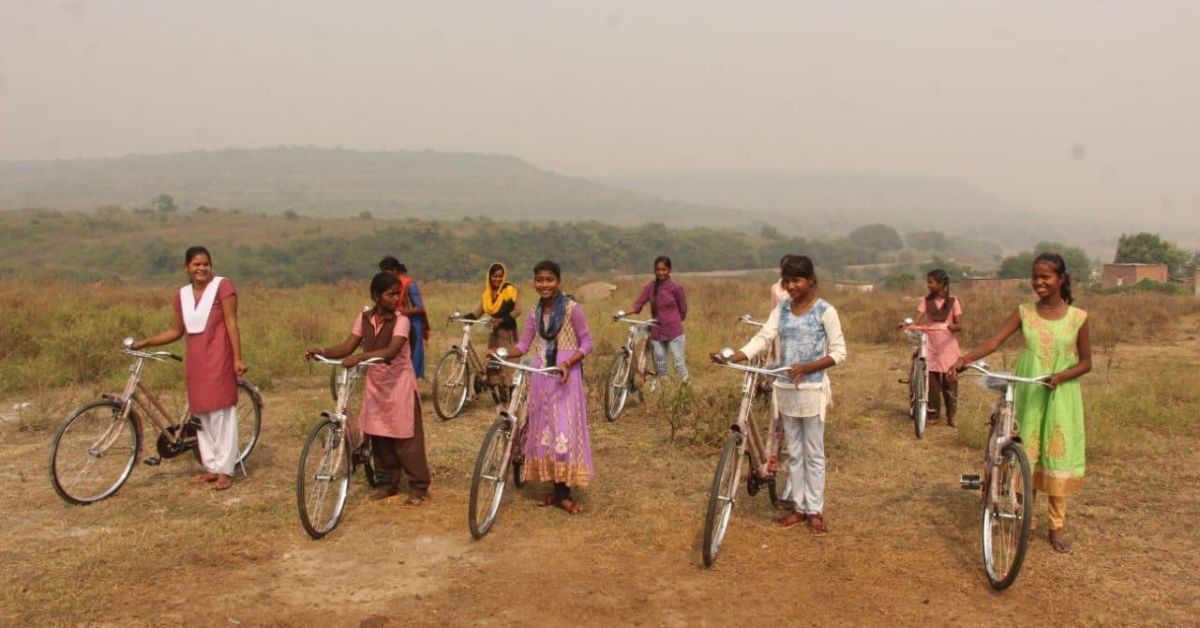
It’s a long walk through the forest — 10 kilometres, to be precise. She must set out early; how else will she reach school on time? Yet every step is shadowed by fear. Every blade of grass that brushes her kurta — the village of Dhanaita in Mirzapur is overgrown with these wild grasses — makes her flinch.
She wants to run. Quick mental math tells her that sprinting would cut short the time she spends in this eerie silence. But an early morning marathon with a heavy bag of books is not feasible. So, she keeps walking, fear her only companion.
This isn’t a story from Khushnama Banno’s English textbook. For years, it was her dystopian reality. Many days, her mother urged her to skip school. But Khushnama would protest: “Then how will I become a doctor? How will I study? Who will teach me if I sit at home?” At 11, she is wise beyond her years.
/filters:format(webp)/english-betterindia/media/media_files/2025/09/11/cycles-for-education-2025-09-11-13-13-35.jpg)
Another reason she chooses school over home is what she sees in her mother’s routine. It holds up a mirror, showing her the life she might be destined for without education. She dreads growing up without independence.
To Khushnama, the choice is stark: Walk an hour through the undulating forest or stay uneducated.
But there’s a third option — and it needs you.
For just Rs 5,000, you can gift Khushnama a cycle.
The Better India, in collaboration with the Lala Bhagwandas Trust, is working to gift cycles to over 100 girls like Khushnama. With your support, they can lift their gaze beyond this painful choice and pedal towards freedom.
We want them to cycle to school.
Your contribution also gives you a chance to receive an exclusive invite to Optum Presents The Better India Showcase, supported by the M3M Foundation, happening in Delhi on 18 September 2025.
Gift 100 cycles, empower five villages
In many homes across the villages of Dhanaita, Piprahi, Dhanupur, Bidapur, Taktakpur, Fulha, and Bagha in Mirzapur, the chulha (cooking stove) lay unused for months through the COVID-19-induced lockdown.
“Some families were in such a bad condition, once or twice, they ate grass and slept,” shares an informed source from the village. The men, daily wage labourers, had no work. Depression drove many to spend their savings on desi daru(local liquor), andtheir wives bore the brunt of it.
At the time, the Lala Bhagwandas Trust stepped in with food rations. But Neeti Goel, who leads the trust, quickly realised food alone wasn’t the solution. “Even after the pandemic, when things opened up, we realised the girls had not resumed school. The region is a conflict-prone area with some Naxalite activity. Parents did not want to send their daughters to school, because it was unsafe for them to walk through the forest.”
To make matters worse, the route is also shared with wild dogs, Khushnama tells me.
On days when she is extra nervous about the walk to school, she pleads with her mother to accompany her. “But my mother says there is so much to do at home,” the girl explains. It isn’t a viable option either. A one-way walk to school takes Khushnama 30 minutes. Her mother would have to walk an hour just to drop her off.
That’s when Neeti thought of cycles as the most practical option. When she distributed a few to selected girls that year, the impact was immediate and visible.
/filters:format(webp)/english-betterindia/media/media_files/2025/09/11/cycles-for-education-1-2025-09-11-13-16-07.jpg)
/filters:format(webp)/english-betterindia/media/media_files/2025/09/11/cycles-for-education-2-2025-09-11-13-17-46.jpg)
The girls saw the cycle as nothing short of life-changing. Neeti shares, “For them, a cycle is equivalent to how most of us would perceive buying an aircraft. These girls are smart and talented. They just need opportunities, and the cycle gives them that.” She recalls how heartwarming it was to watch the girls treat the cycle with reverence. “They prayed to it, adorning it with red flowers they usually offer during puja (holy worship).”
‘Parents would rather their girls stop studying than send them on an unsafe 10 km stretch’
The cycle distribution is one of many projects under the umbrella of the Lala Bhagwandas Trust, led by Neeti. The 35-year-old trust has diversified into the fields of education and health, scaling up amid the pandemic when, through its many project arms, it helped send 1.5 lakh migrant workers back home, adopted 32 orphanages, and supported 800 sex workers.
“We also rebuilt 1,000 homes in Raigad, and helped women in Uttar Pradesh start earning by driving e-rickshaws,” Neeti shares.
The cycle initiative, however, is one of the closest to her heart.
“Parents of these girls often confide in my volunteers their worries for their daughters’ safety. To preempt any incidents of harassment or any other calamity, they stop their daughters from going to school. So while all of these girls are enrolled in schools, the classrooms remain empty,” Neeti explains.
Prakash Singh, director of one of the local schools, says they try their best to counter this harsh reality. “I try to accompany some of the students when I can. I also try to ensure that there are people along the route so the walk doesn’t feel lonely. But despite this, we see low attendance, because parents are afraid to send their daughters.”
/filters:format(webp)/english-betterindia/media/media_files/2025/09/11/cycles-for-education-3-2025-09-11-13-19-51.jpg)
While many students give up, others like Khushnama remain determined. “I will continue going to school even if I have to walk for hours, because I want to become a doctor,” she shares. Her resilience inspires both Neeti and Prakash.
“The roads in these villages are kaccha (uneven), and often a cycle is the only practical means of transport,” Neeti notes. By gifting Khushnama a cycle, you’re ensuring an education for a potential doctor who could one day become one of India’s finest.
Between these girls and their dreams stands a 10 km stretch of forest. Help them pedal their way to freedom.
Gift them a cycle. Donate now.
Your contribution also gives you a chance to get an exclusive invite to Optum Presents The Better India Showcase, supported by the M3M foundation, happening in Delhi on 18 September 2025.
(Note: The Better India will not provide any transport or accommodation to attend the event in Delhi.)
Edited by Pranita Bhat; All pictures courtesy Lala Bhagwandas Trust



